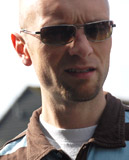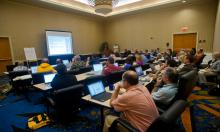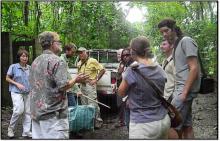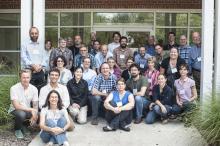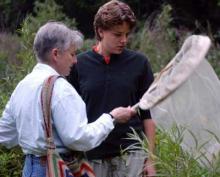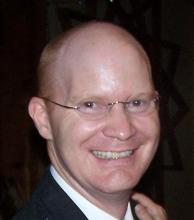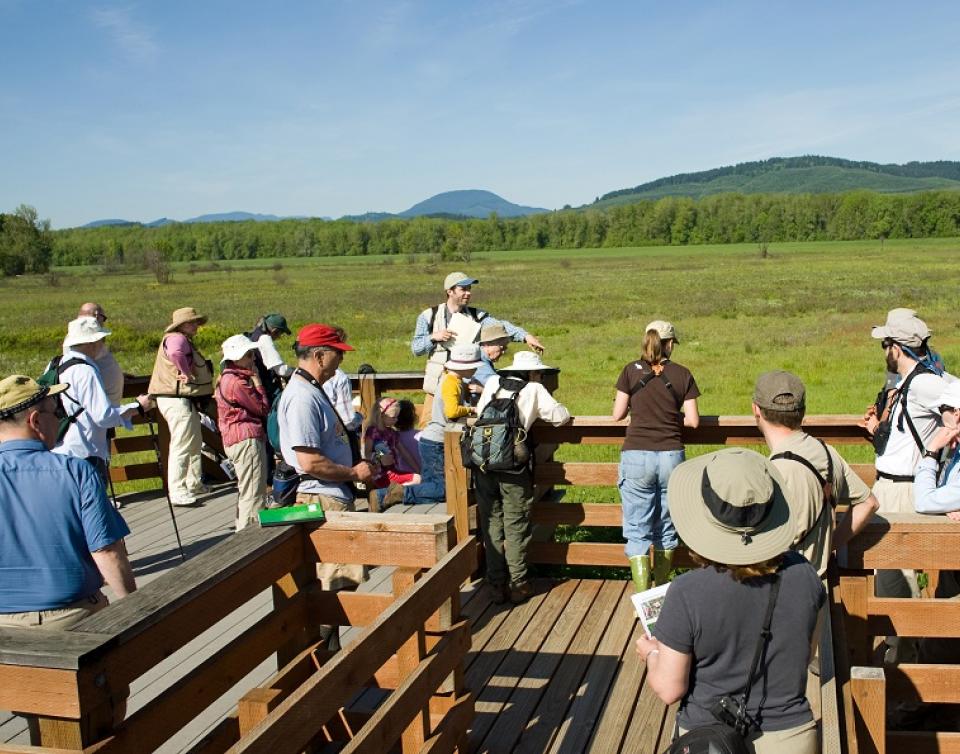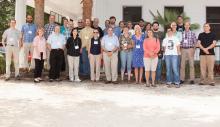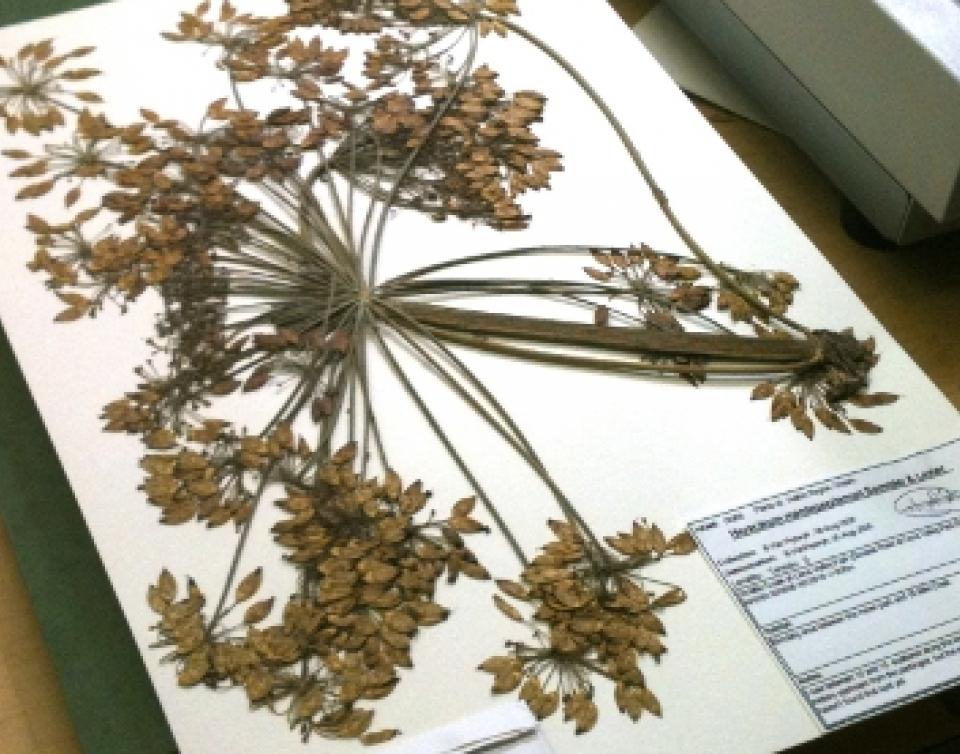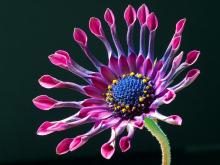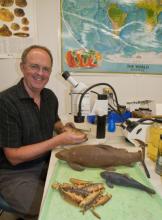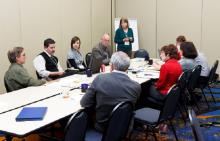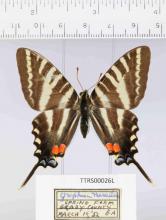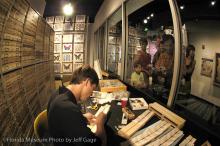Austin Mast interviews Libby Ellwood, our newest postdoctoral scholar.
Mast: It's my pleasure to welcome you as iDigBio's newest postdoctoral scholar, Libby. Your research focus will be on broadening public participation in the digitization of biodiversity research specimens. This is a goal to which your previous research background is well suited. What do you see as the most relevant aspects of your previous graduate and postdoctoral research for this new position?
Ellwood: Thanks, I’m thrilled to be a part of iDigBio’s dynamic team. I learned quickly in my graduate career that there is a wealth of information contained in museum specimens and that they are extremely useful in contemporary scientific research.
I earned my PhD in Biology from Boston University where my research focused on the effects of climate change on plants and animals. The metric I used to assess how much plants and animals were affected was phenology, the timing of biological events. Phenology includes the timing of when plants flower, when insects emerge and when migratory birds arrive, and many of these annual activities are impacted by temperature. In order to evaluate whether an organism’s phenology has changed, I first needed to understand the historical phenology—the date that a certain plant was flowering a hundred years ago, for example. Old journals, including those of Henry David Thoreau, were invaluable for this research. Some of these resources I found digitized online, while many others were tucked away deep in the special collections of museums and libraries. These records, combined with modern-day observations of the same plants and animals, allowed me to track phenology over 160 years. Several interesting discoveries came from this research, including the finding that many plant species are now flowering up to three weeks earlier now than they were in the 1850’s when Thoreau was observing them!
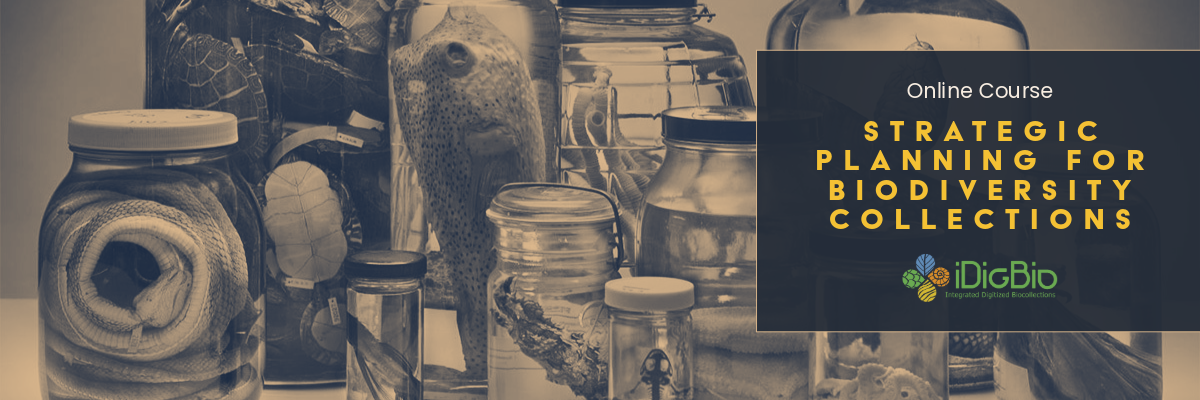


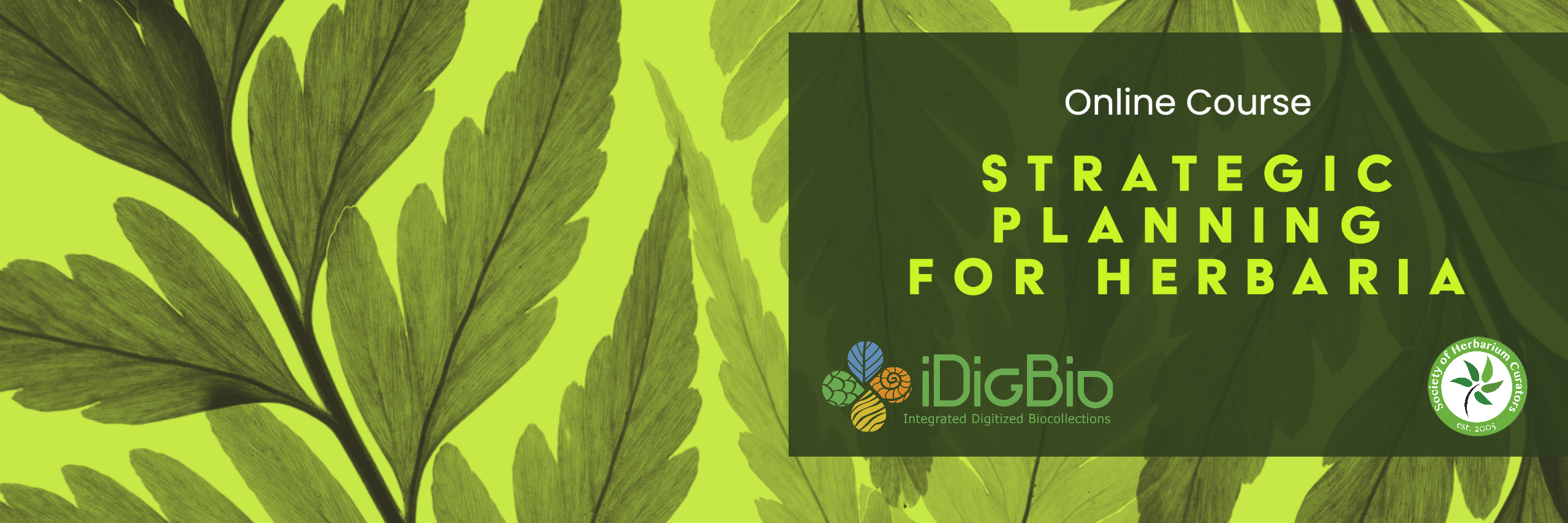
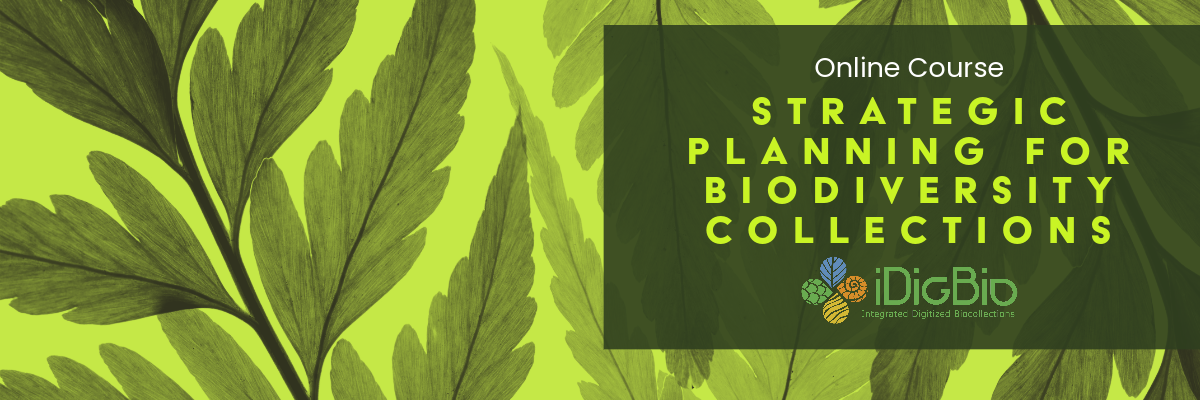

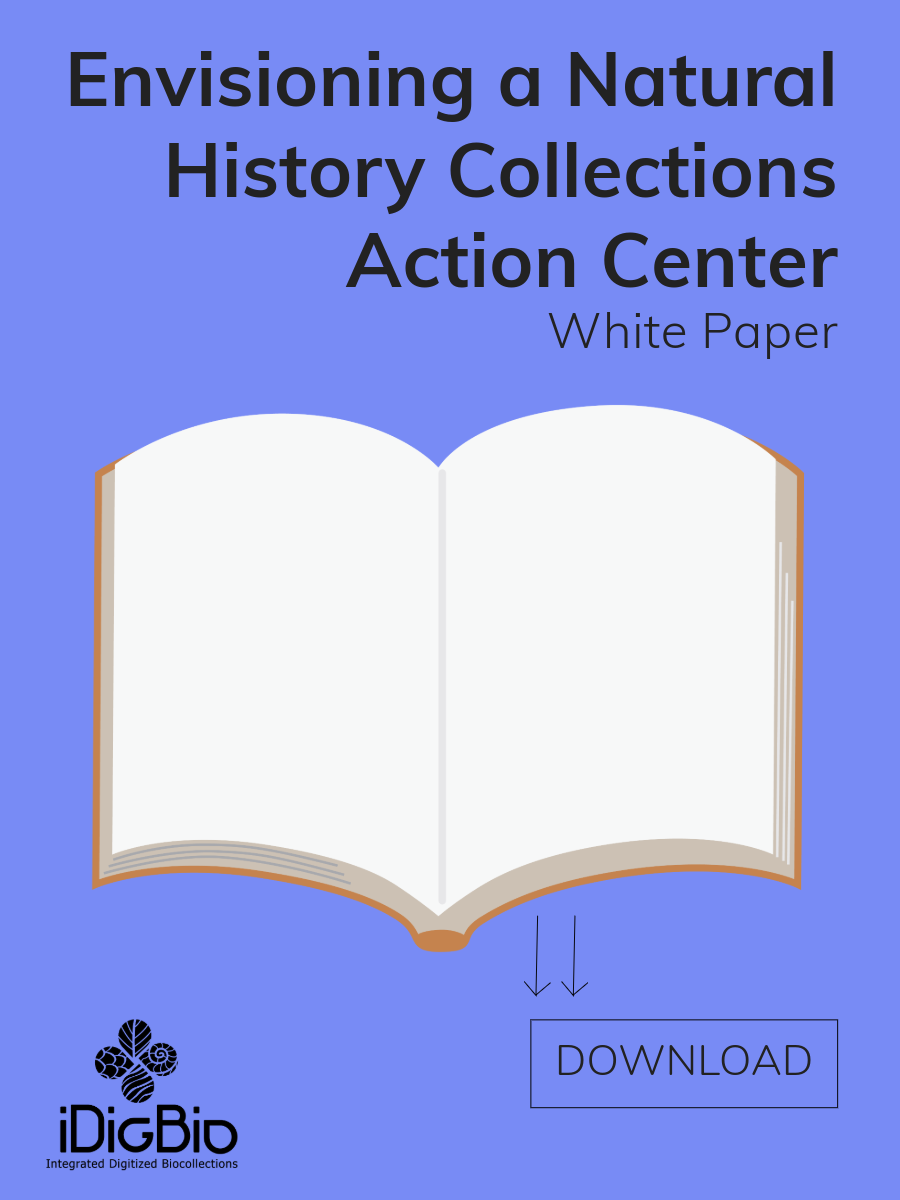

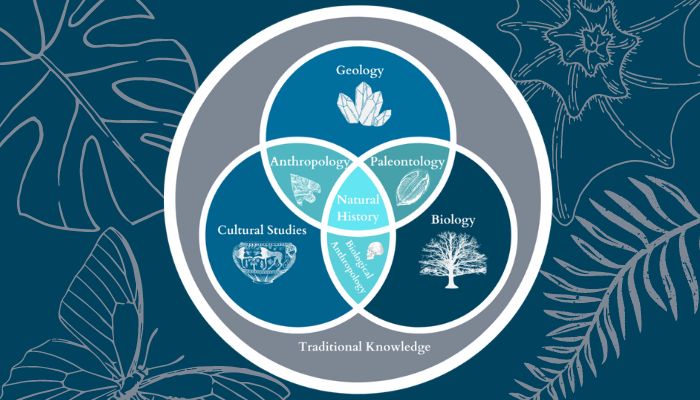
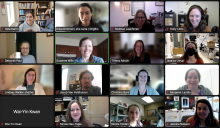
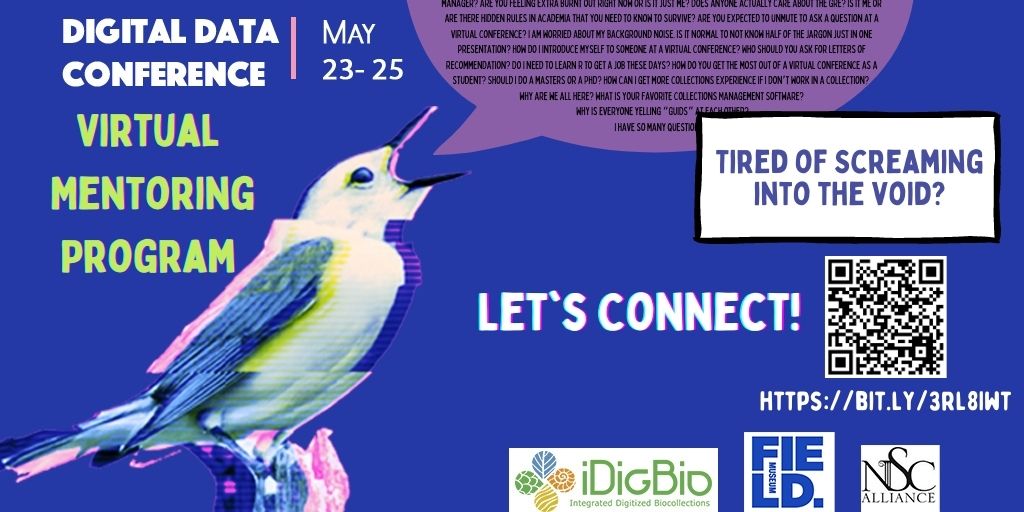
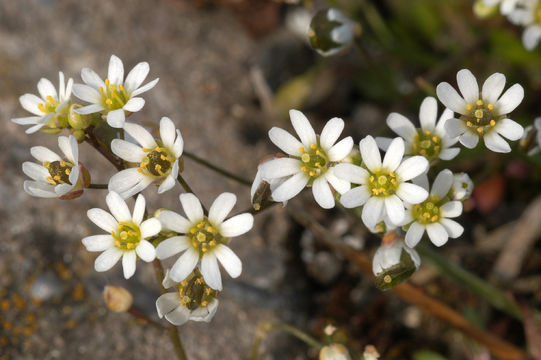
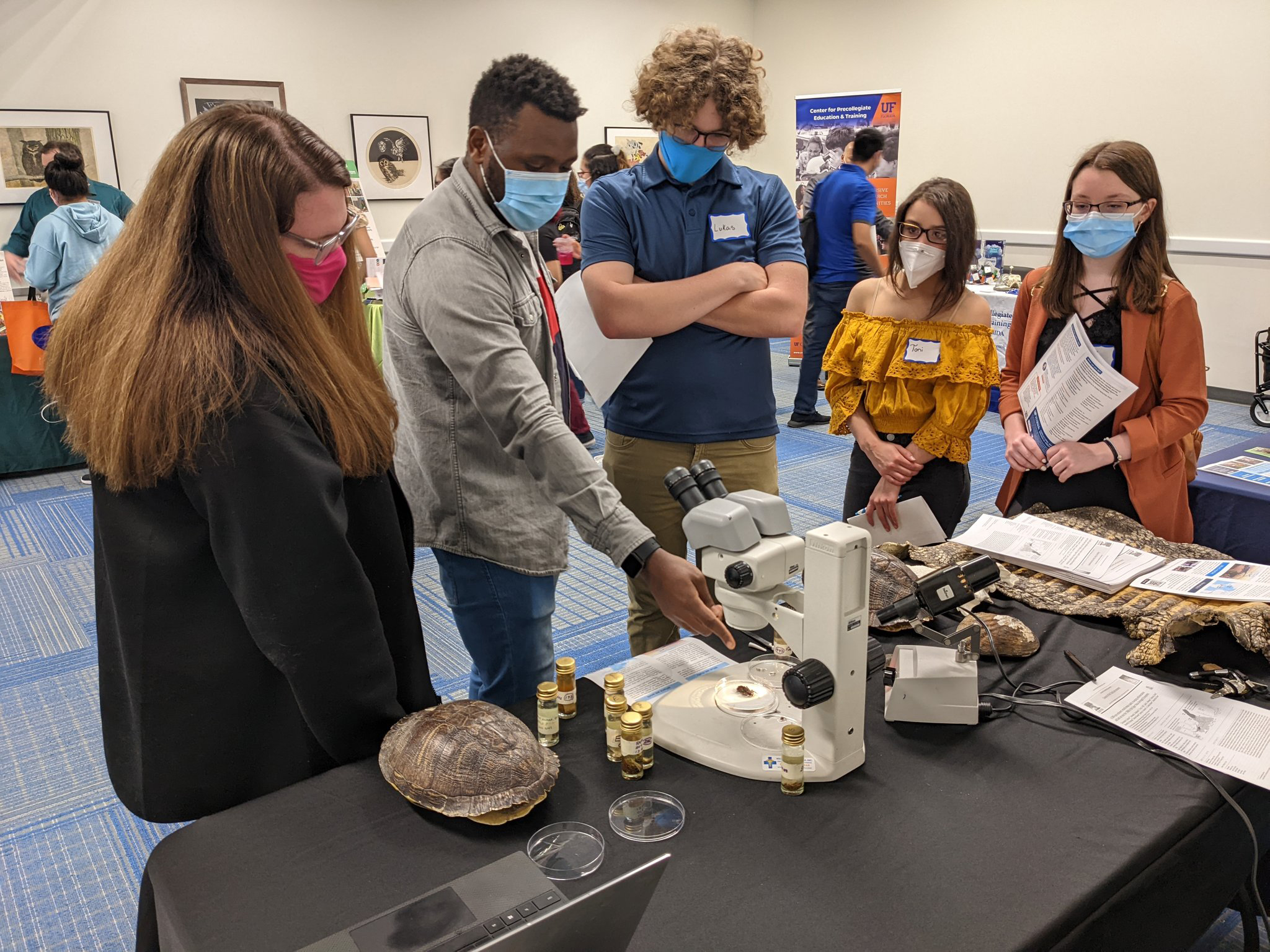
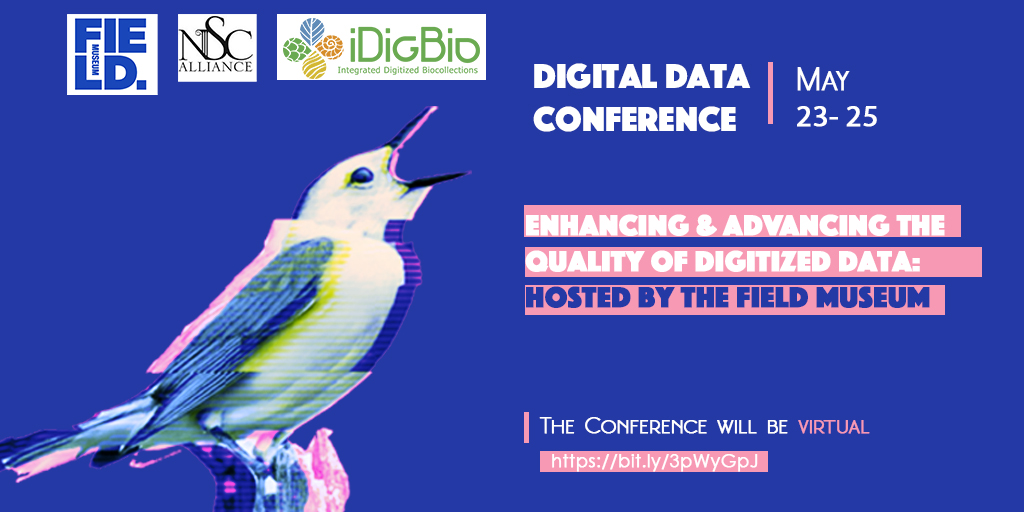
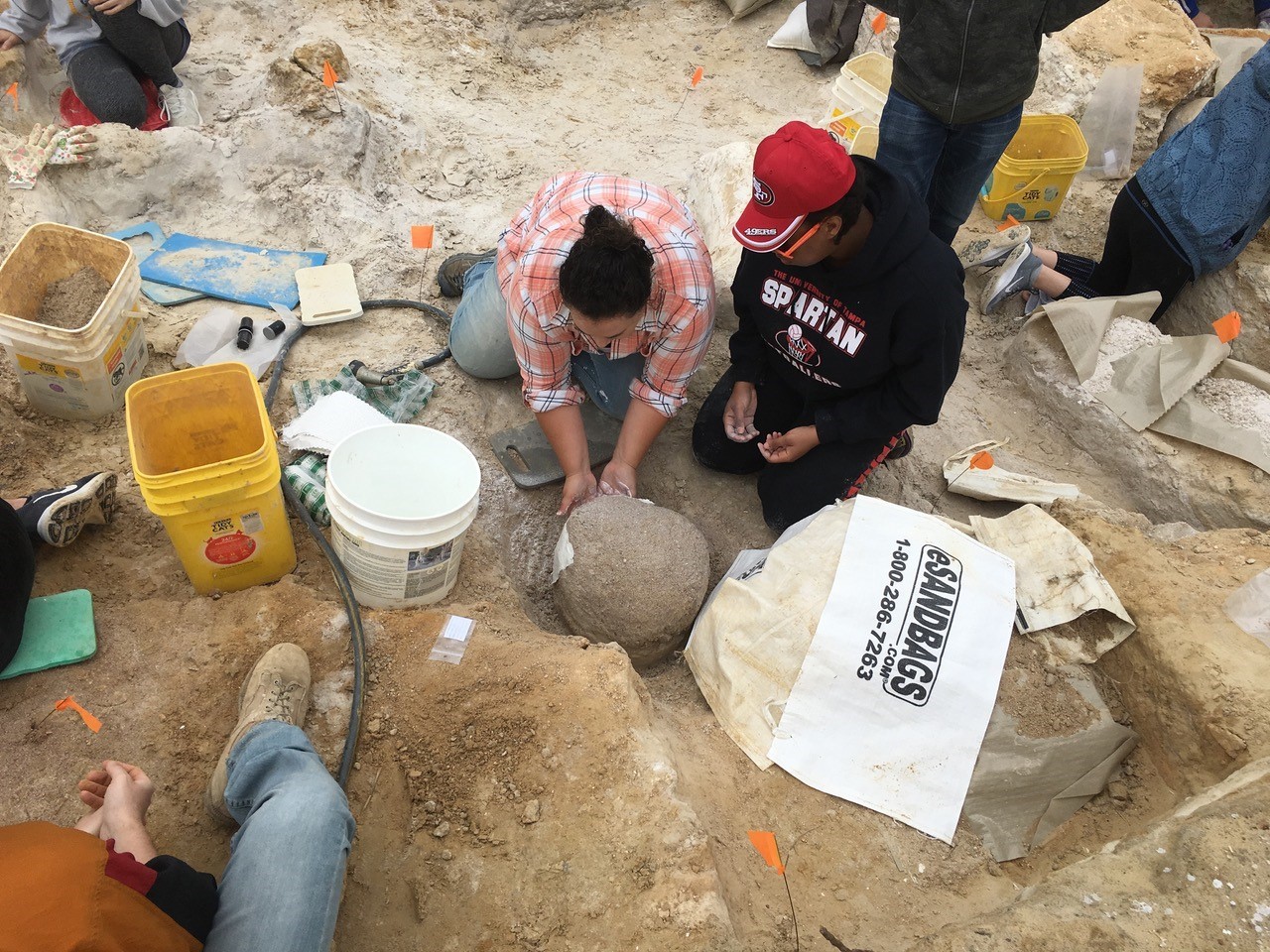
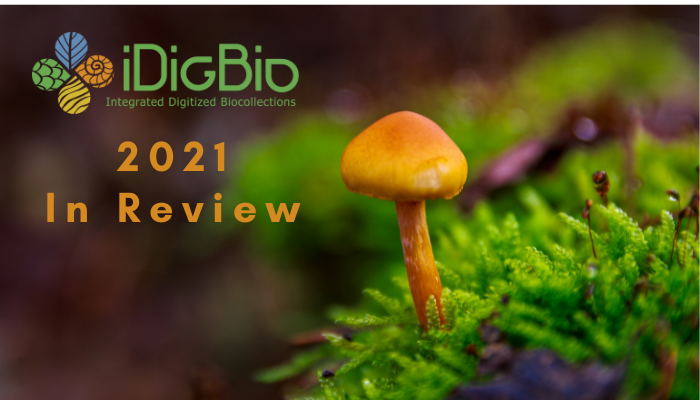
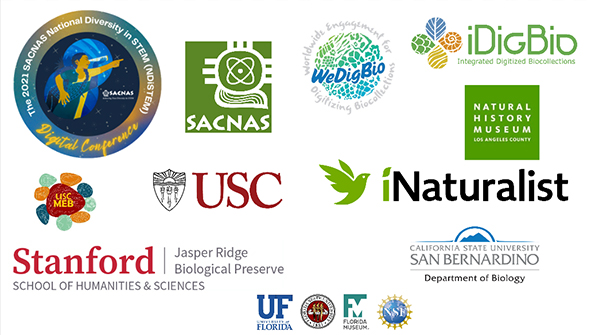
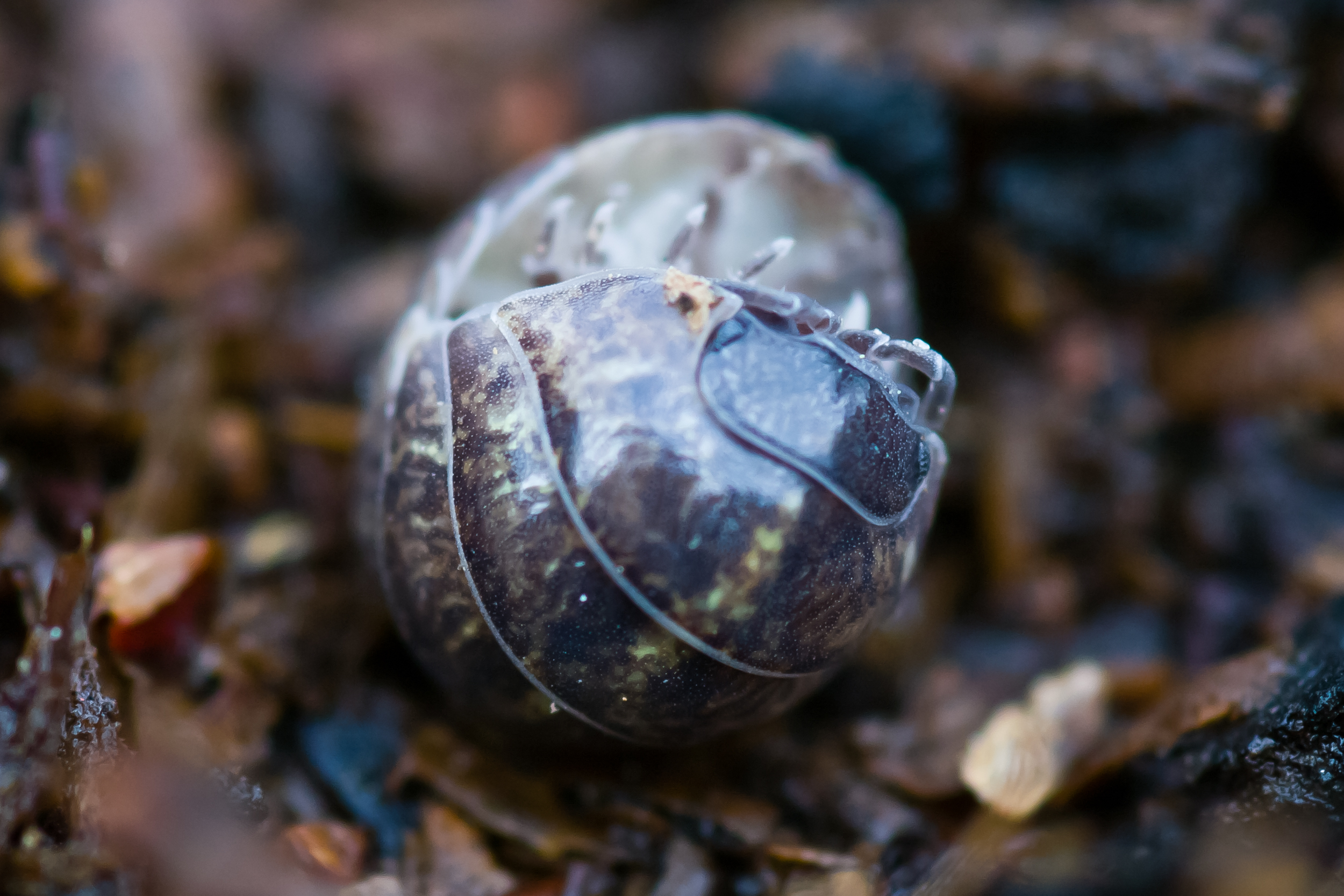

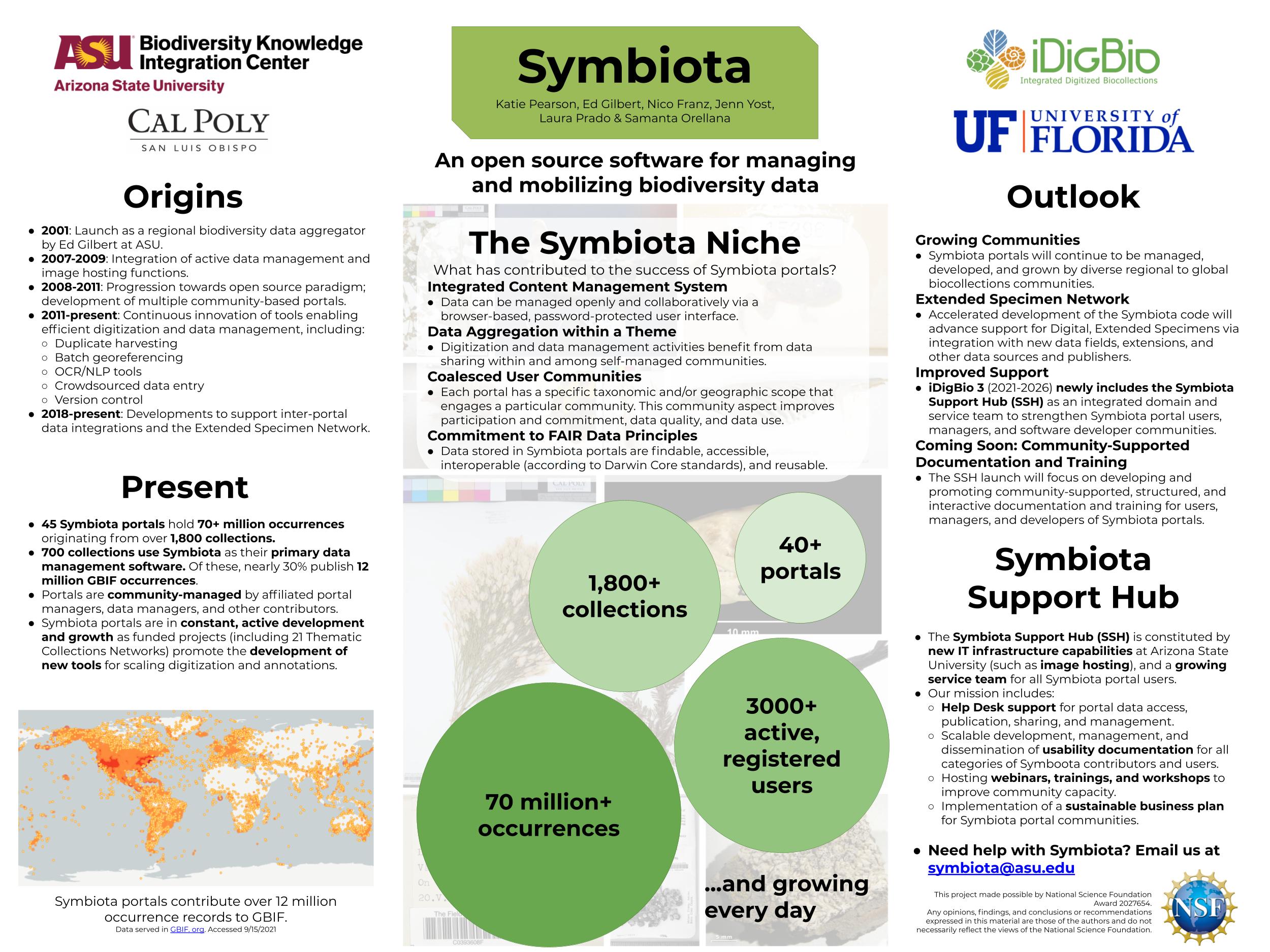
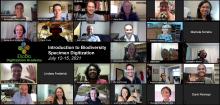
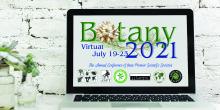
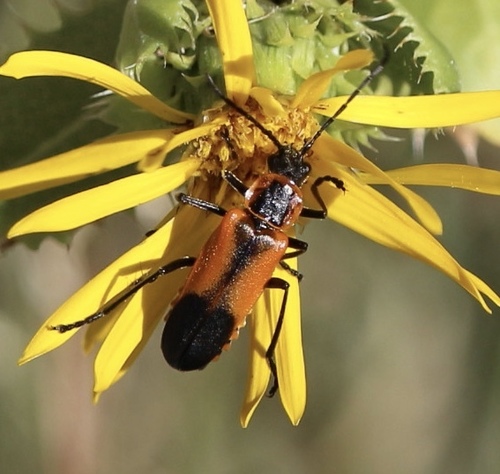
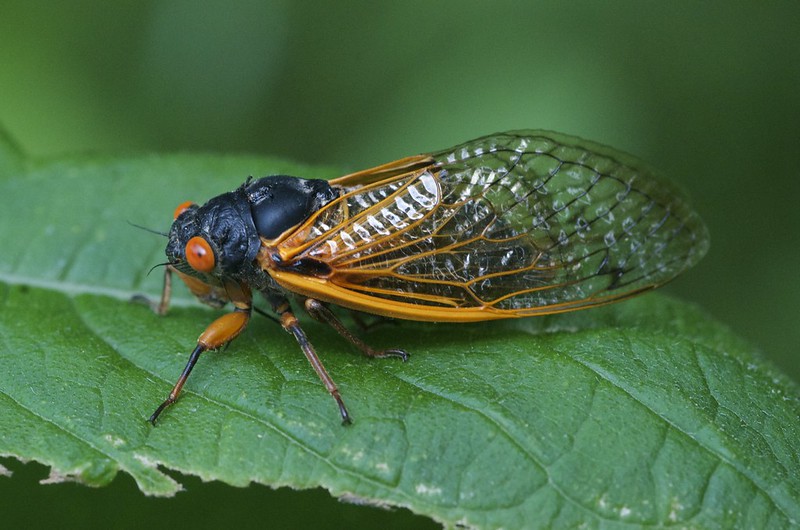
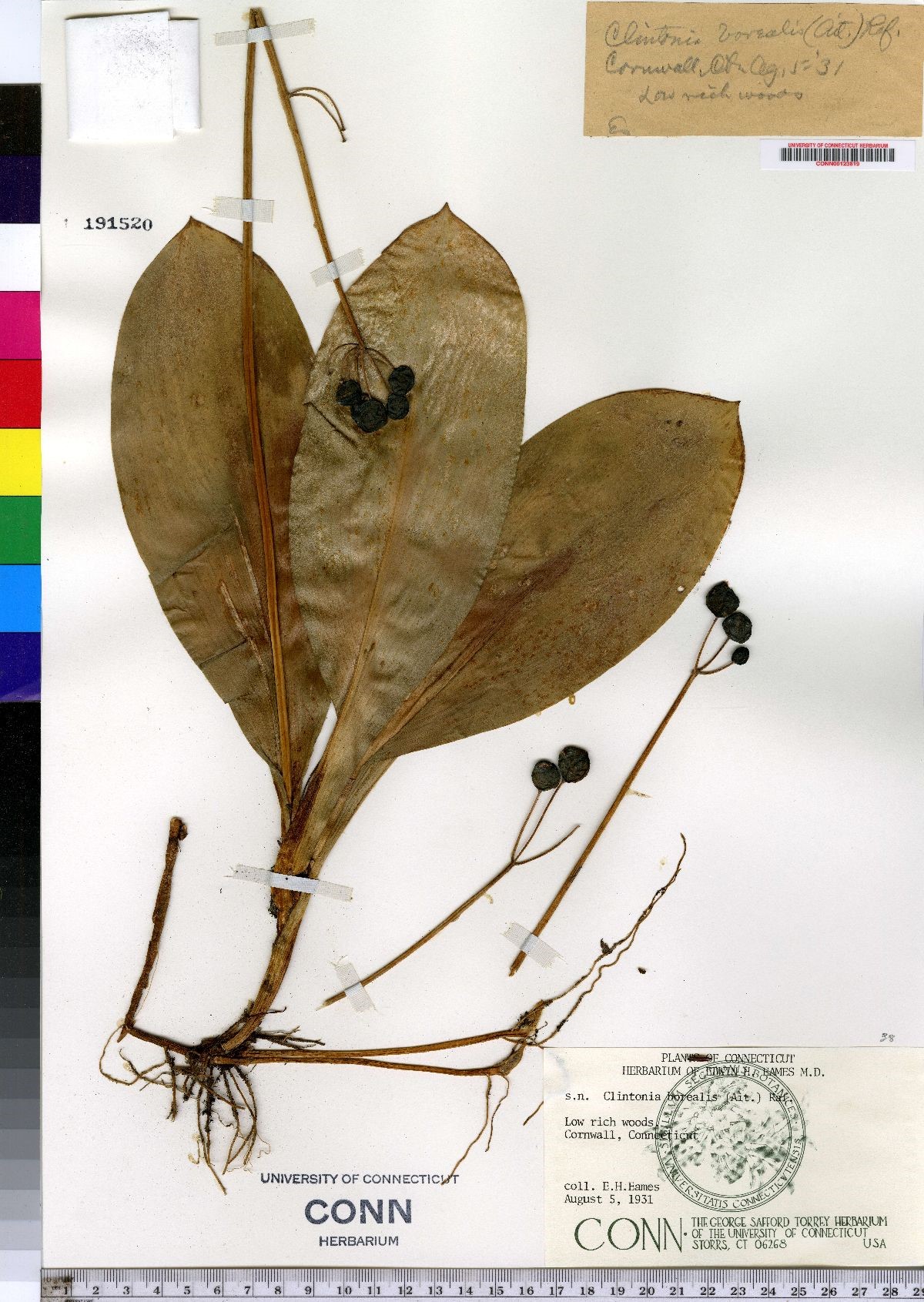
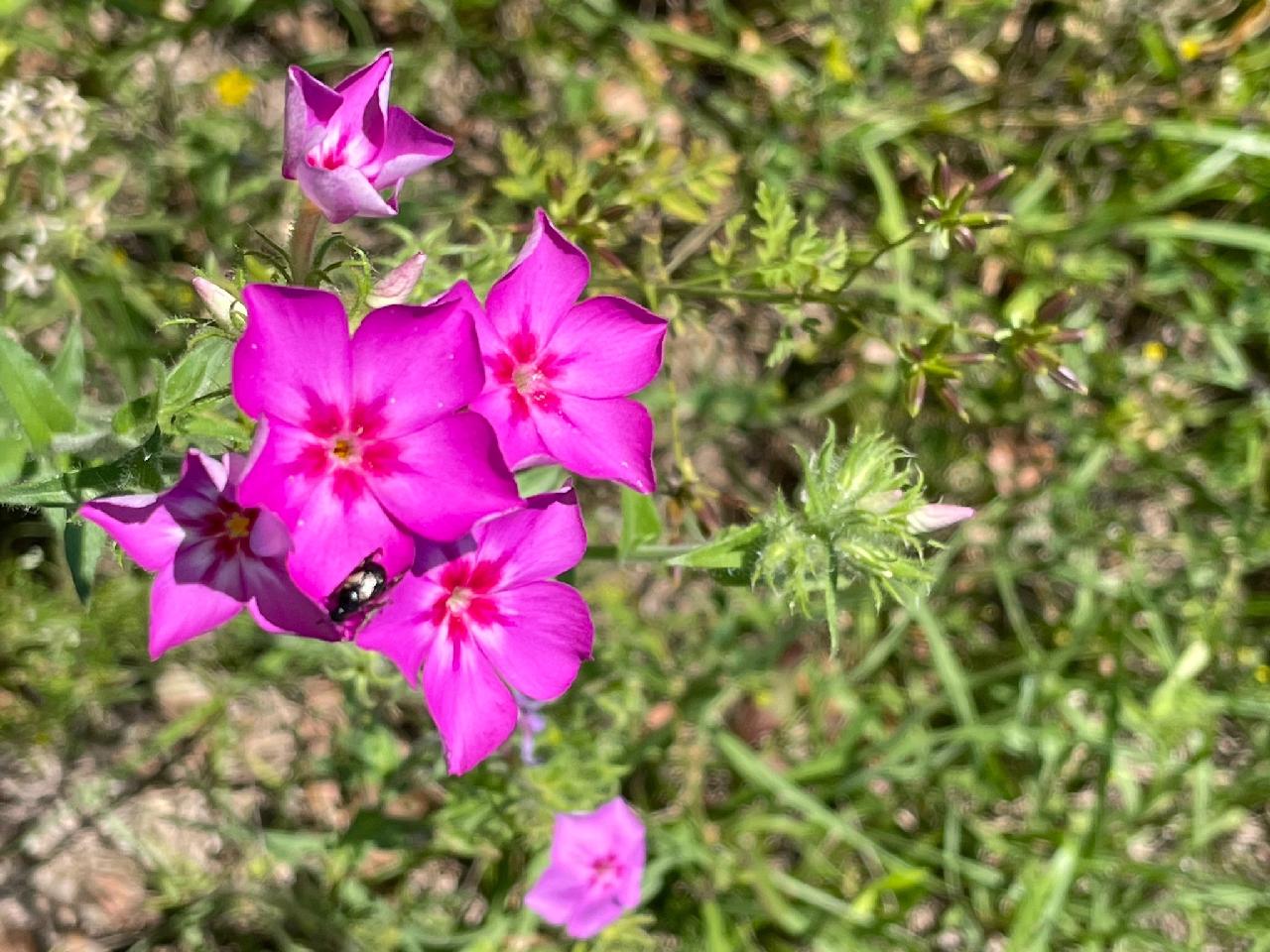
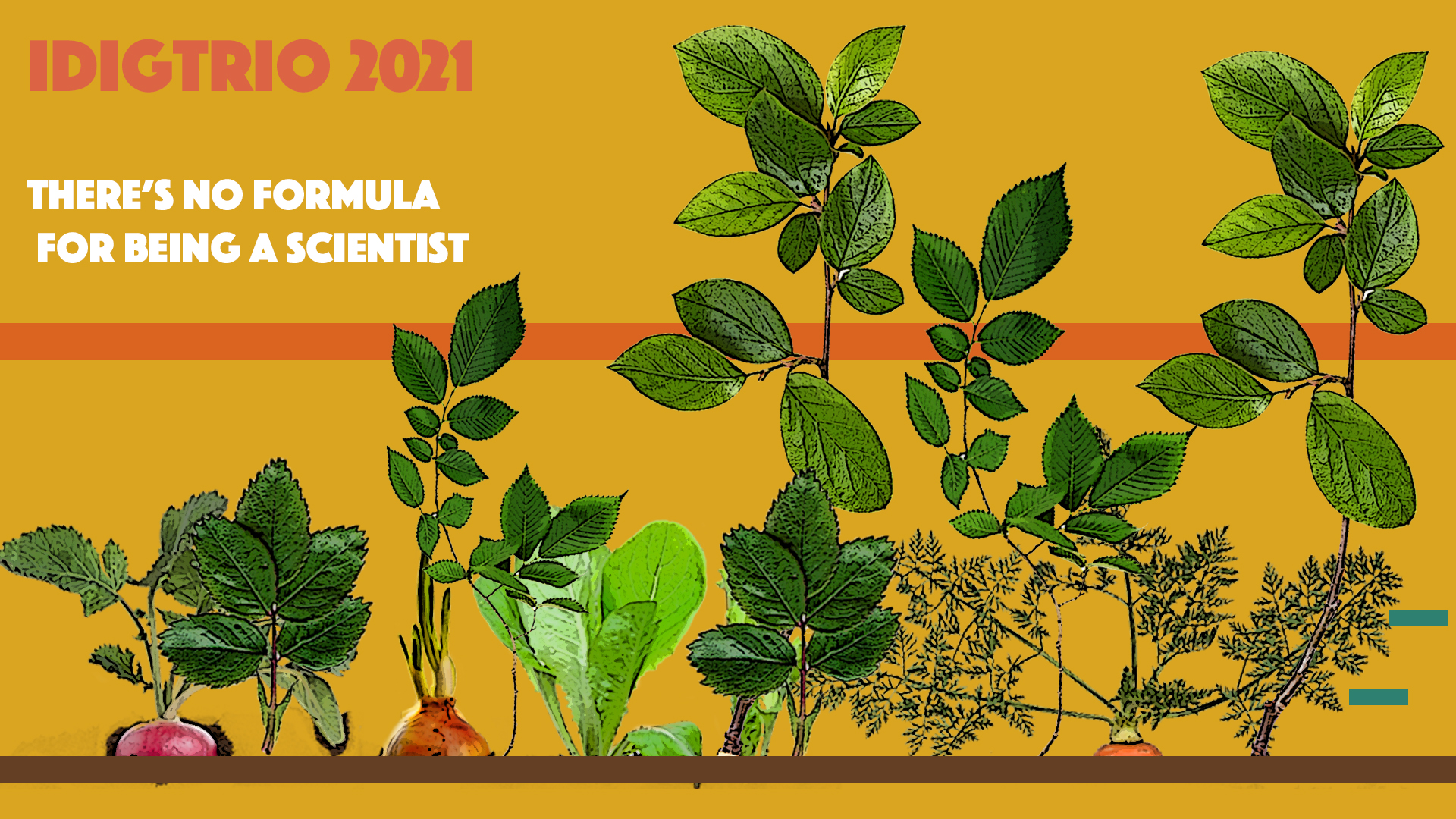
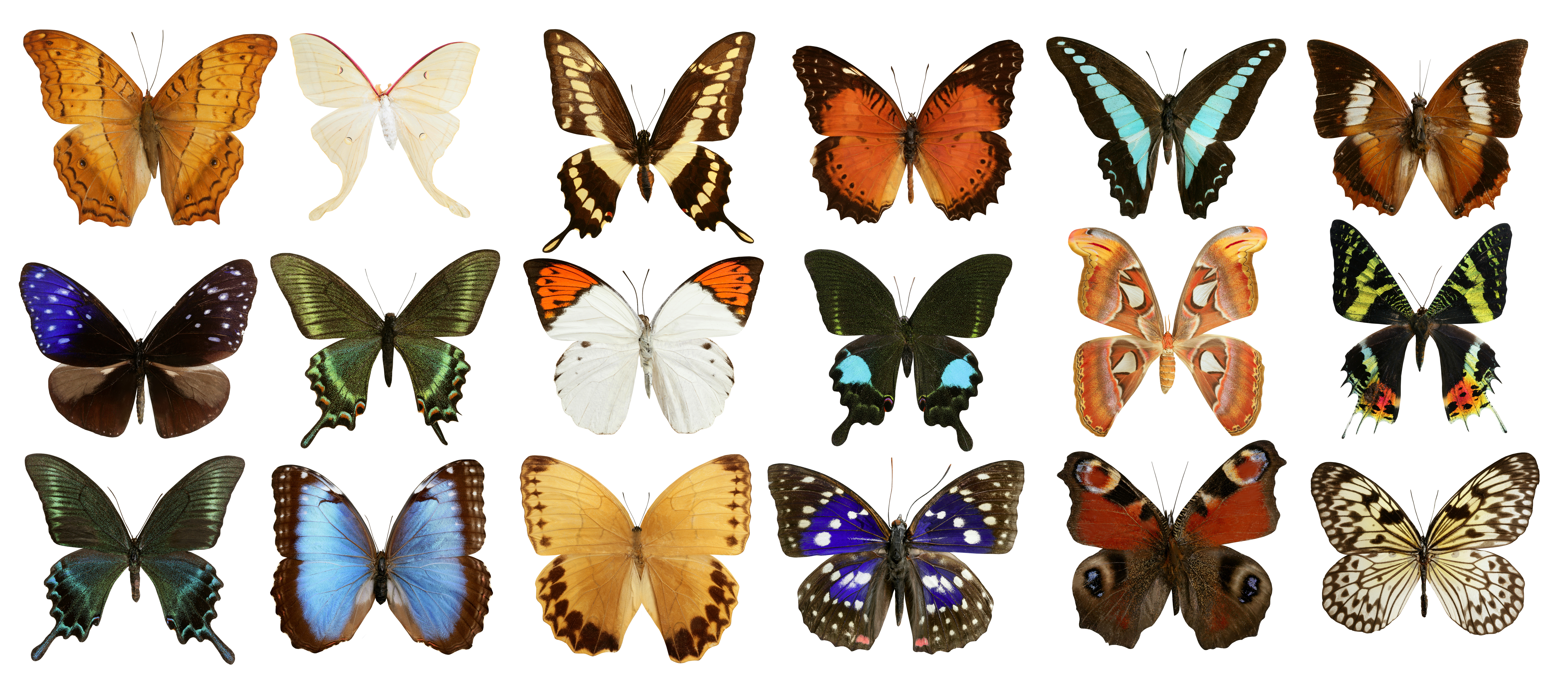
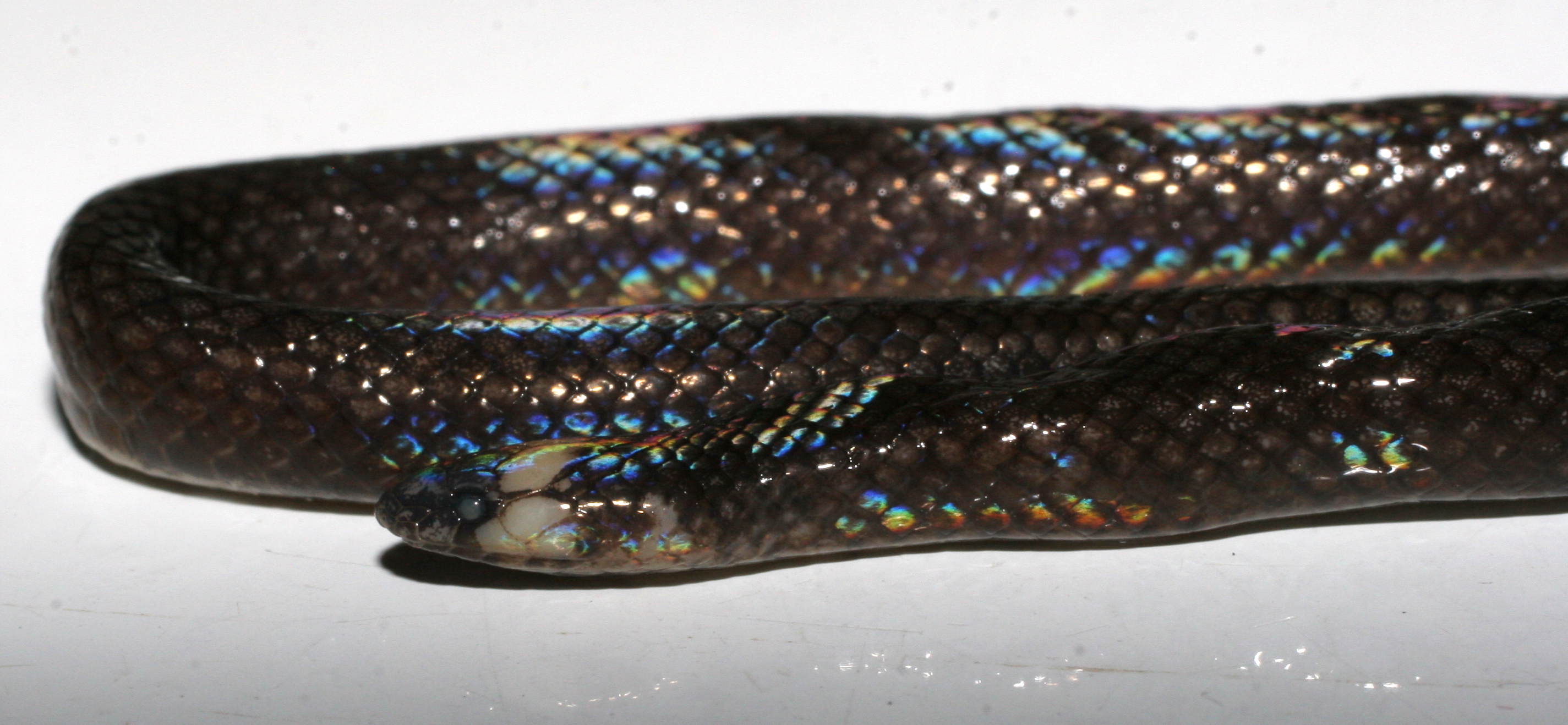
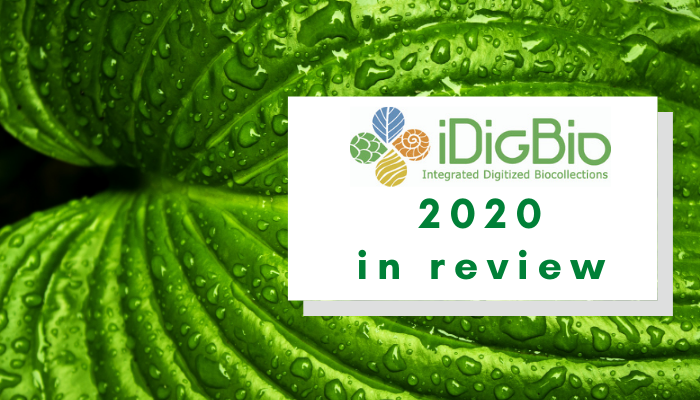

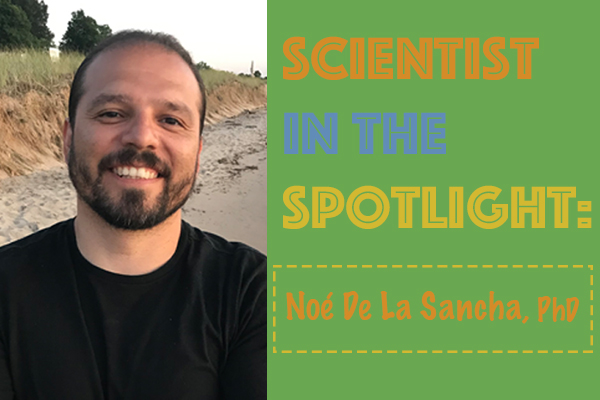
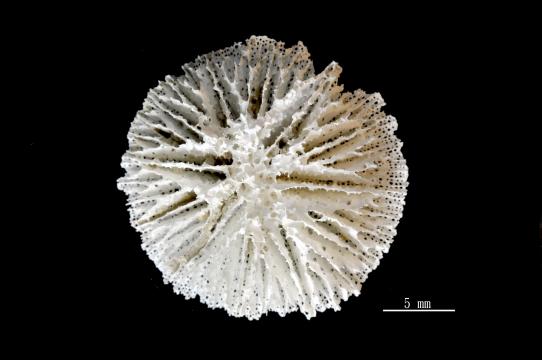
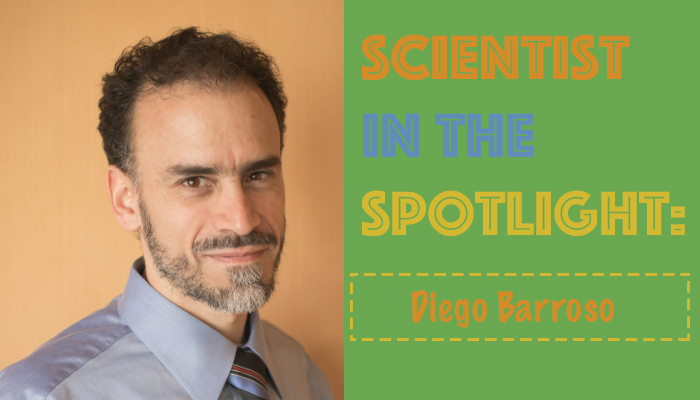
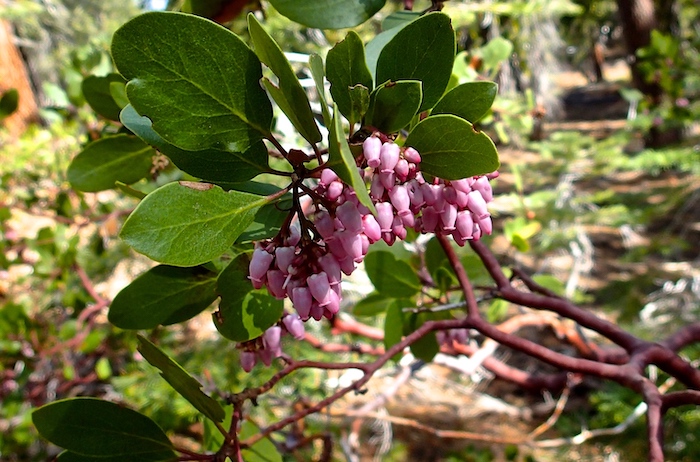
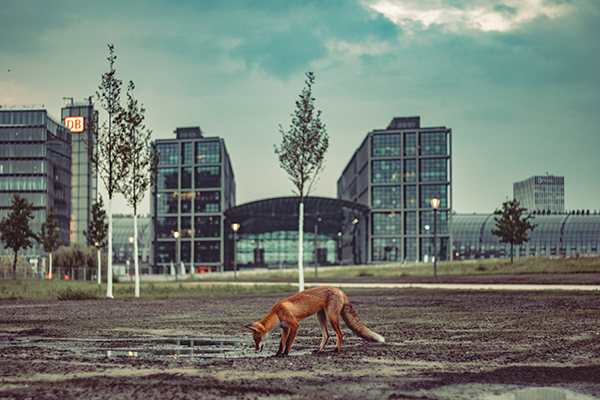
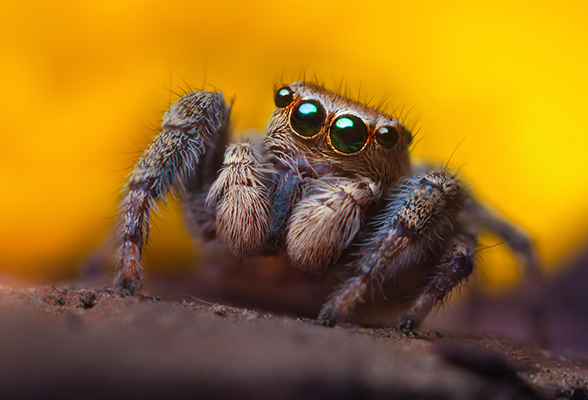
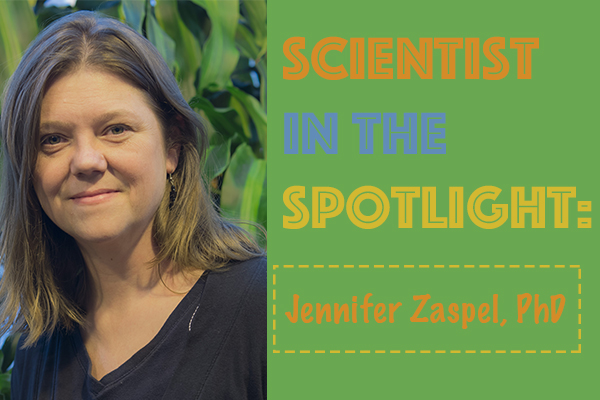
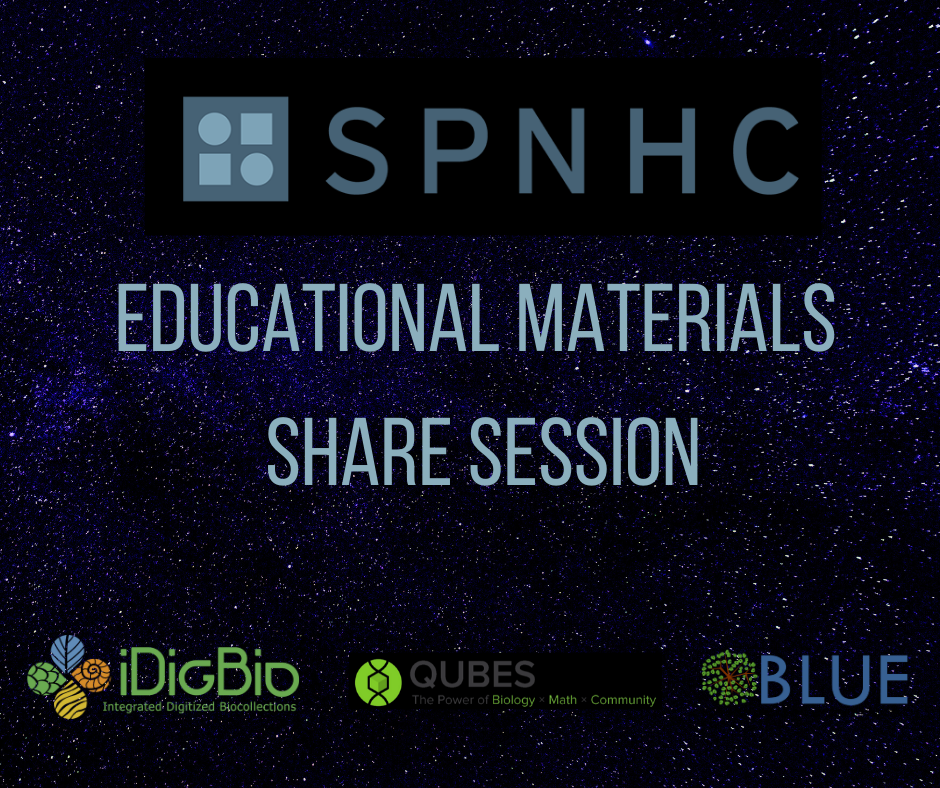
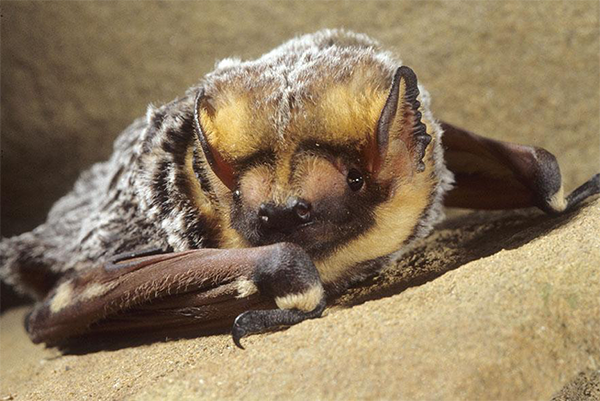
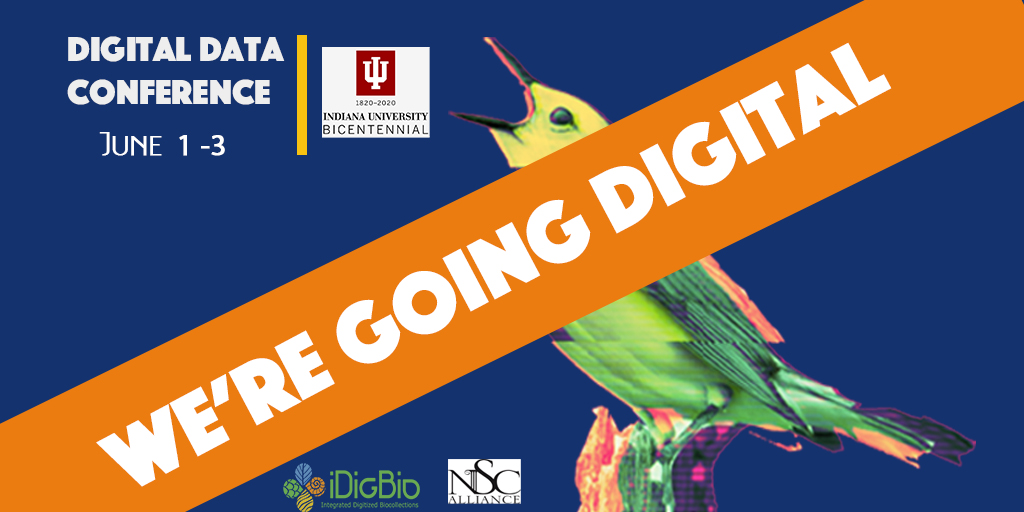
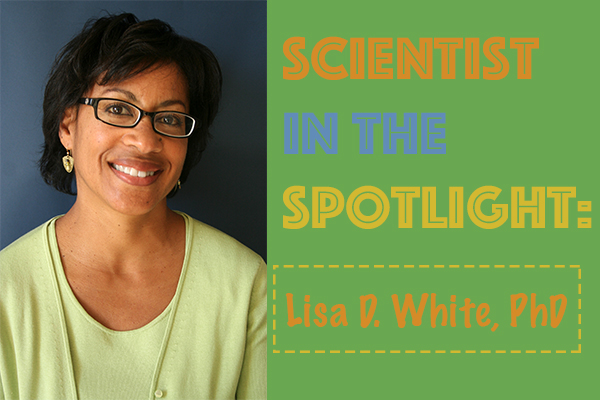
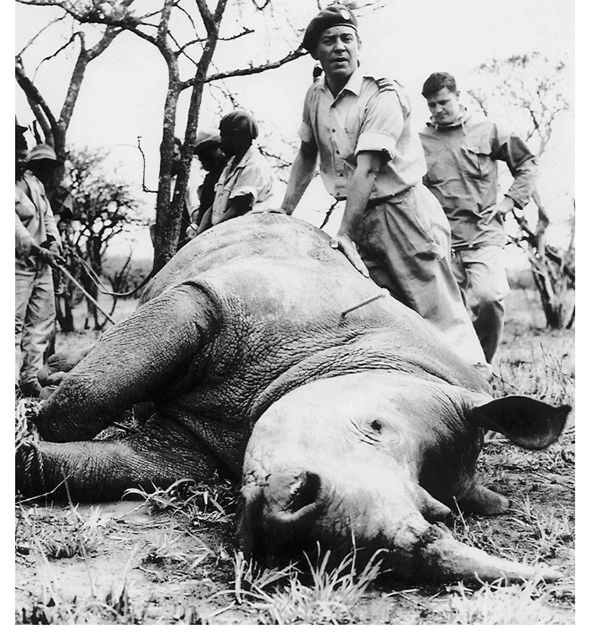
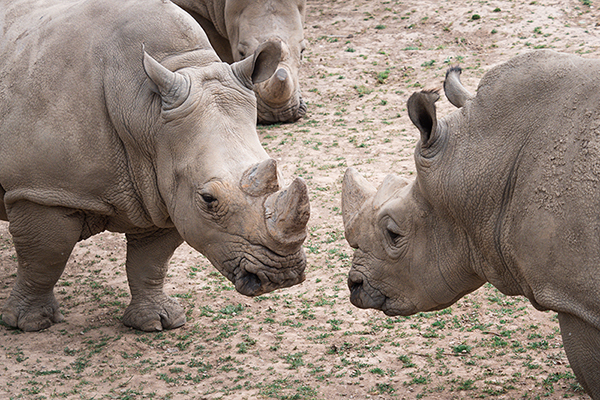
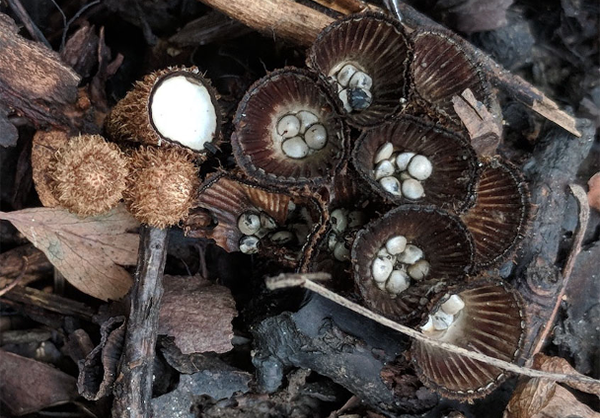
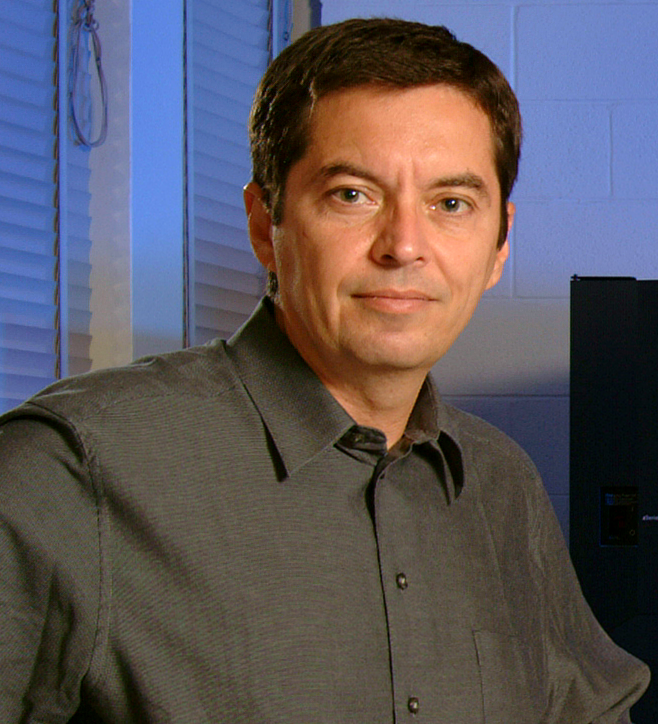
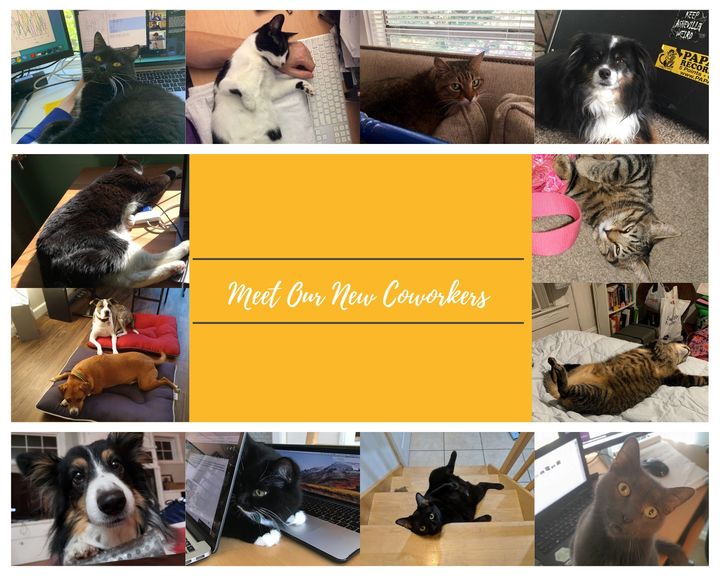
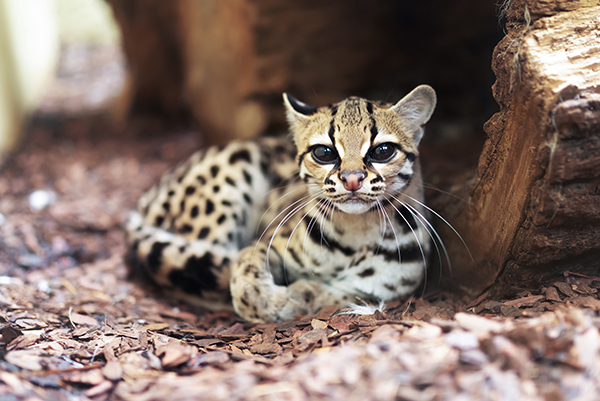
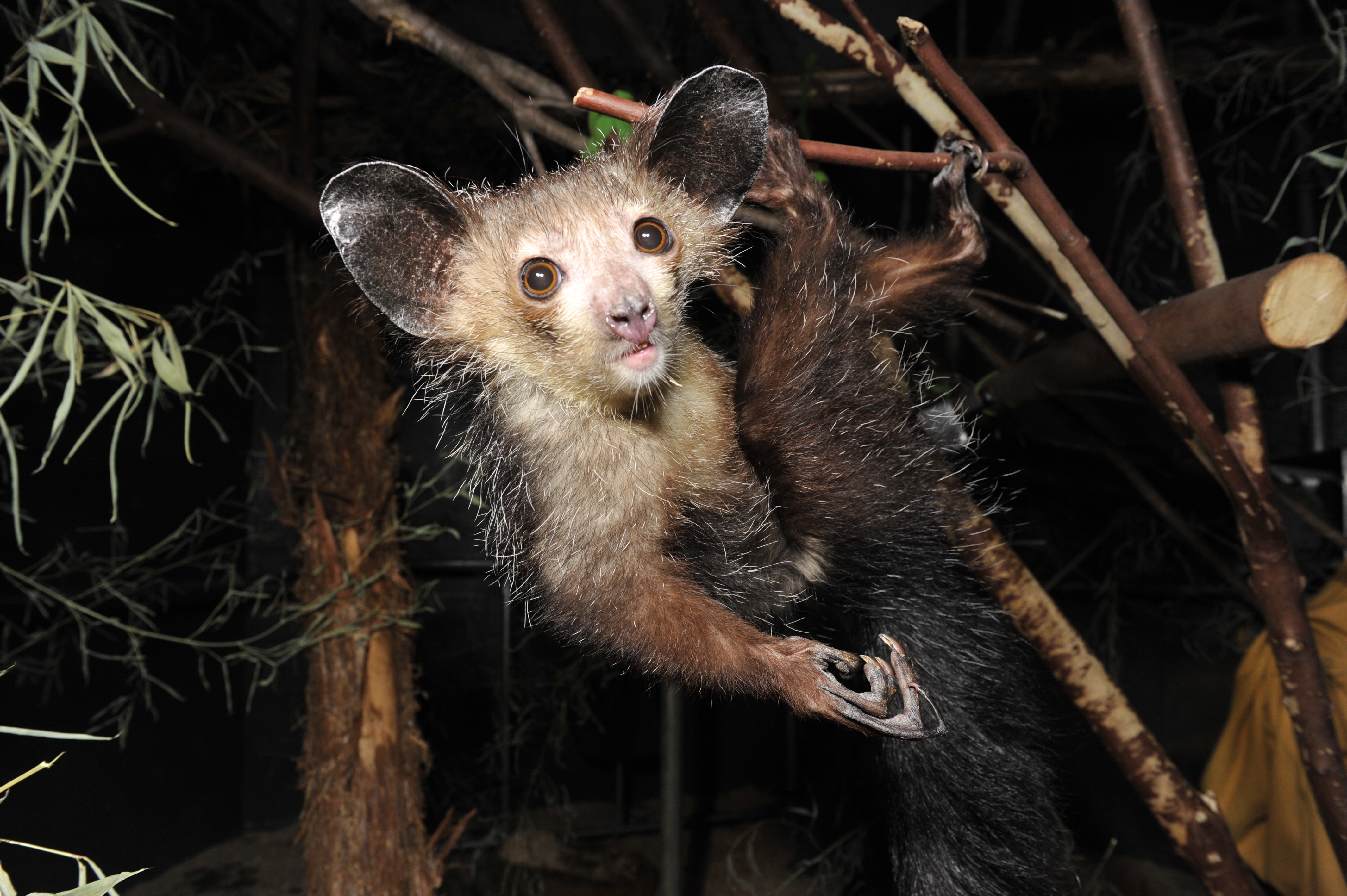
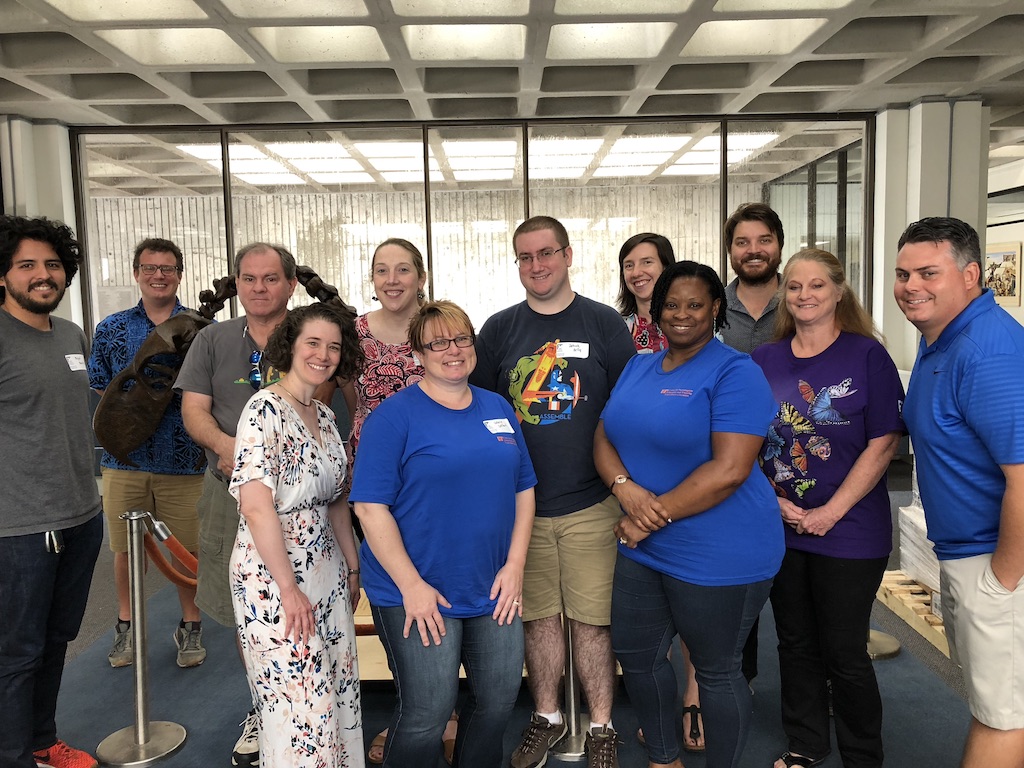
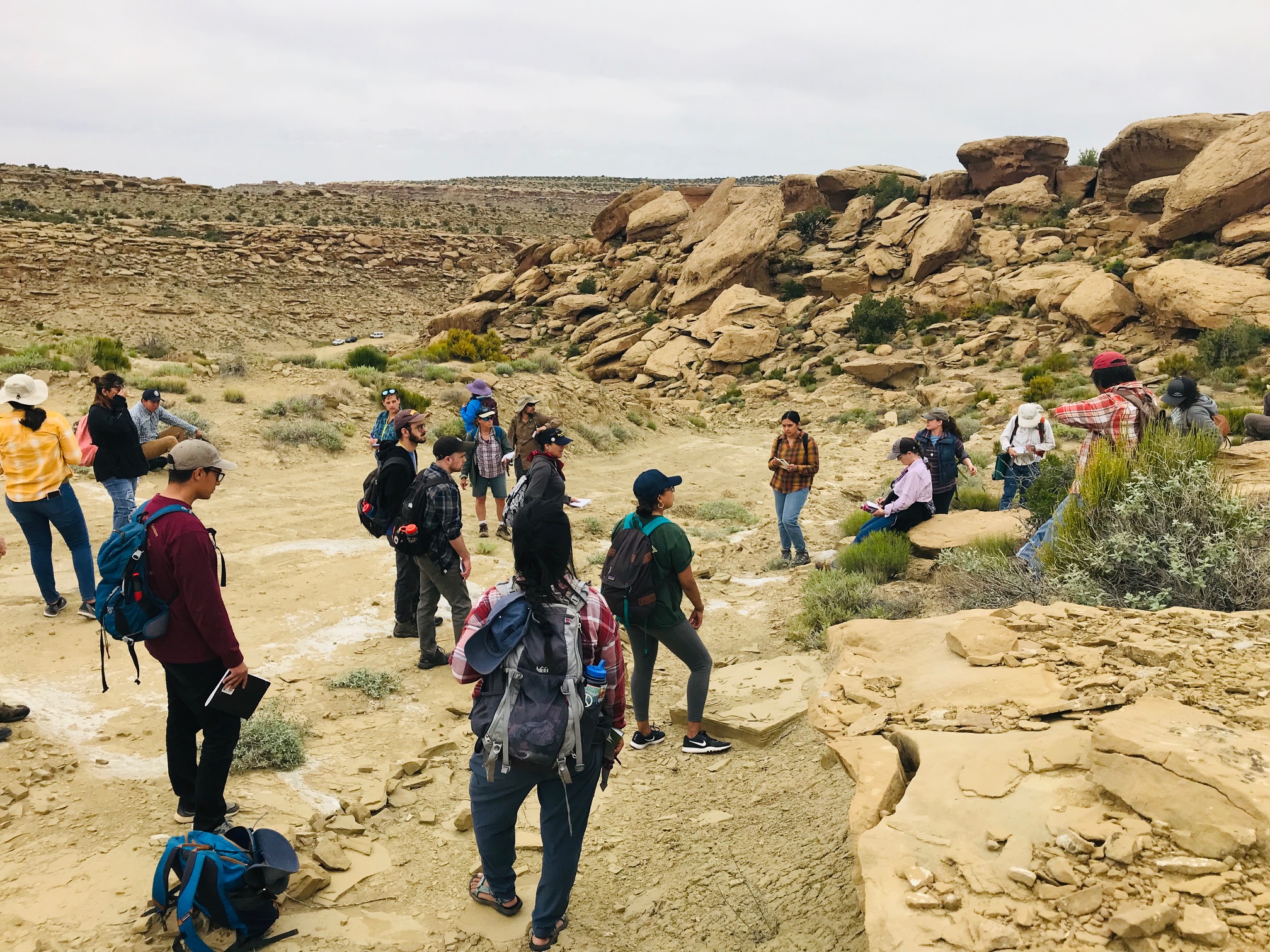
 Contributed by: Molly Phillips, iDigBio's Education, Outreach & Diversity Coordinator
Contributed by: Molly Phillips, iDigBio's Education, Outreach & Diversity Coordinator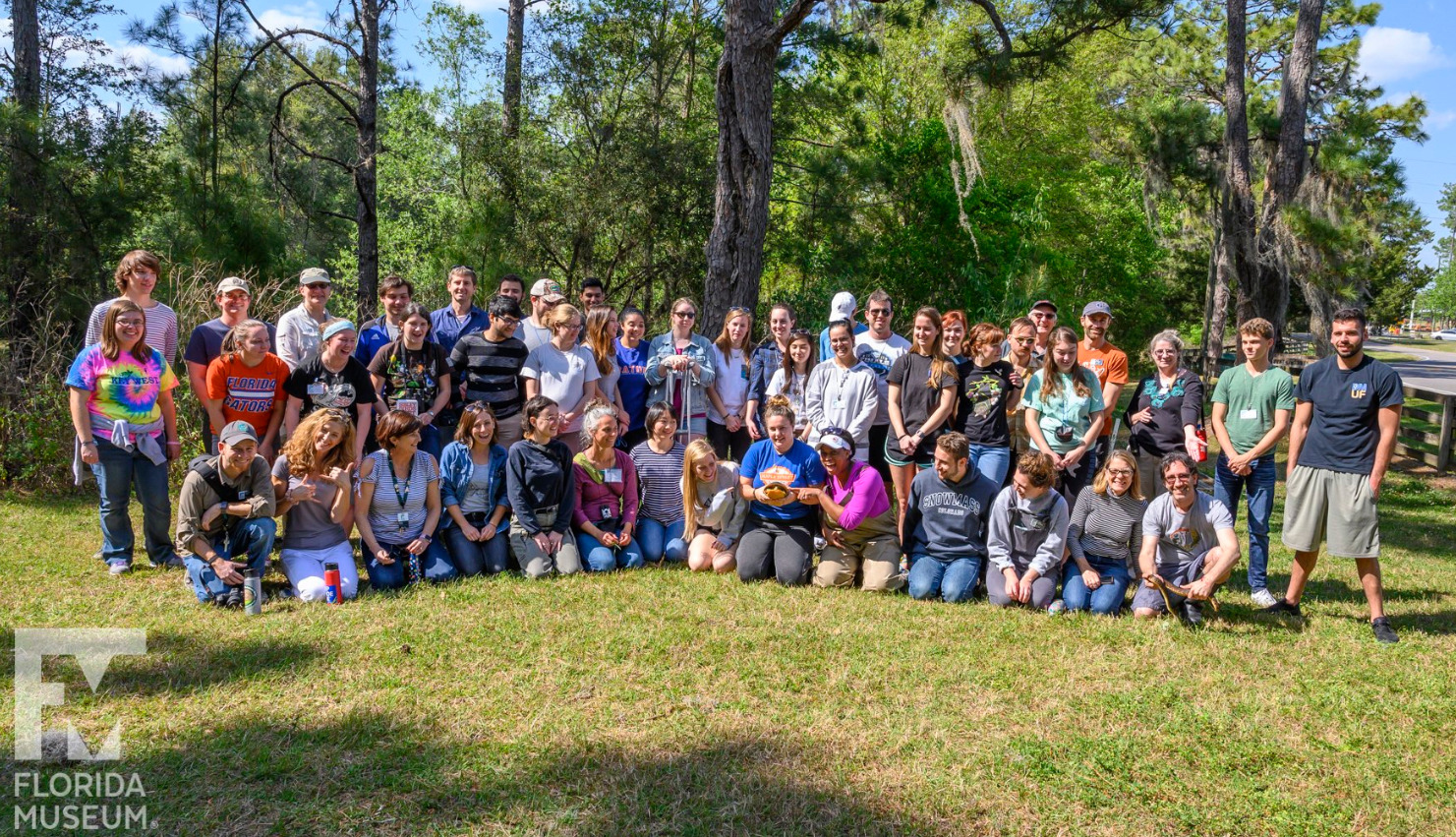
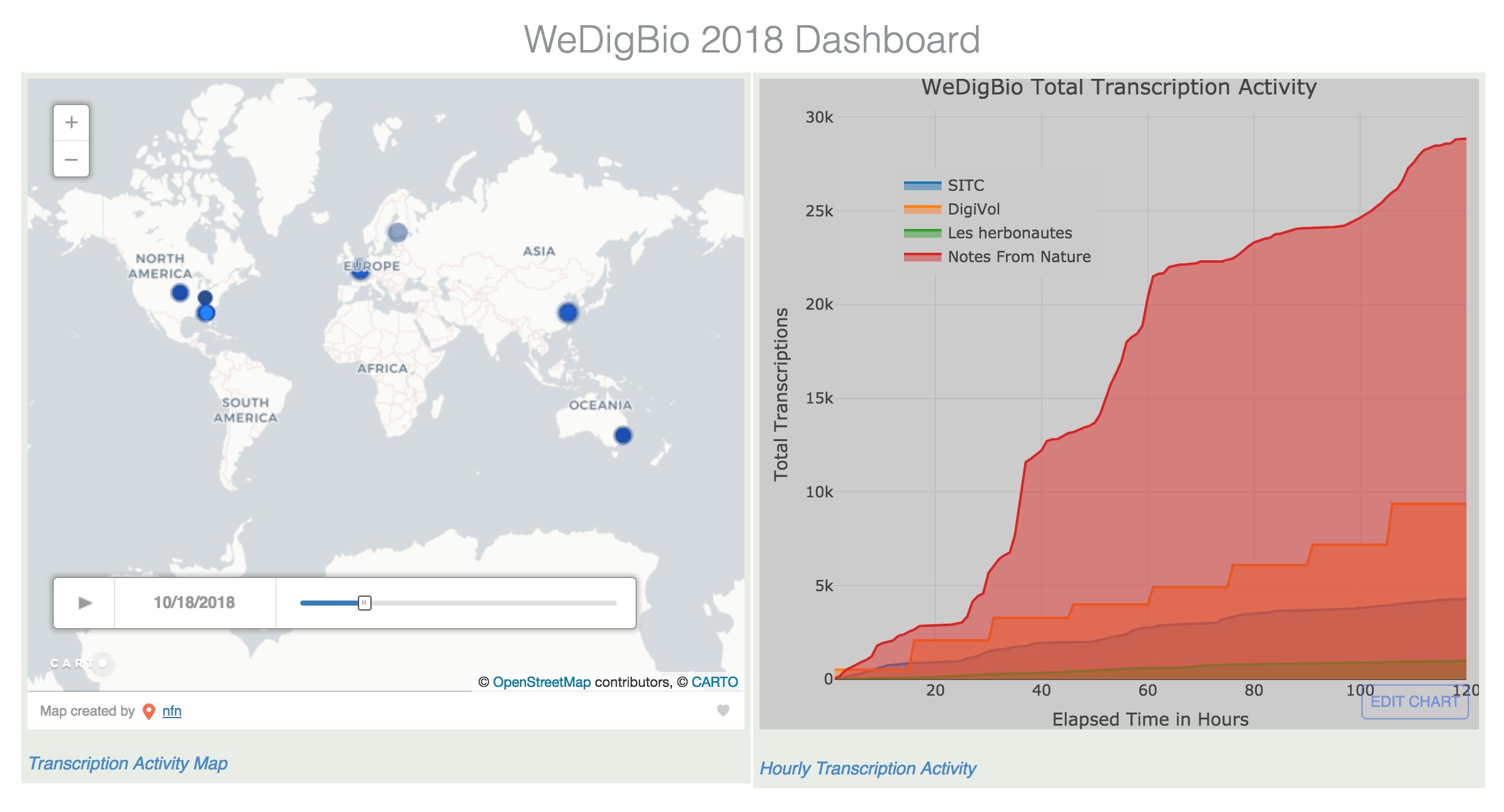
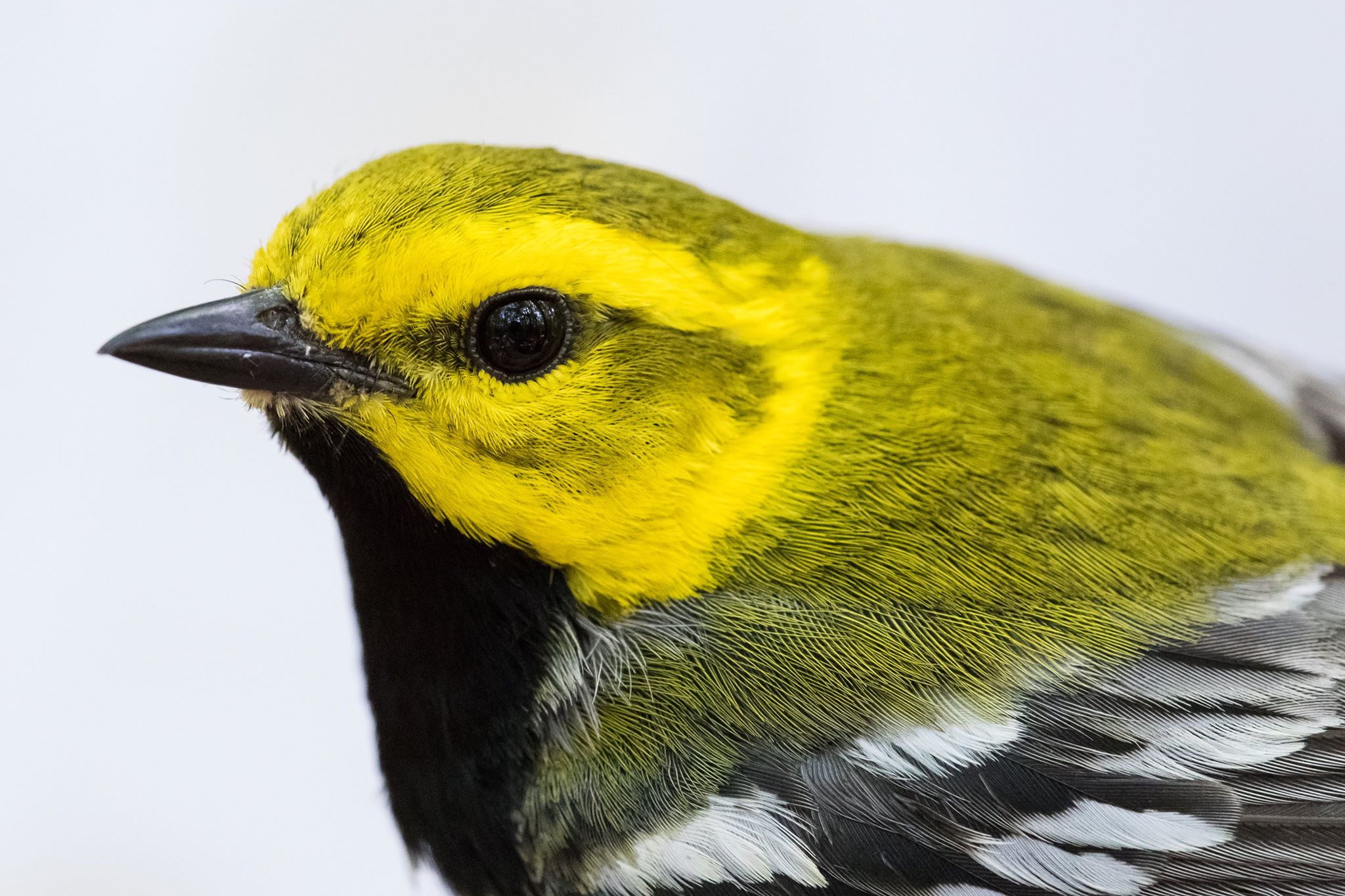
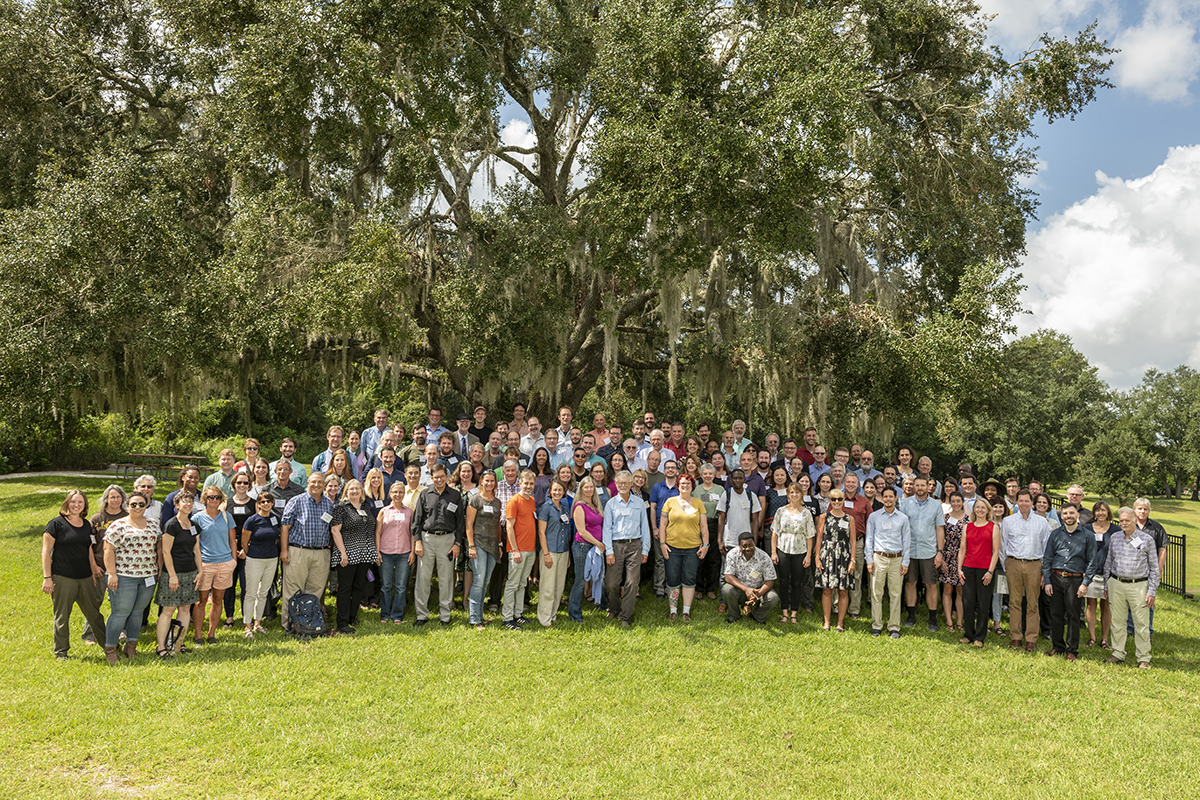
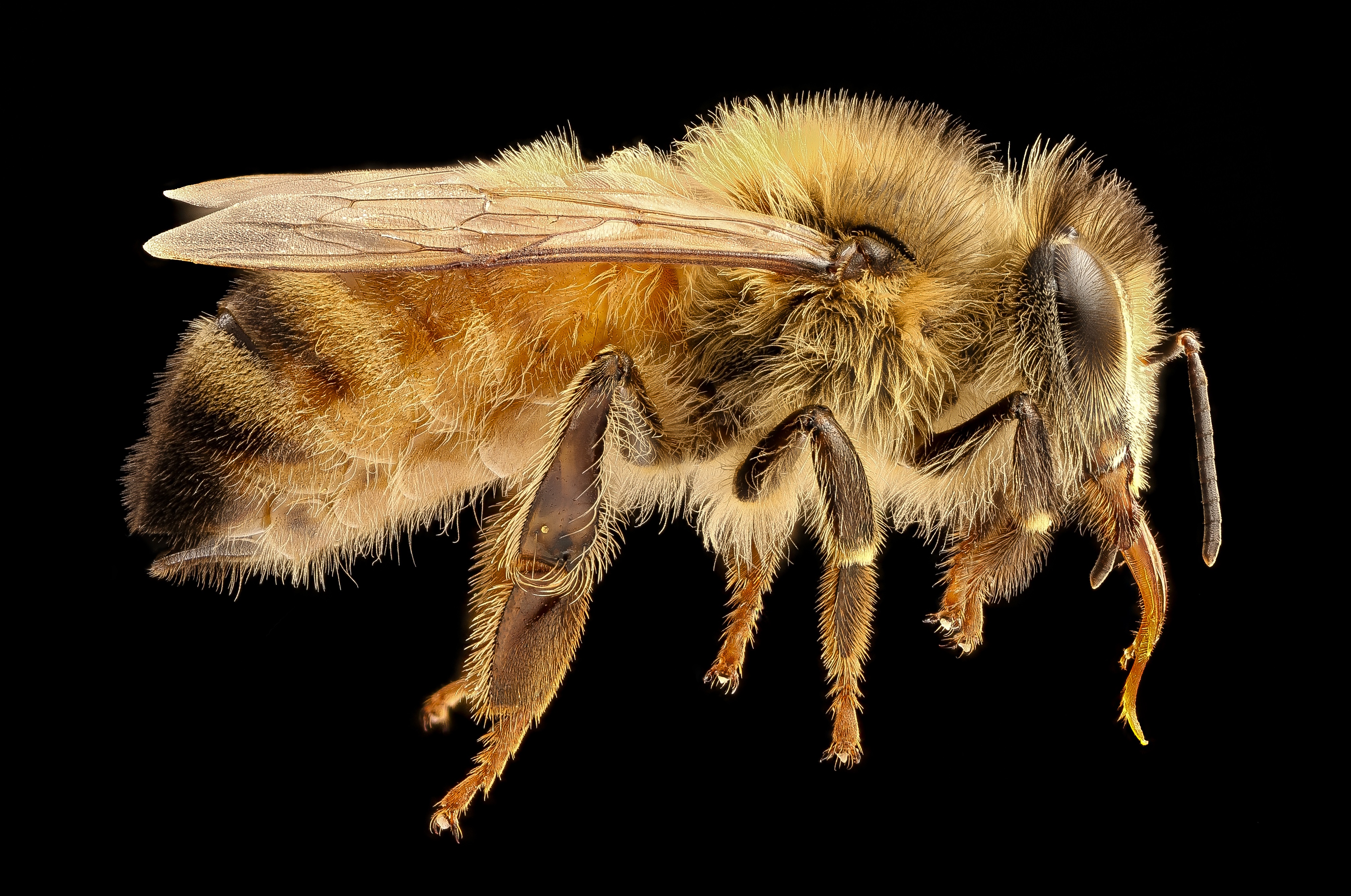
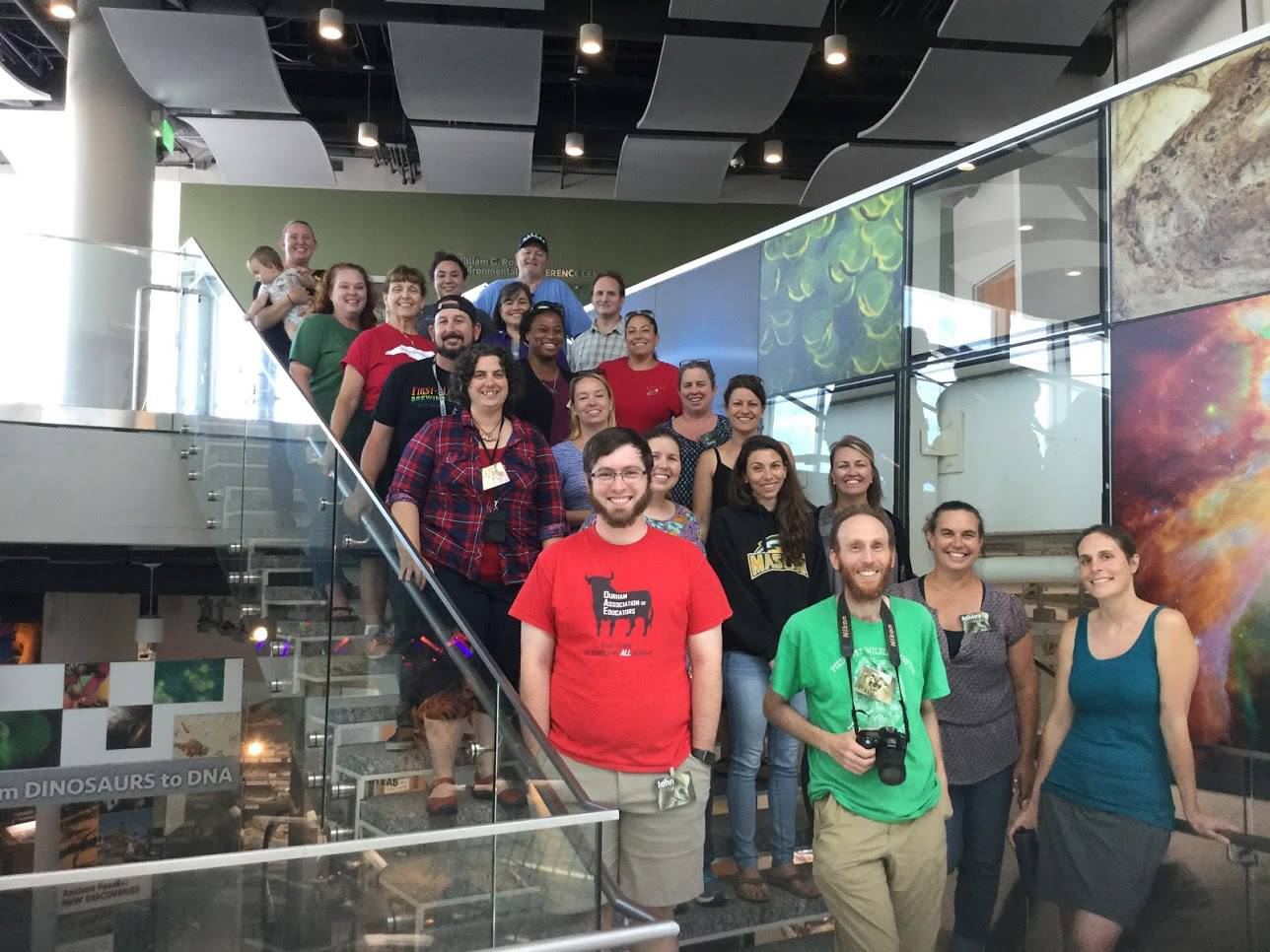

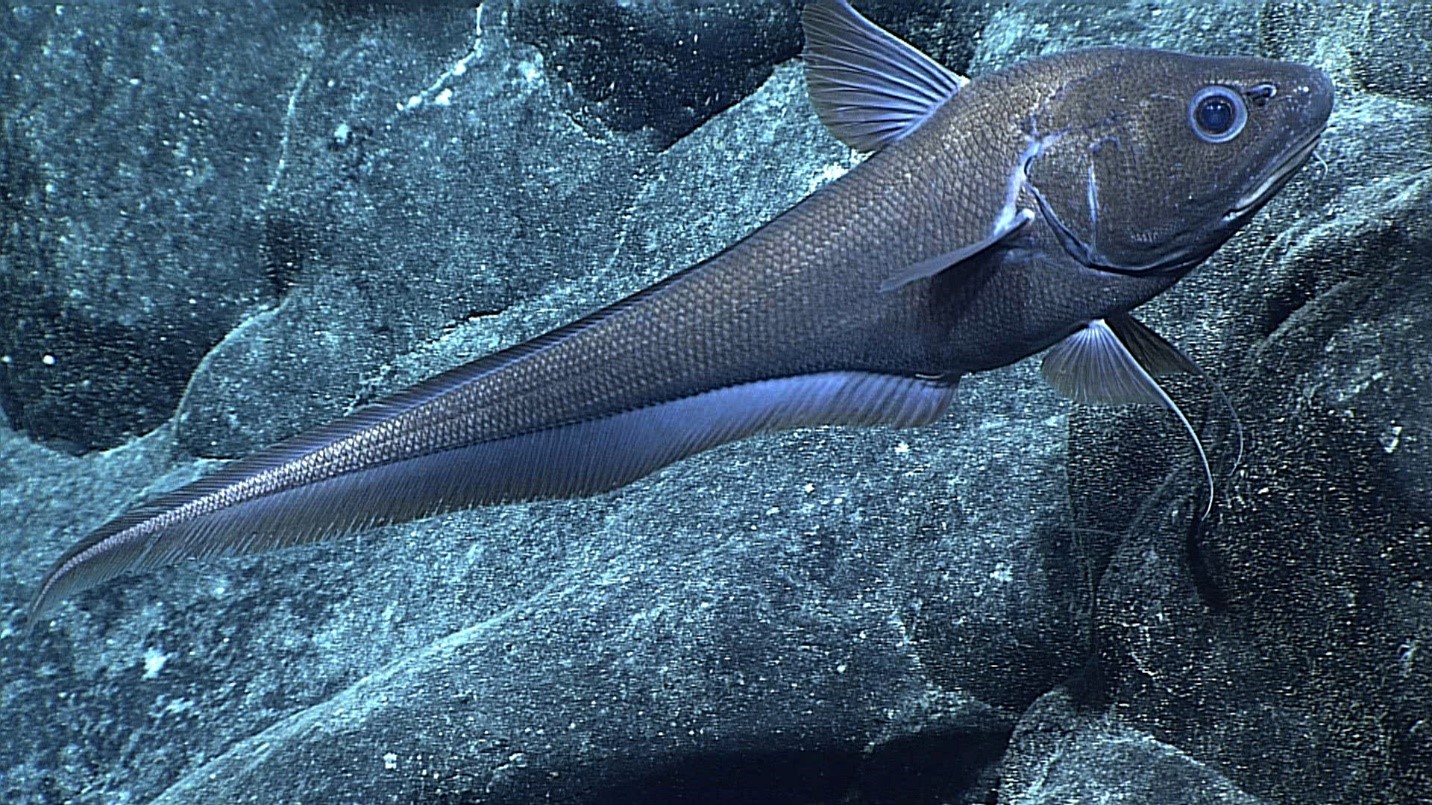
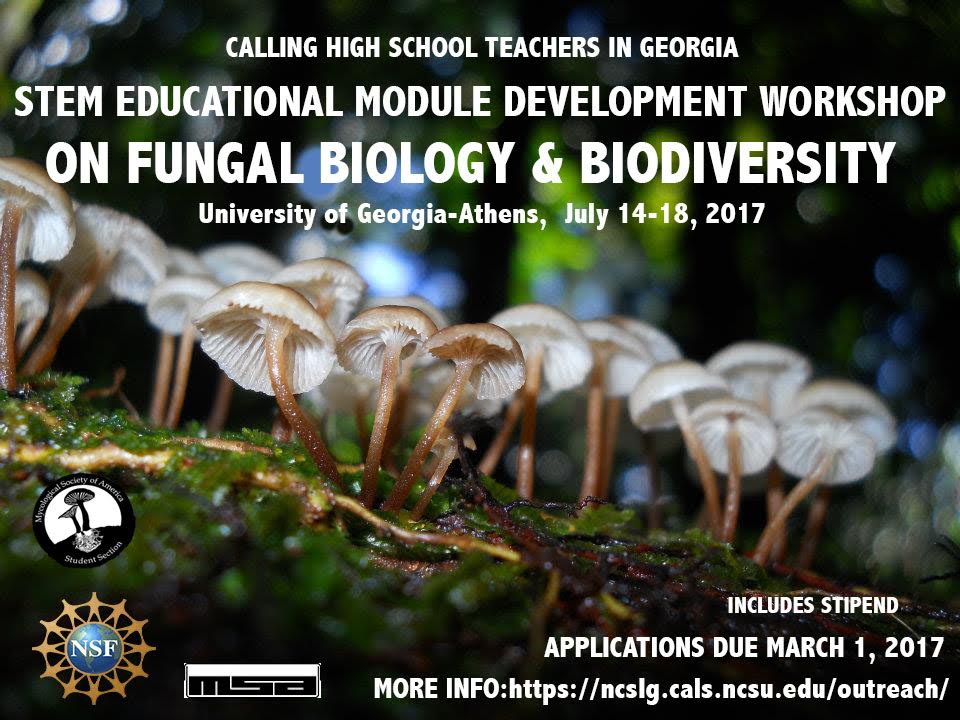
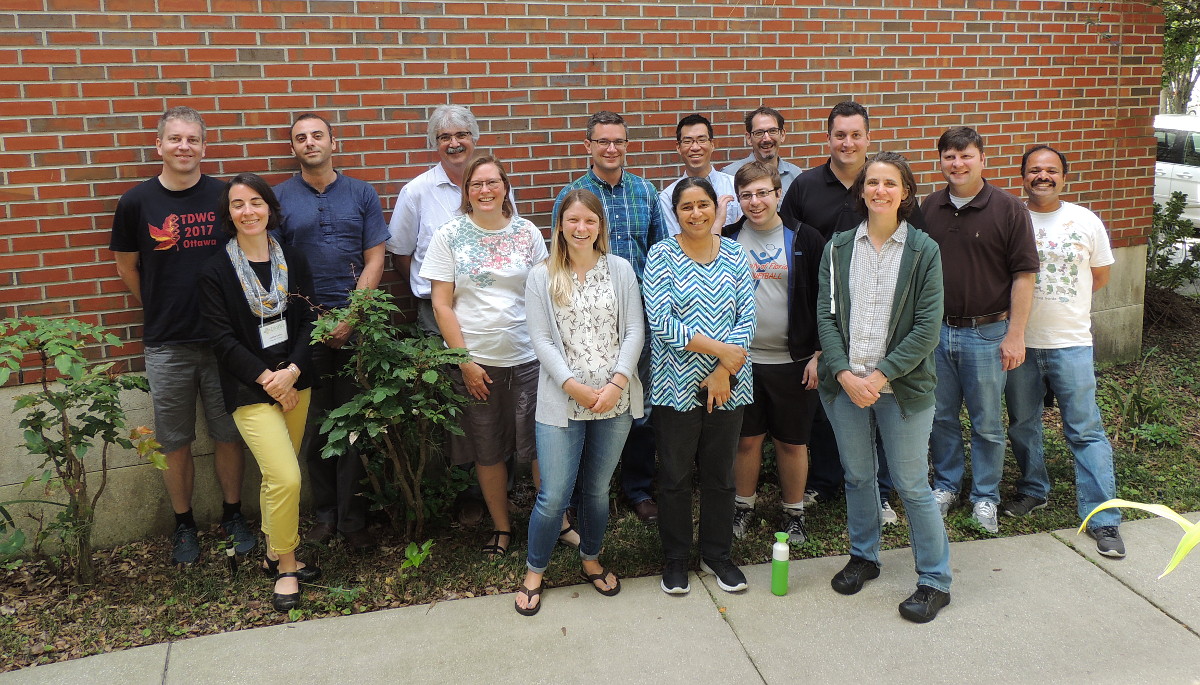
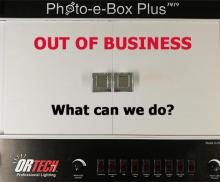
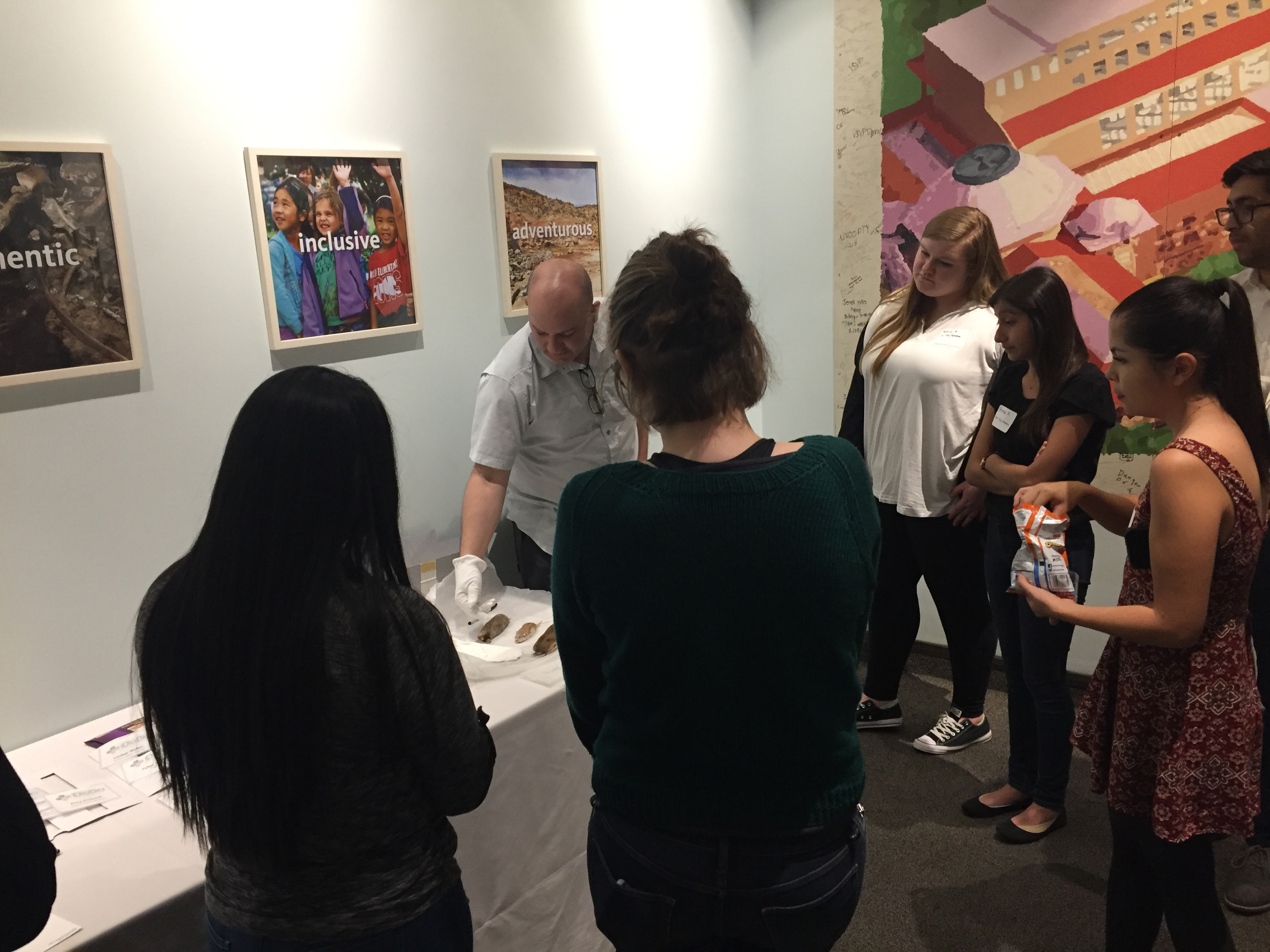
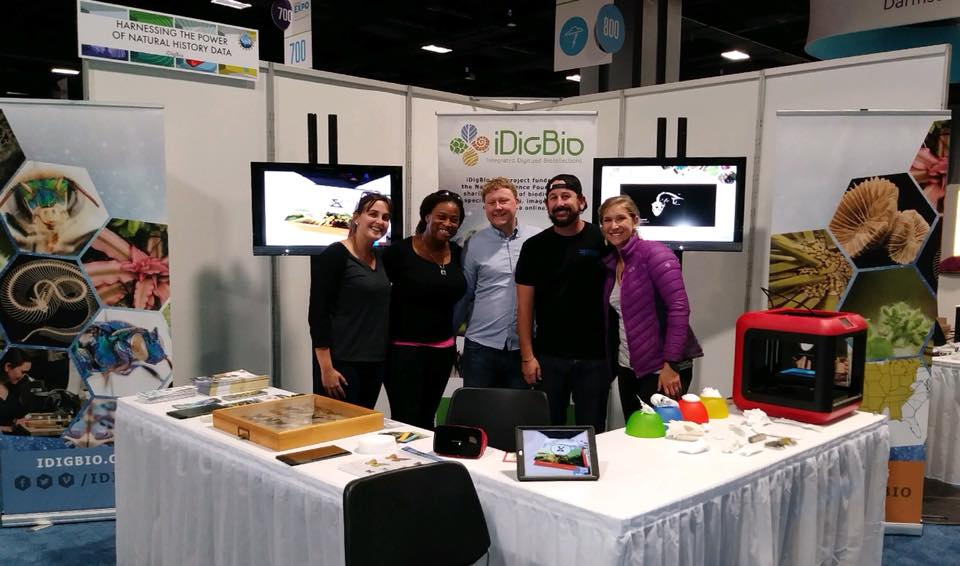
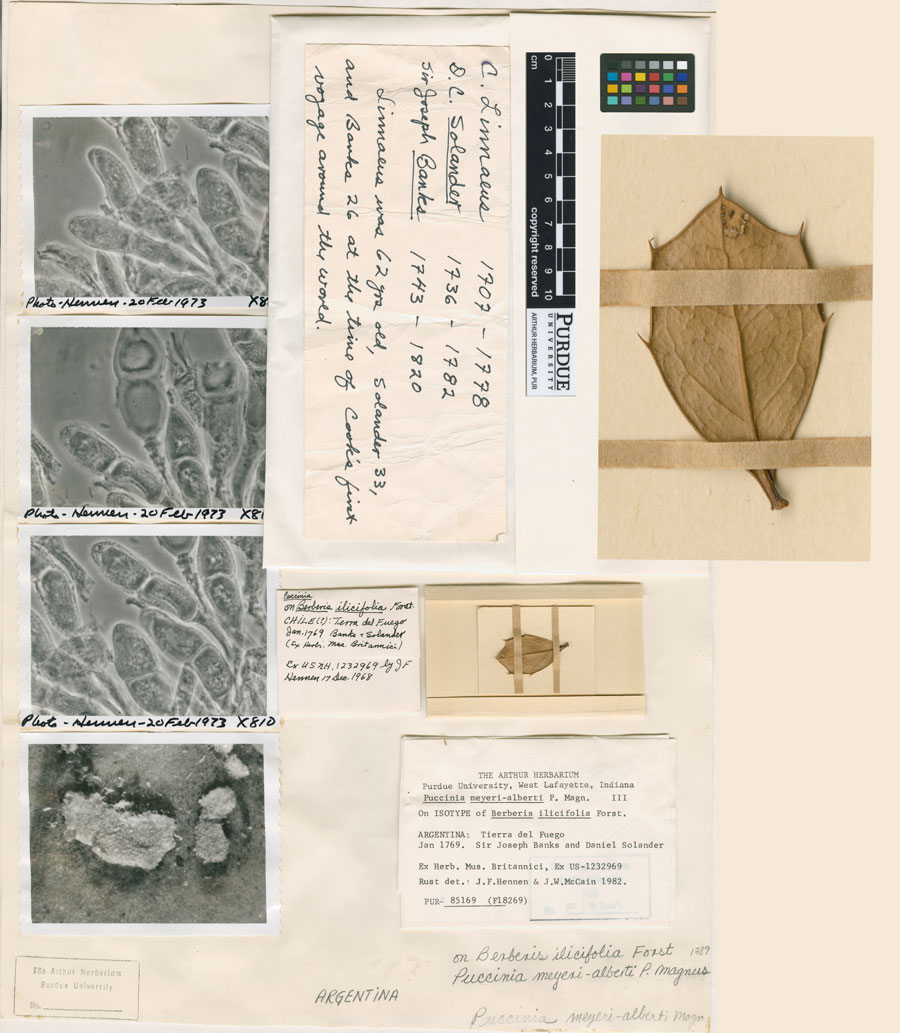 The oldest specimen in the
The oldest specimen in the 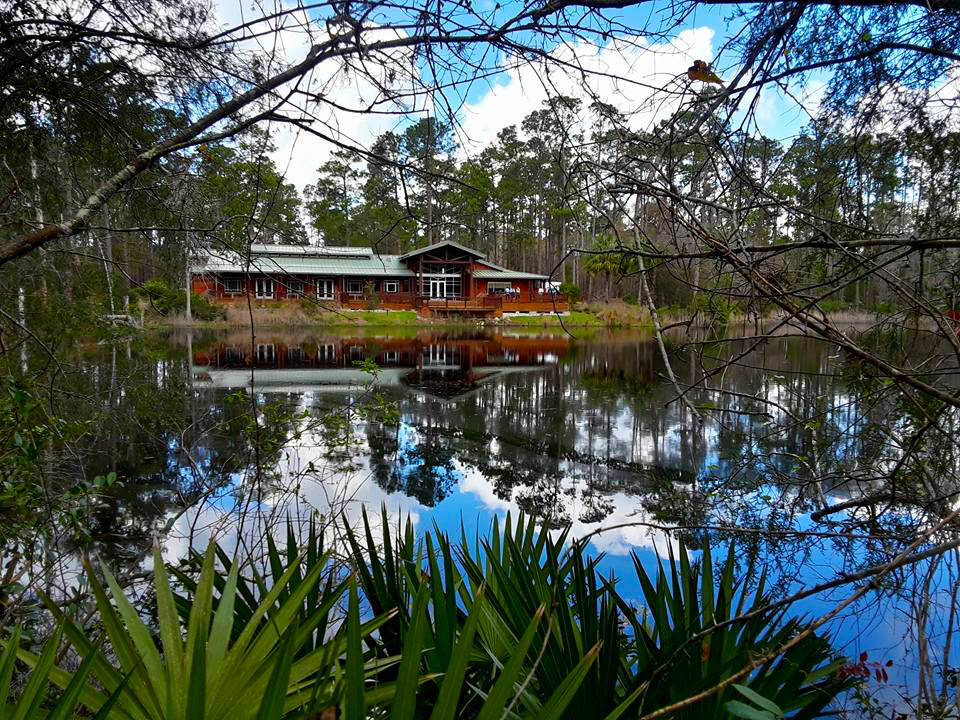
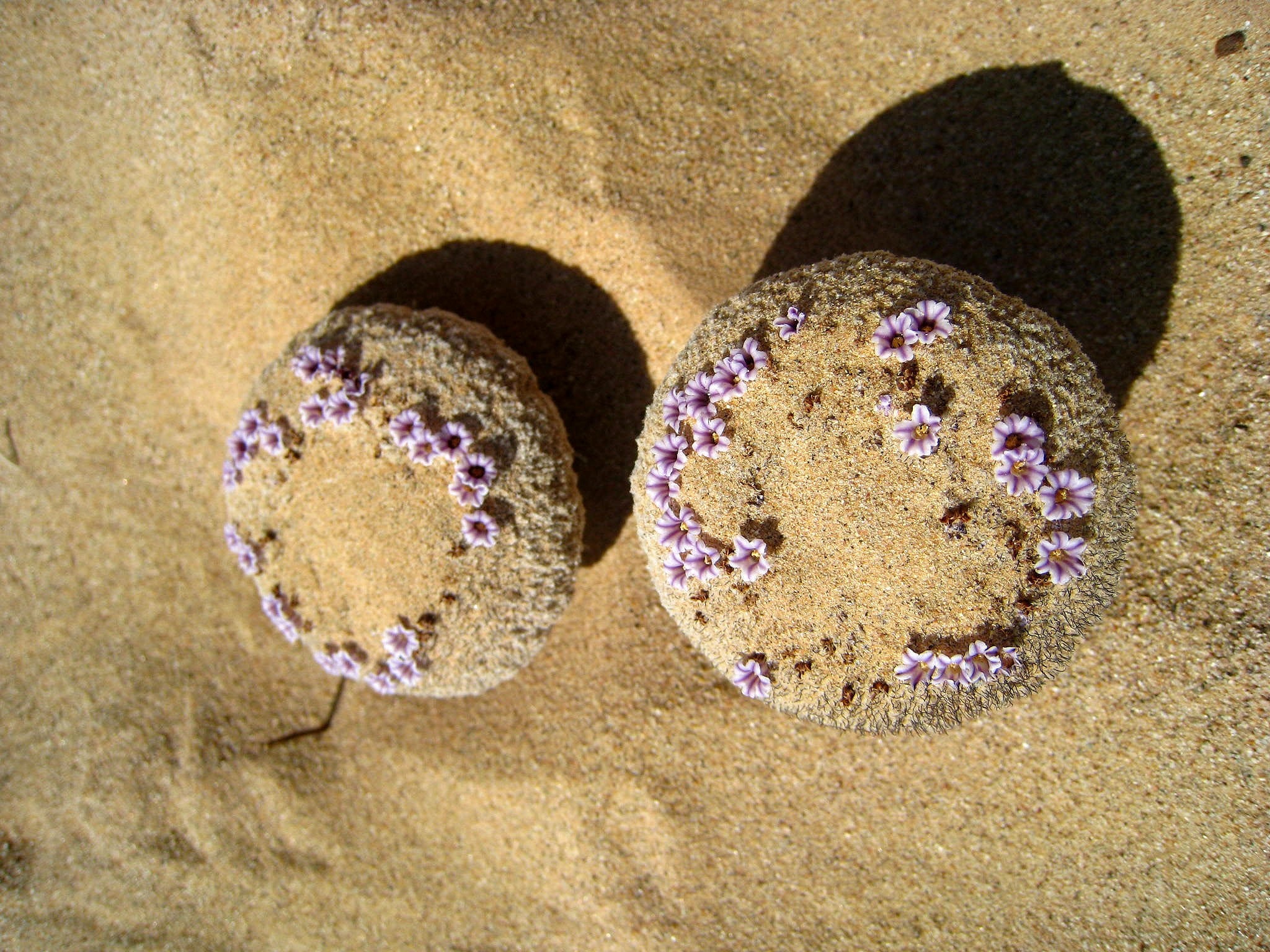
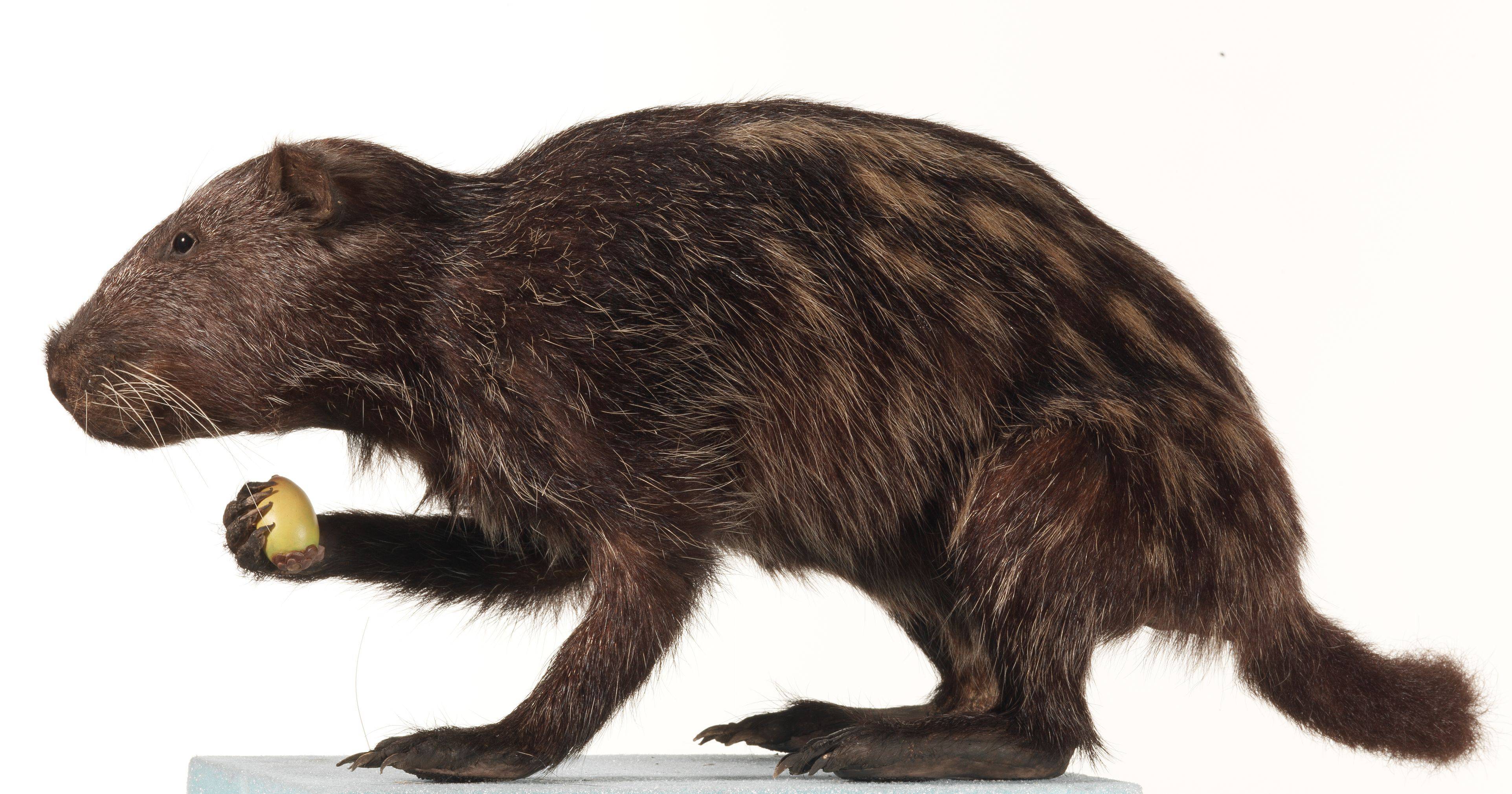
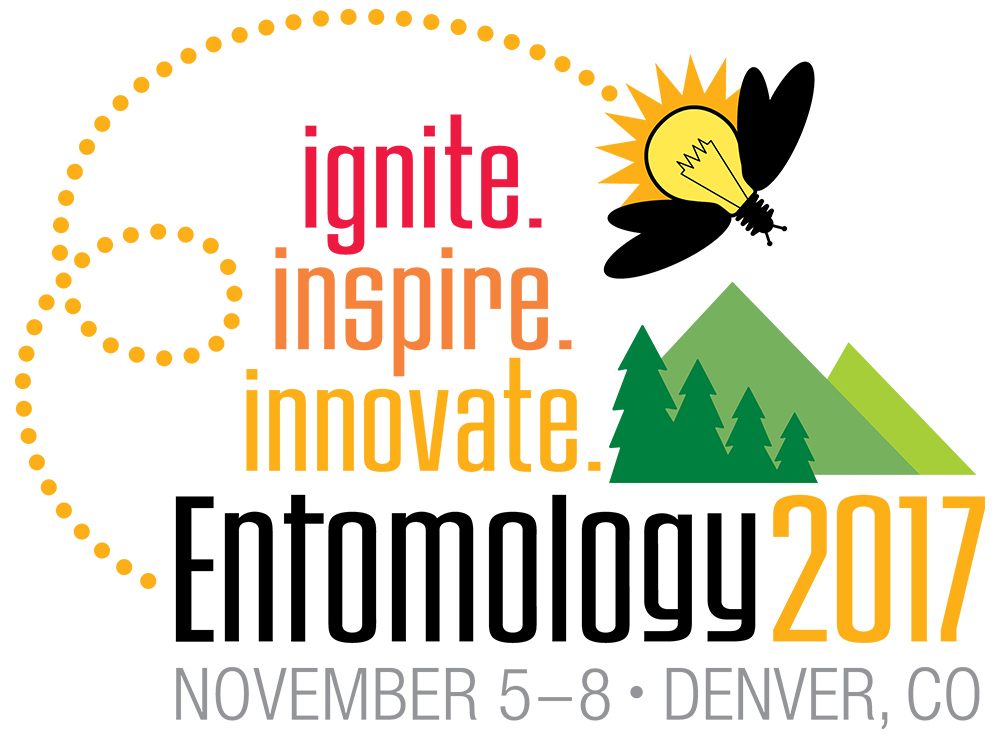
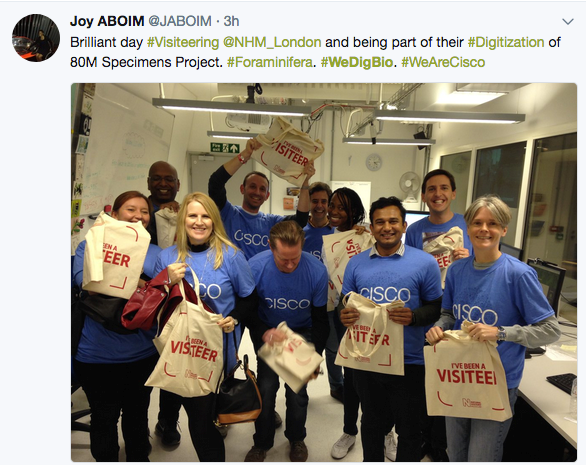
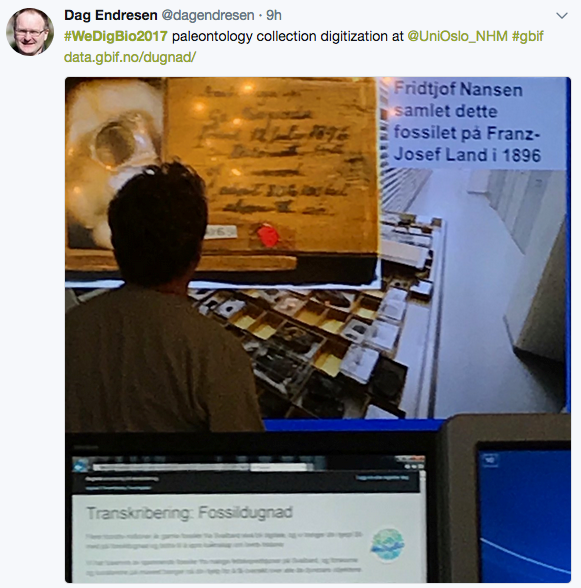
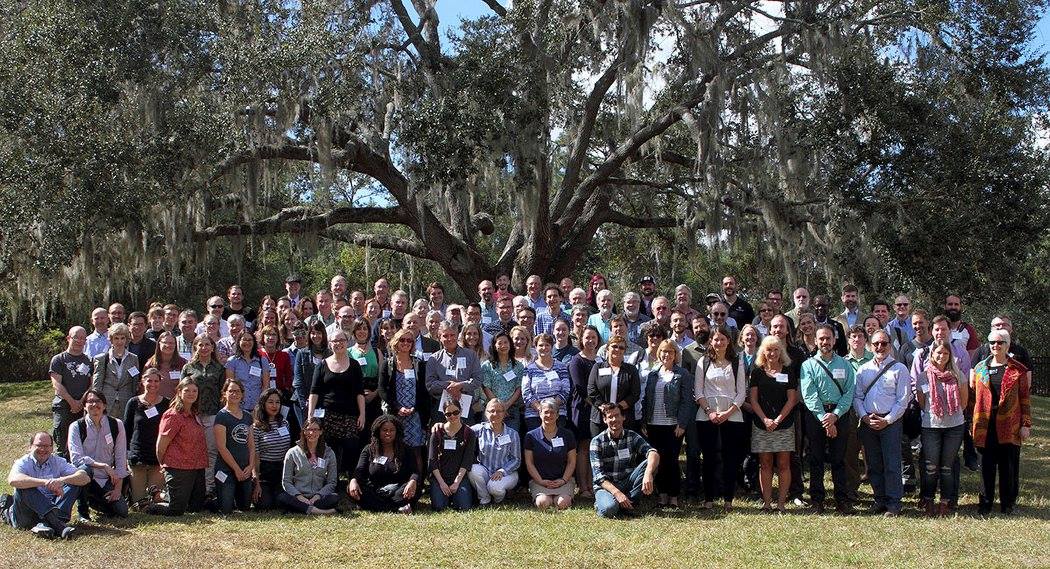
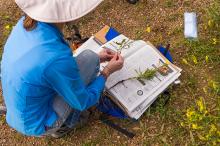
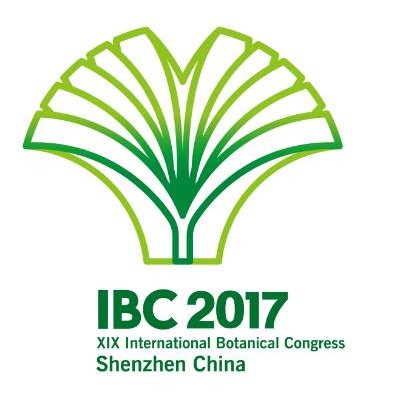
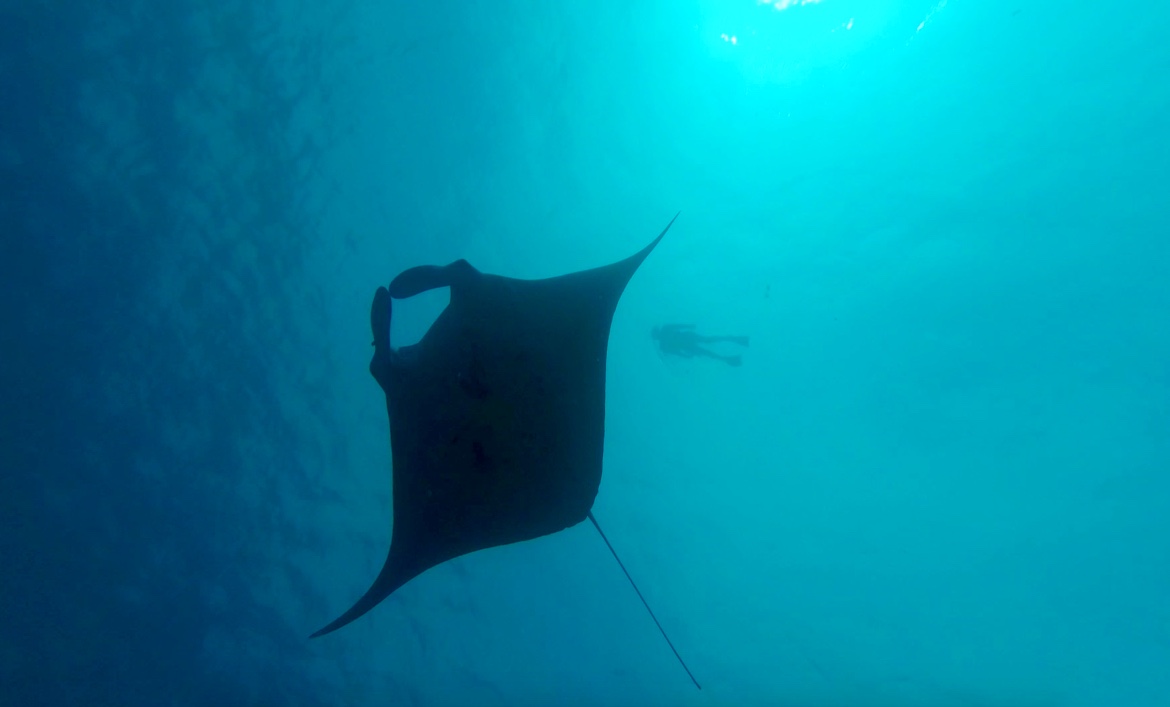
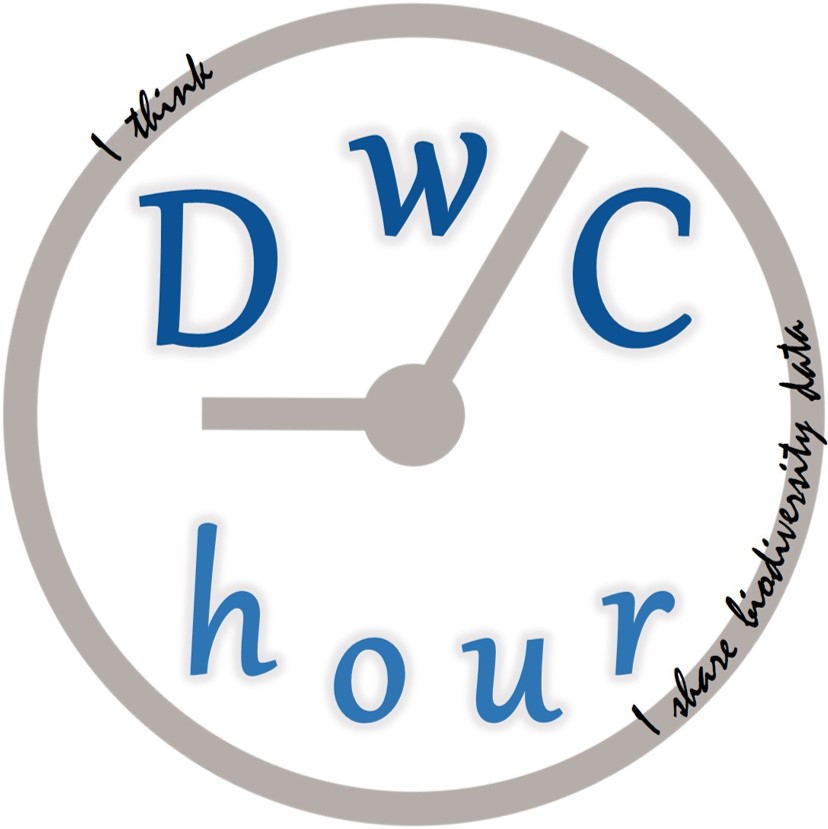 From the Darwin Core Hour Team.
From the Darwin Core Hour Team.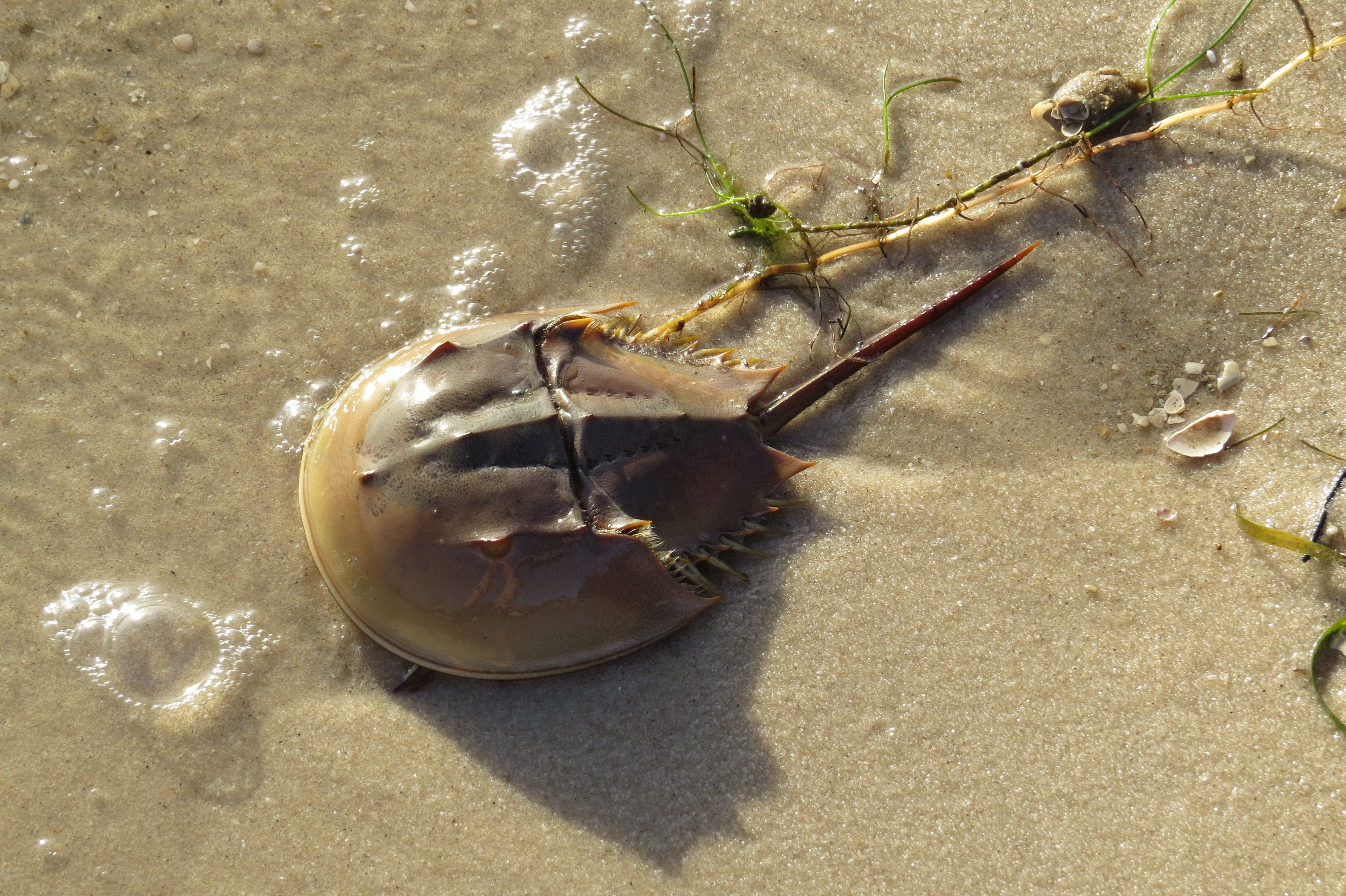
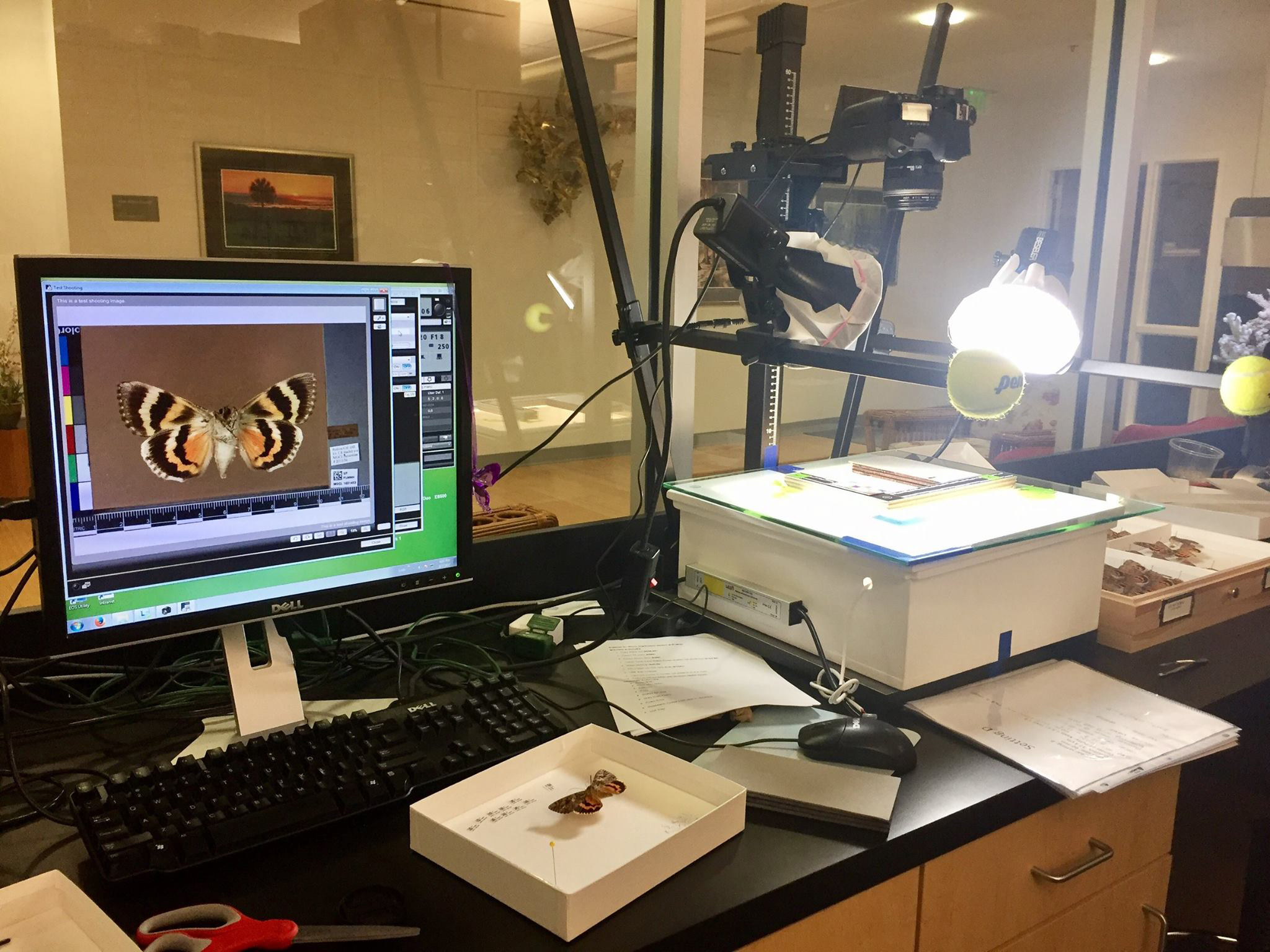
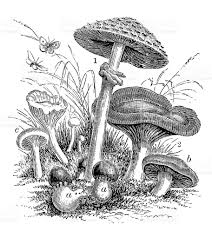
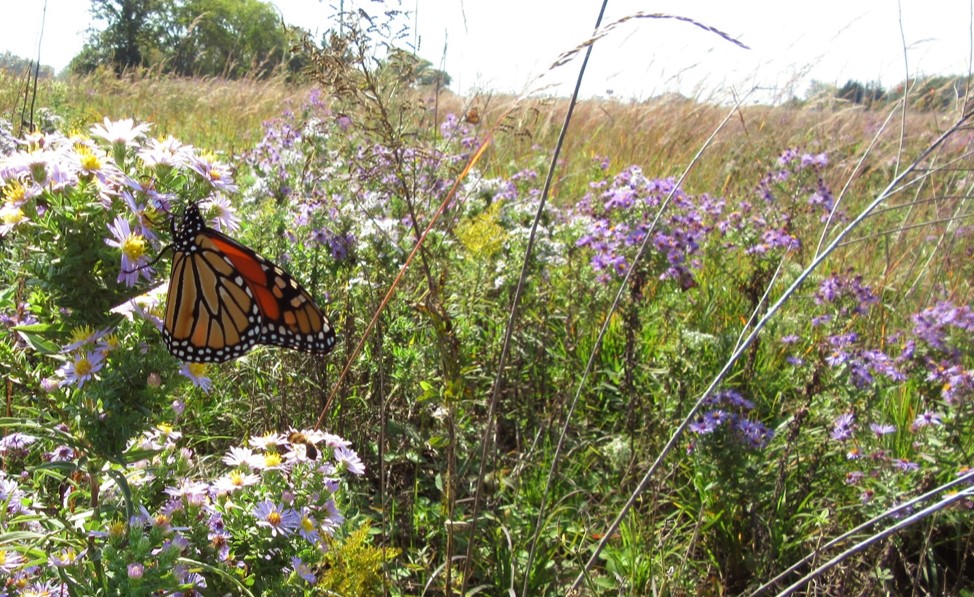
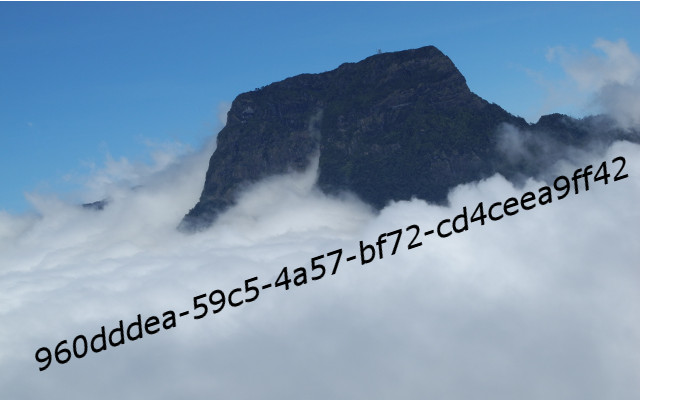
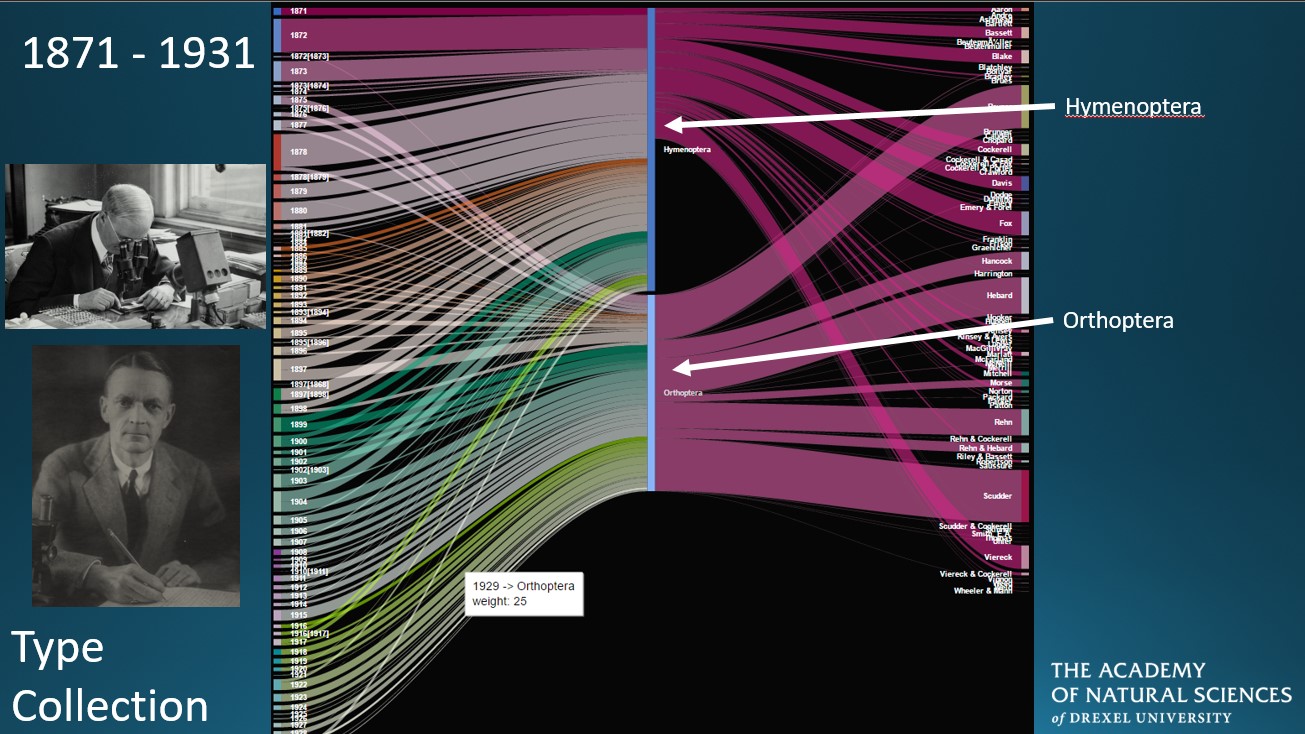
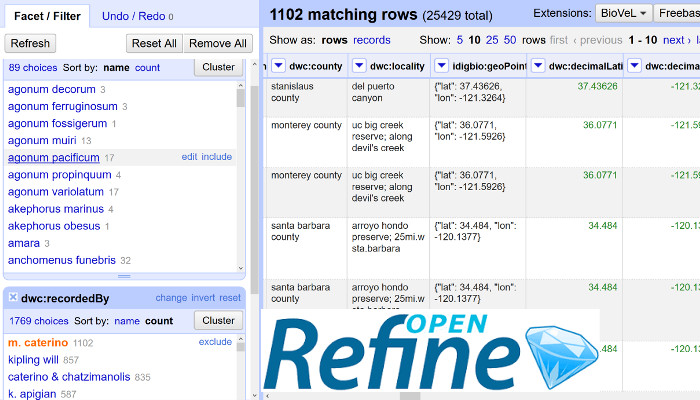
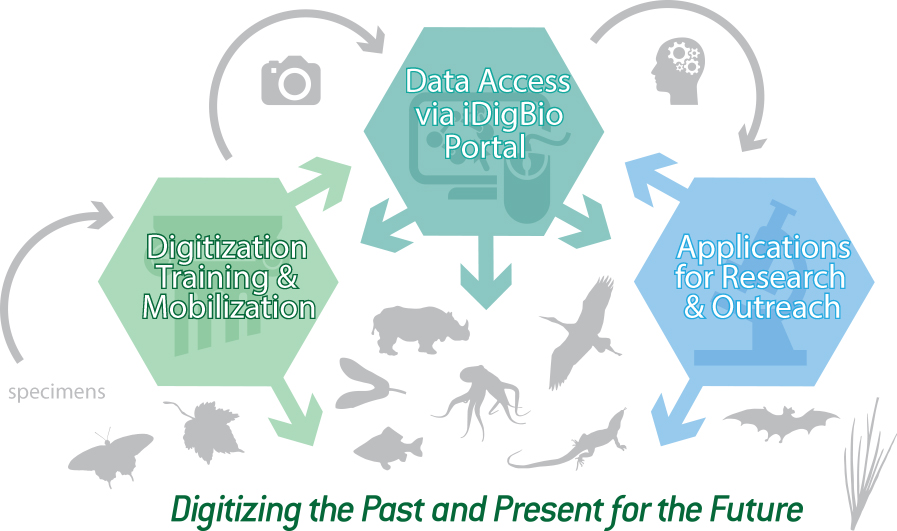
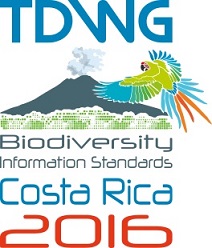 -- Contributed by
-- Contributed by 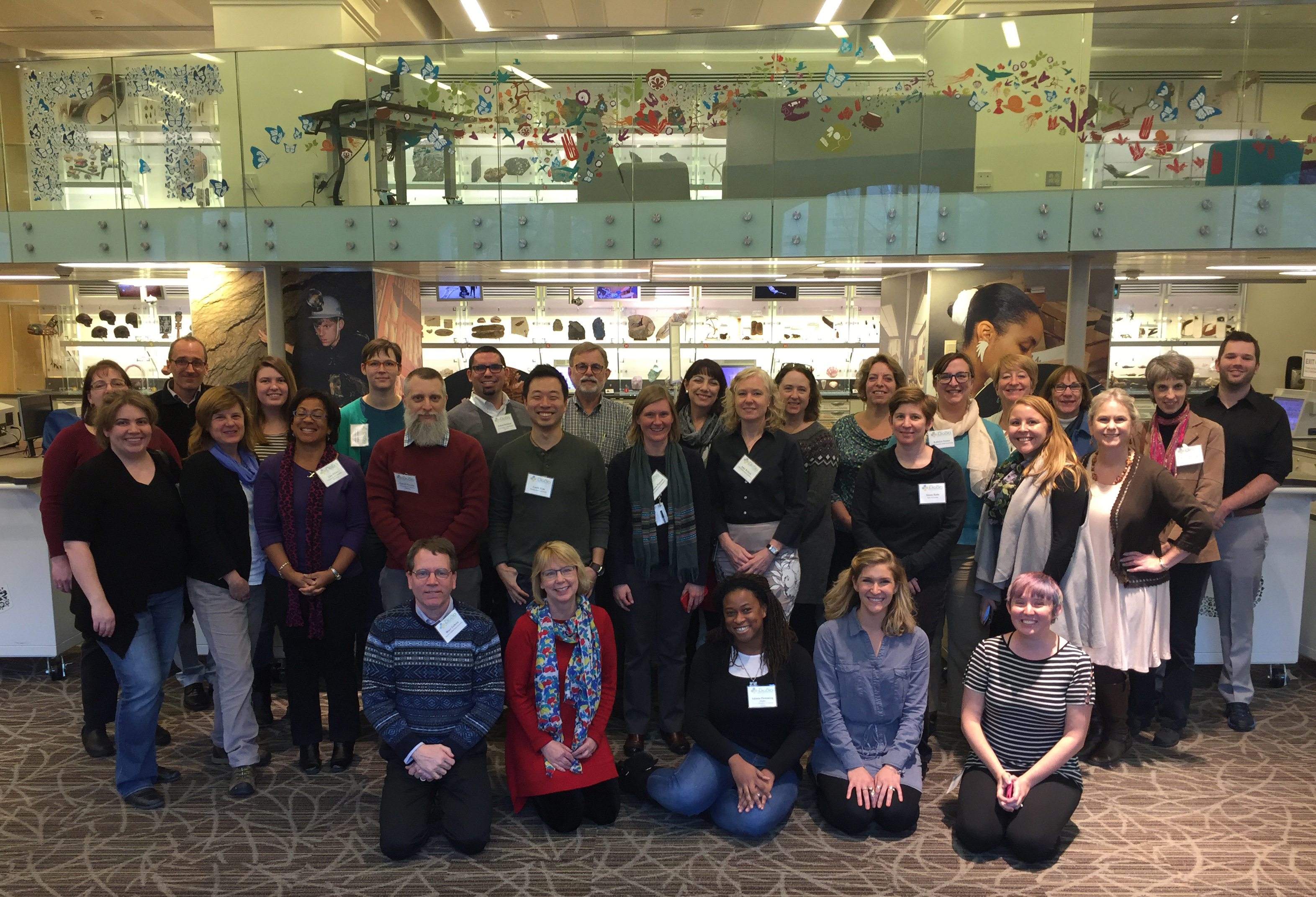
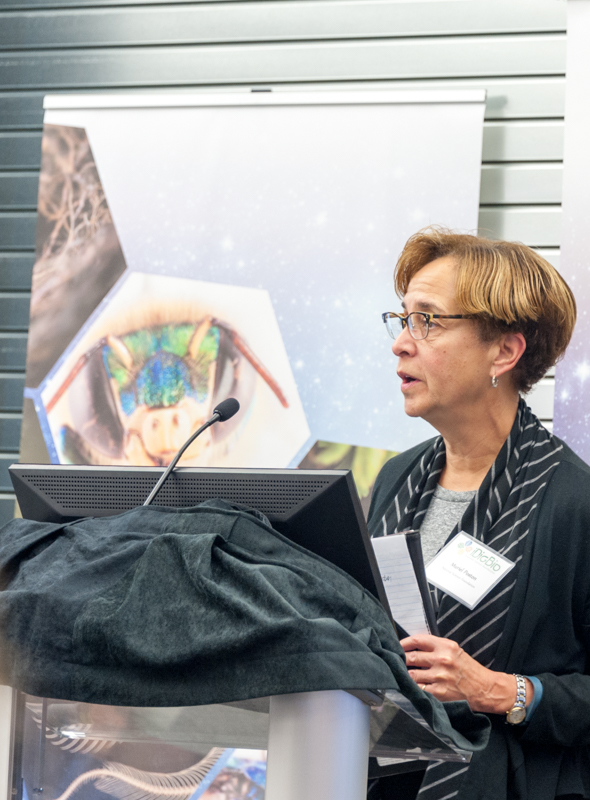 The Advancing Digitization of Biological Collections Annual Summit, hosted by iDigBio, took place in Chattanooga, Tennessee, at
The Advancing Digitization of Biological Collections Annual Summit, hosted by iDigBio, took place in Chattanooga, Tennessee, at 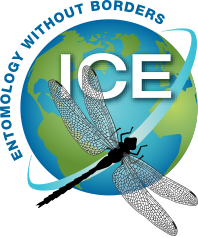 iDigBio had a blast at
iDigBio had a blast at 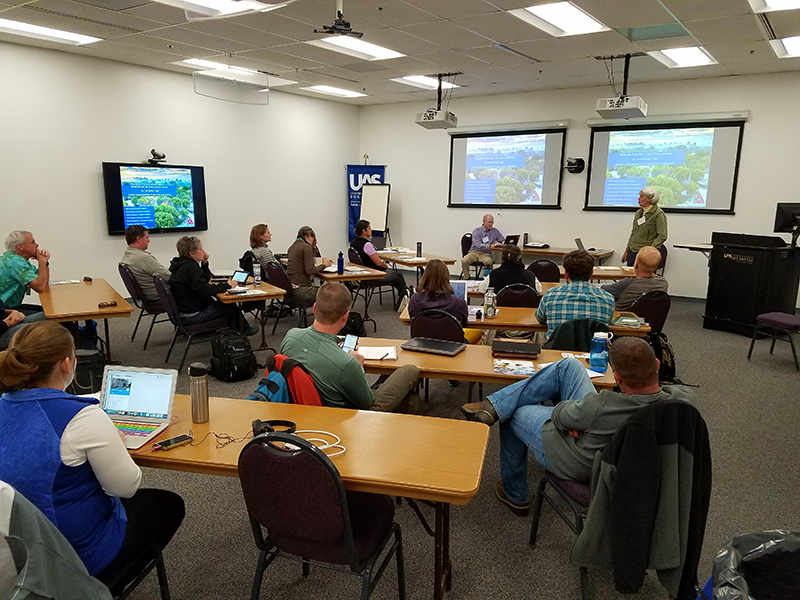


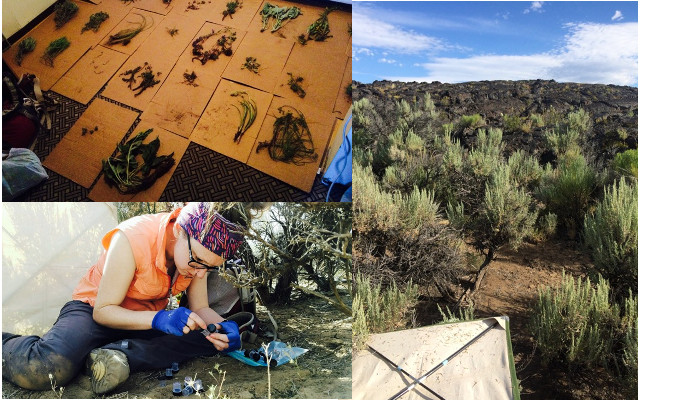
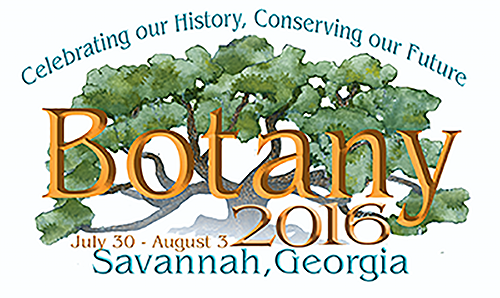 For the third straight year, iDigBio hosted a full-day workshop on research methods using digitized herbarium specimen data at the annual Botany conference (
For the third straight year, iDigBio hosted a full-day workshop on research methods using digitized herbarium specimen data at the annual Botany conference (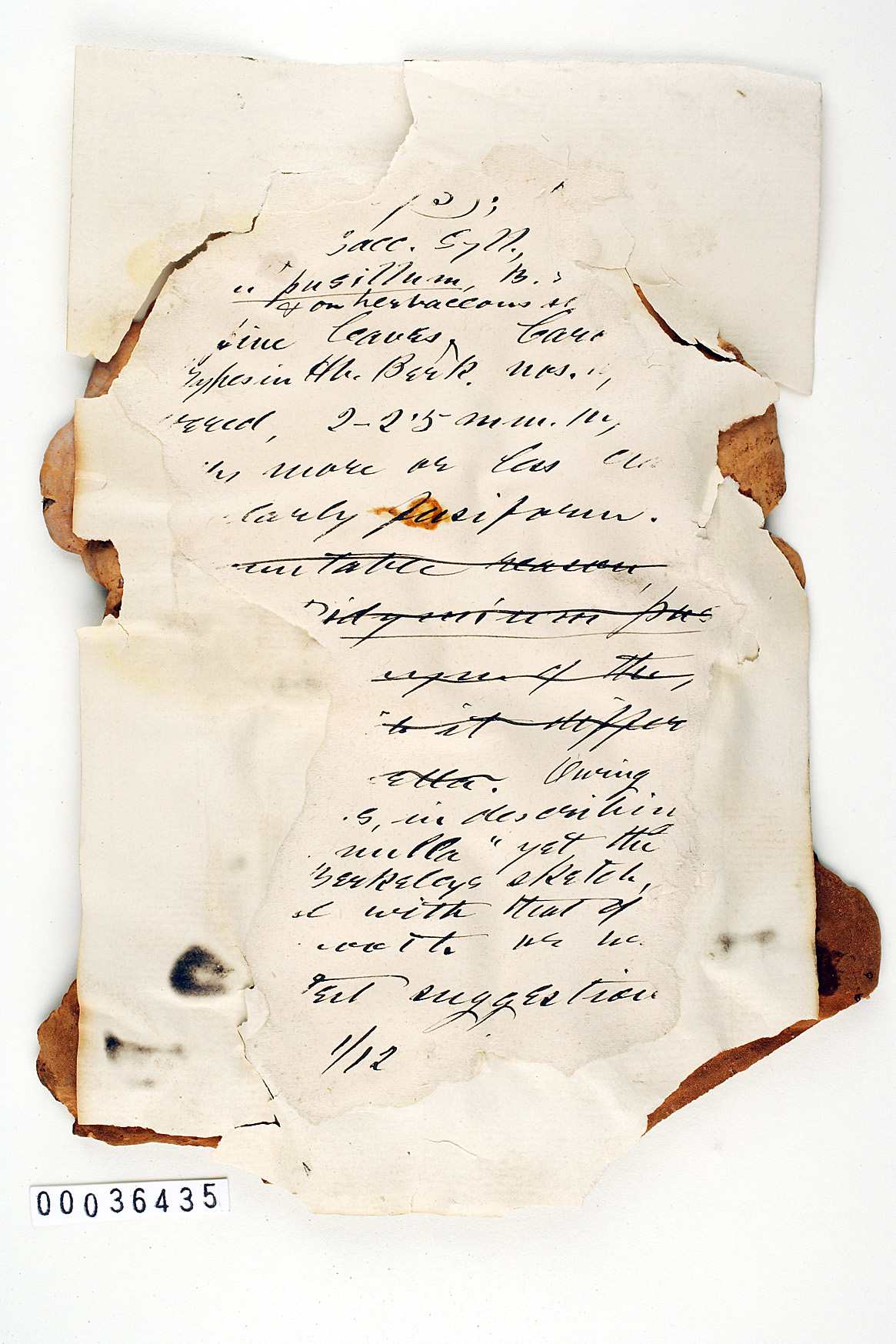 Specimens collected in Nicaragua by American mycologist Charles Leonard Smith in the late 19th century were thought to have been lost for over 100 years.Through
Specimens collected in Nicaragua by American mycologist Charles Leonard Smith in the late 19th century were thought to have been lost for over 100 years.Through 
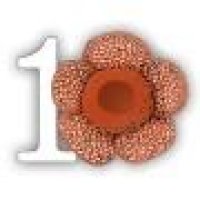 Who could resist a conference where the mascot is a giant bright red Rafflesia flower, where bagpipes serenade the participants, and kilt-wearing and traditional folk dancing are encouraged, along with stimulating science? The
Who could resist a conference where the mascot is a giant bright red Rafflesia flower, where bagpipes serenade the participants, and kilt-wearing and traditional folk dancing are encouraged, along with stimulating science? The  The
The 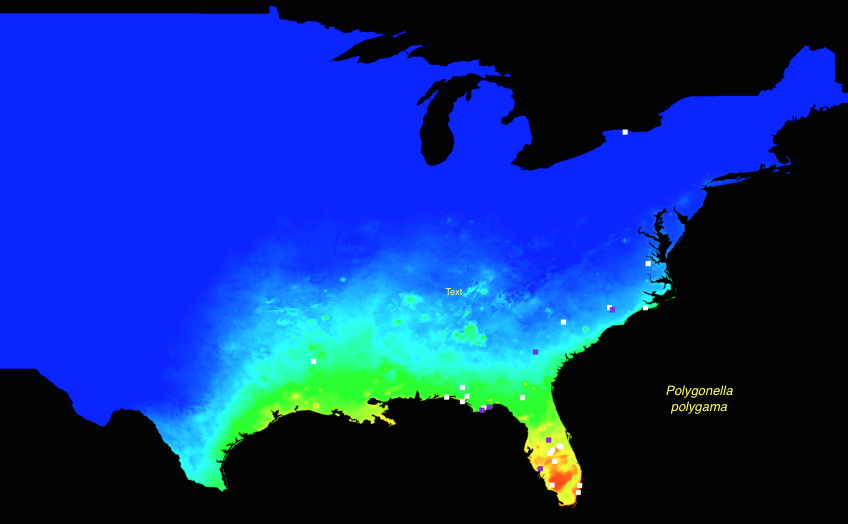
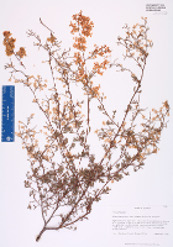
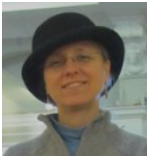
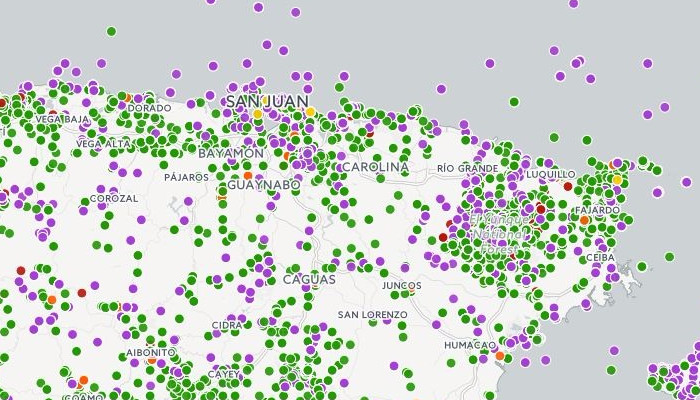
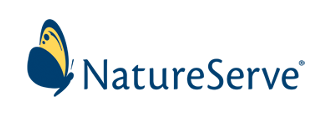 Conservation. Endangered and rare species. Species distribution maps. Habitat and landscape integrity analysis. Observational data.
Conservation. Endangered and rare species. Species distribution maps. Habitat and landscape integrity analysis. Observational data.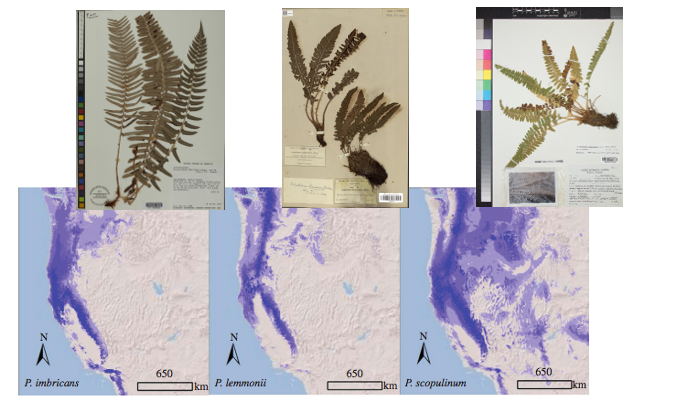
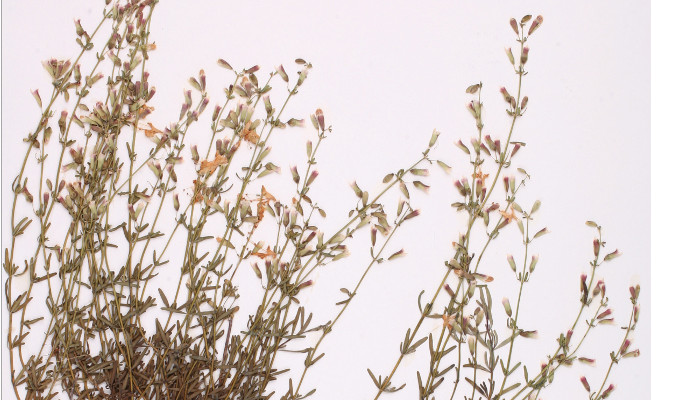
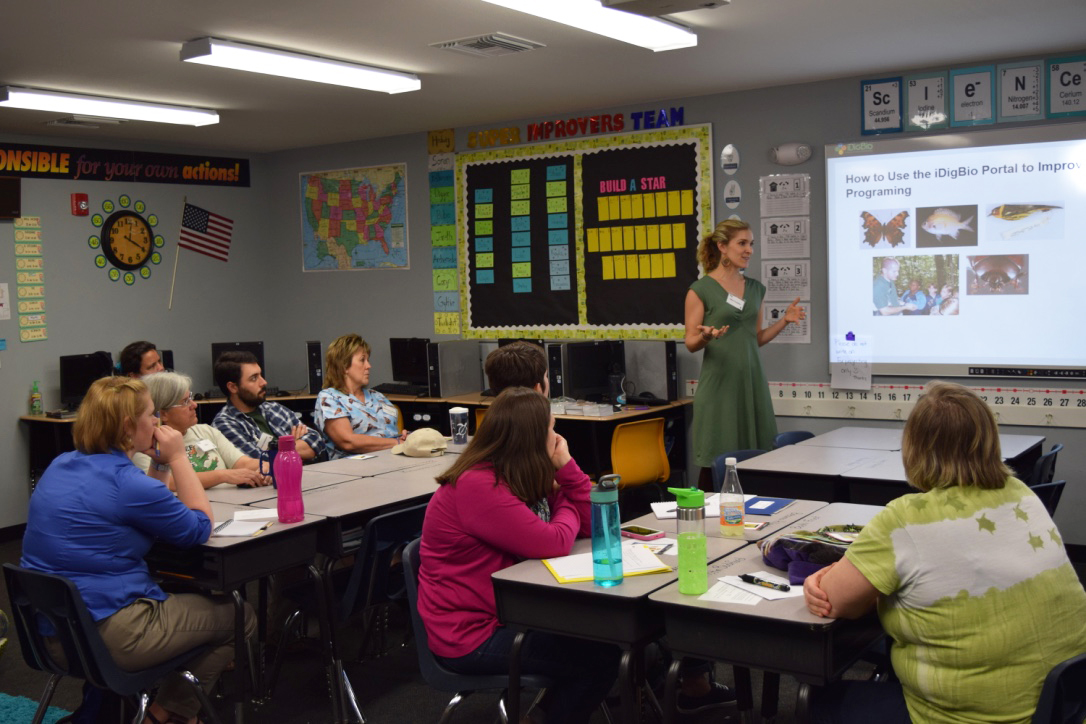 iDigBio's Jillian Goodwin and Molly Phillips traveled to St. Marks, Florida, to participate in the
iDigBio's Jillian Goodwin and Molly Phillips traveled to St. Marks, Florida, to participate in the 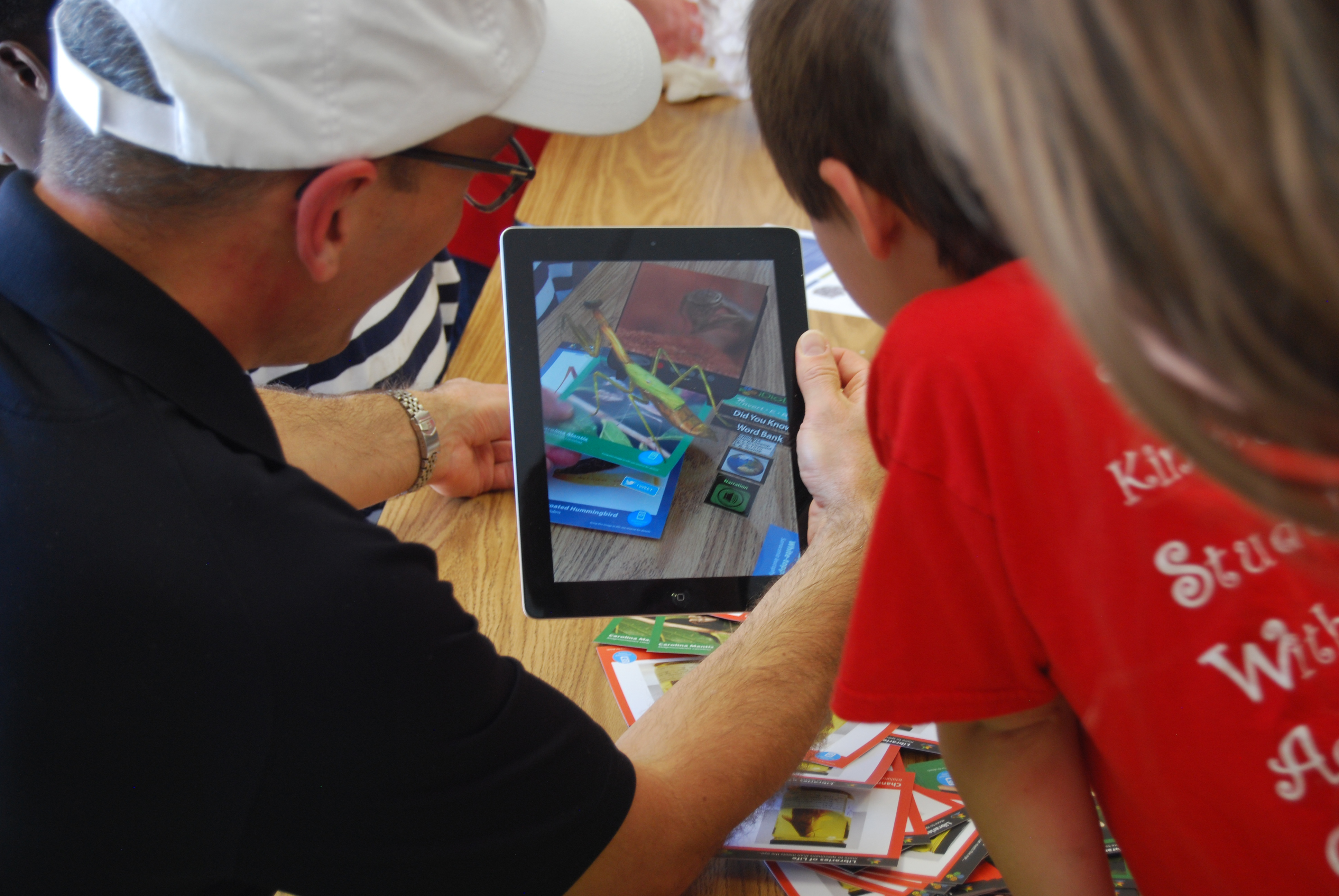
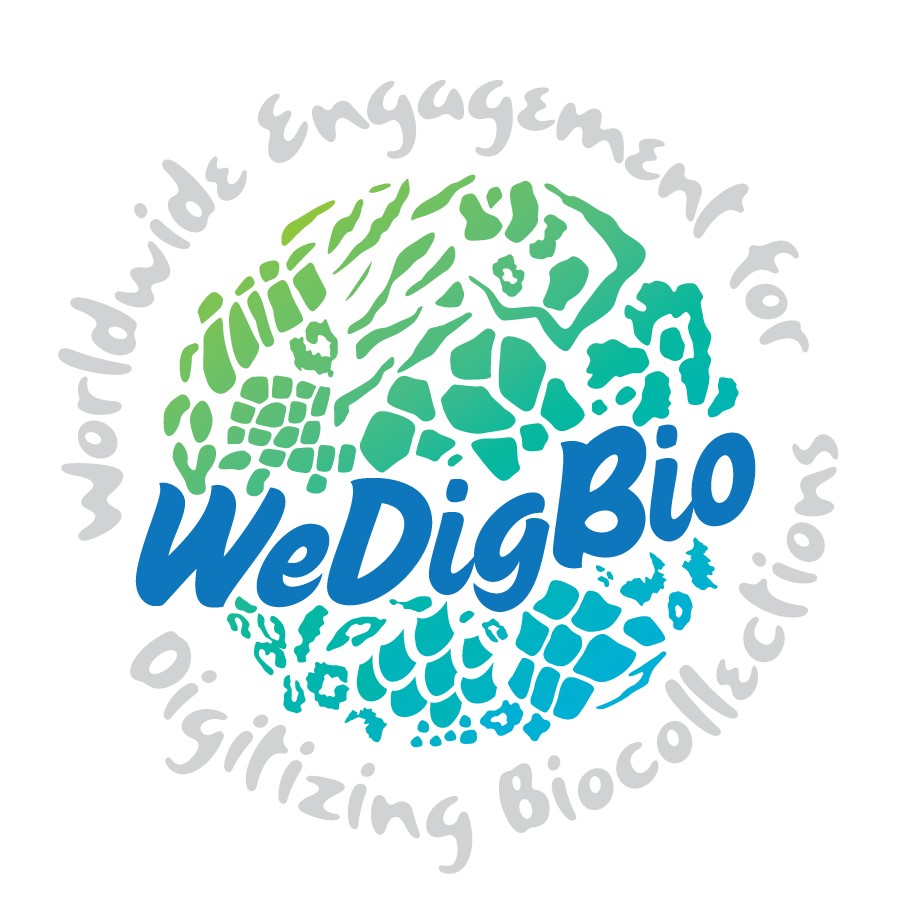 During its inaugural year, the Worldwide Engagement for Digitizing Biocollections Event,
During its inaugural year, the Worldwide Engagement for Digitizing Biocollections Event, 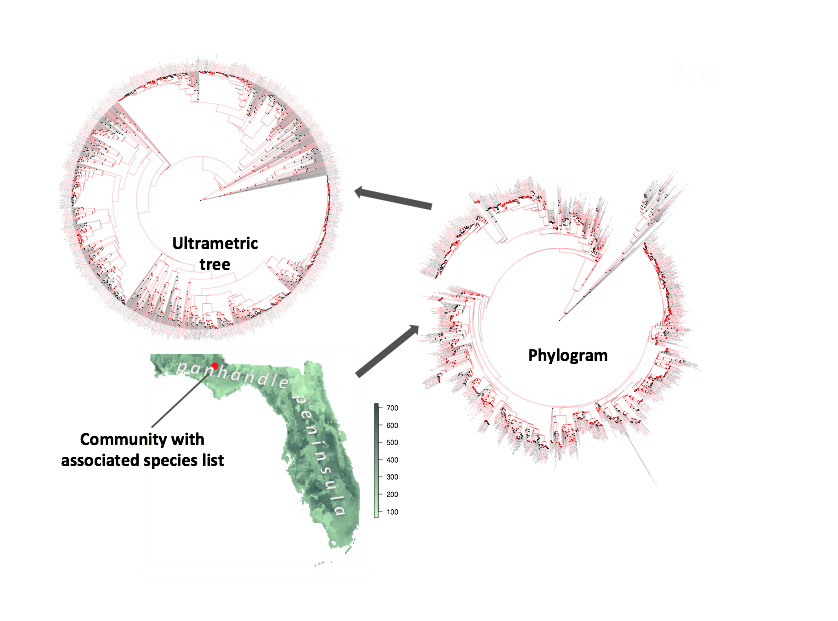
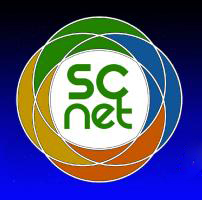
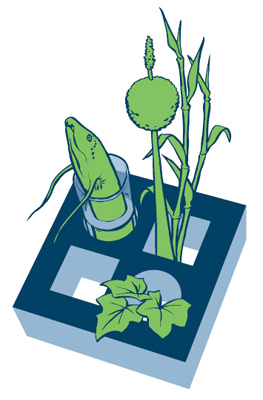 Gehen Sie zu der SPNHC 2016 Konferenz? Are you going to the Society for Preservation of Natural History Collection's (SPNHC) 2016 Conference? It's in Berlin this year, from June 20 - 25, 2016.
Gehen Sie zu der SPNHC 2016 Konferenz? Are you going to the Society for Preservation of Natural History Collection's (SPNHC) 2016 Conference? It's in Berlin this year, from June 20 - 25, 2016.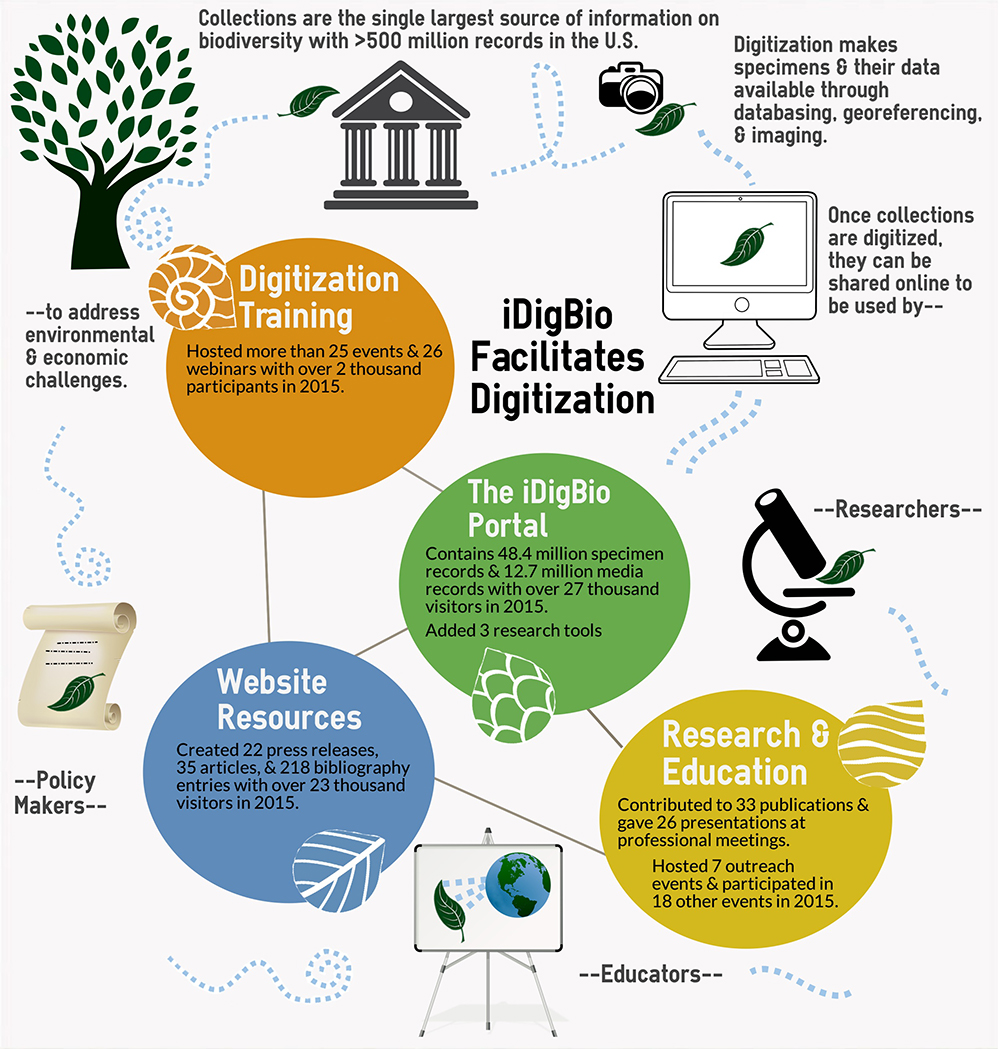
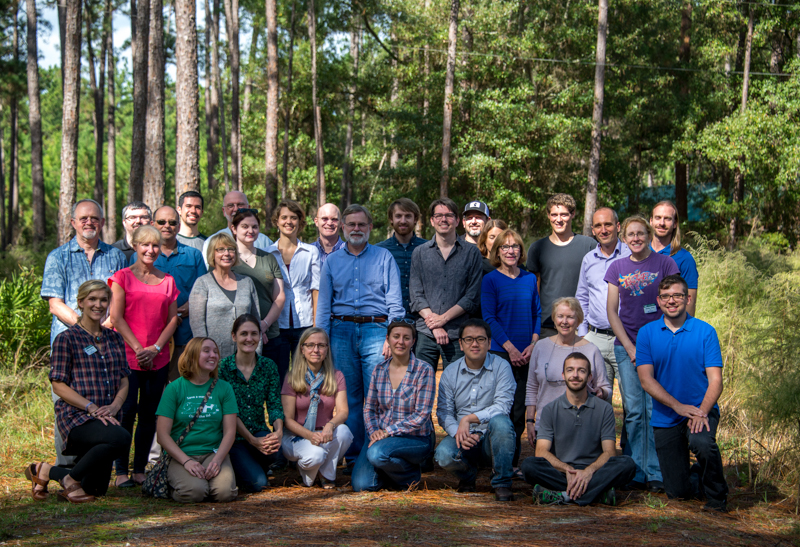

 venues, from middle-school and undergraduate science classrooms to county libraries to museums, universities, and botanical gardens, such as the Smithsonian's National Museum of Natural Histor
venues, from middle-school and undergraduate science classrooms to county libraries to museums, universities, and botanical gardens, such as the Smithsonian's National Museum of Natural Histor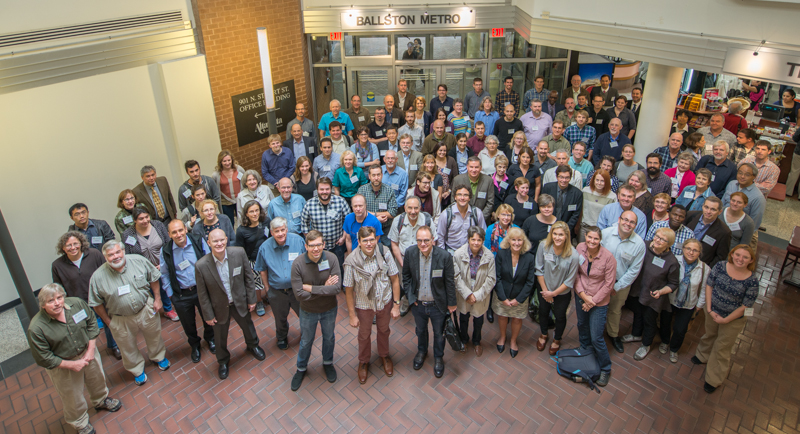
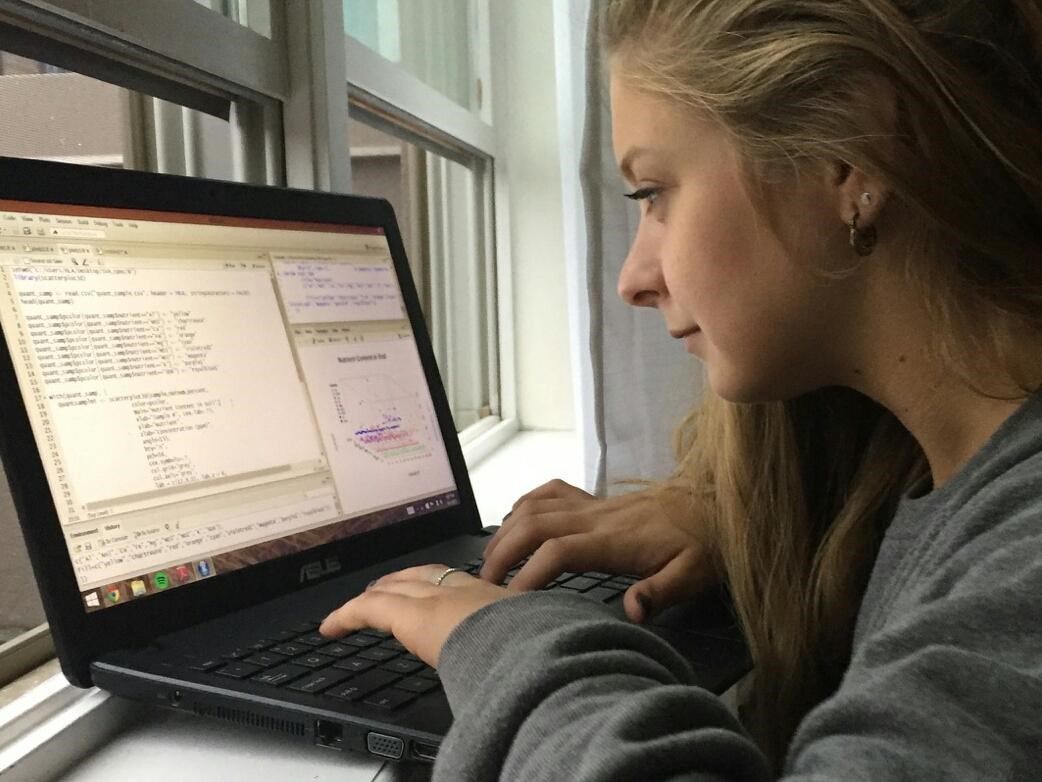 Katja Seltmann (TTD-TCN), Deb Paul, Alex Thompson, and Matt Collins Eds.
Katja Seltmann (TTD-TCN), Deb Paul, Alex Thompson, and Matt Collins Eds.
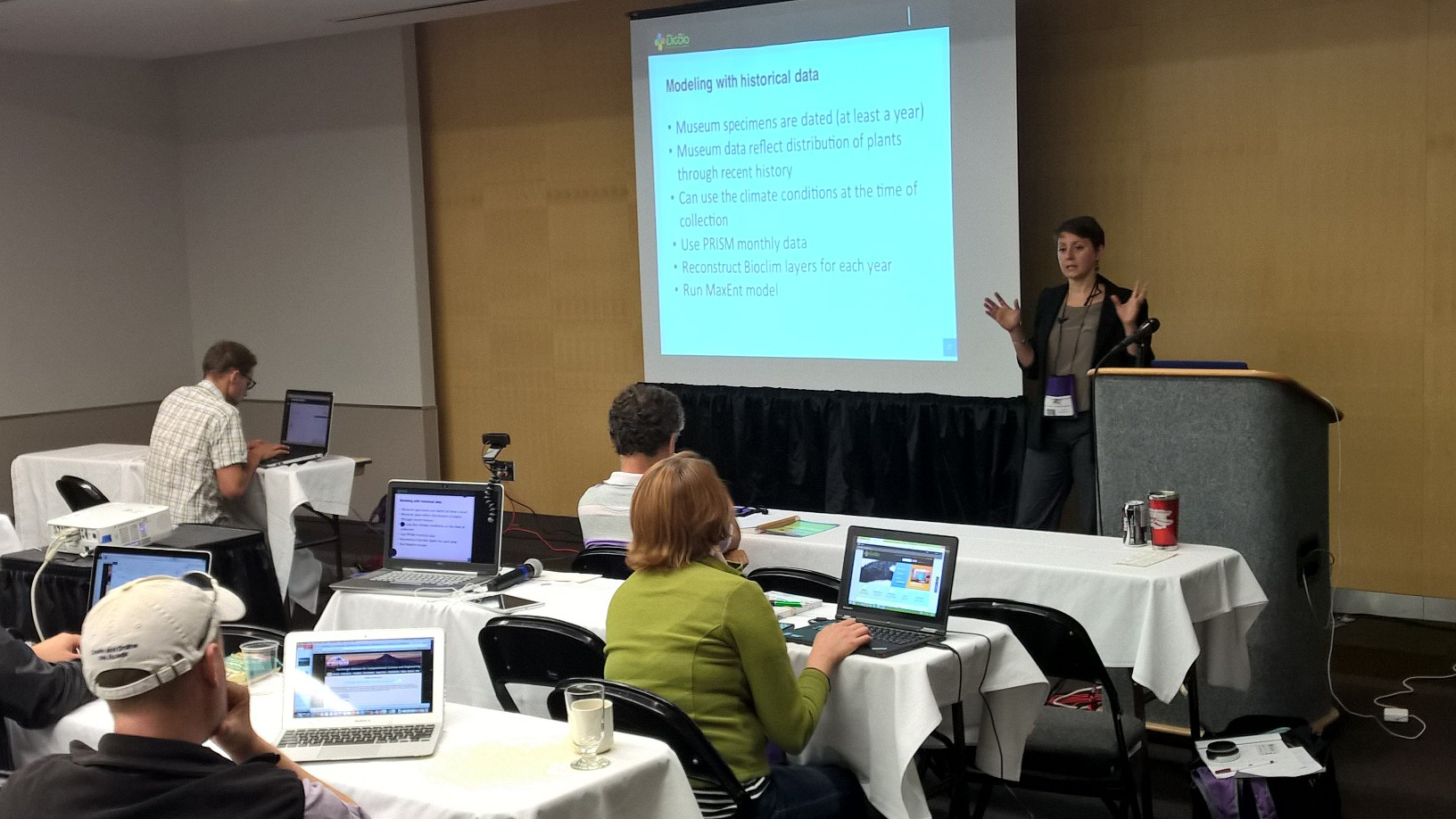 On July 26, 2015, iDigBio hosted an all-day
On July 26, 2015, iDigBio hosted an all-day 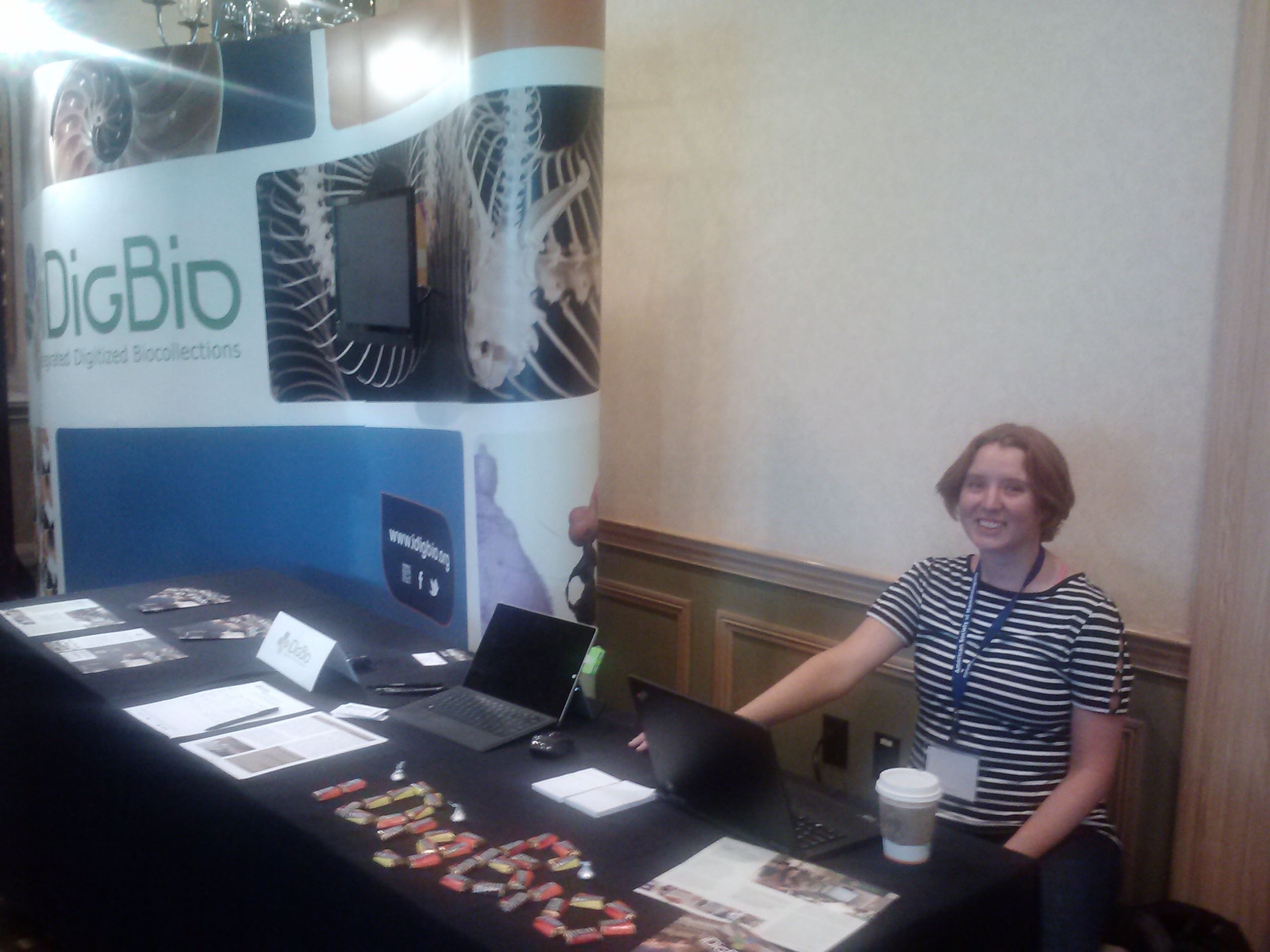 eb Paul, Cathy Bester, and Molly Phillips) had a fun and productive time staffing the iDigBio exhibit at the 95th Annual meeting of the American Society of Mammalogists Conference in Jacksonville, Florida, June 12-15, 2015. We set up the 10’ exhibit with the TV displaying the
eb Paul, Cathy Bester, and Molly Phillips) had a fun and productive time staffing the iDigBio exhibit at the 95th Annual meeting of the American Society of Mammalogists Conference in Jacksonville, Florida, June 12-15, 2015. We set up the 10’ exhibit with the TV displaying the 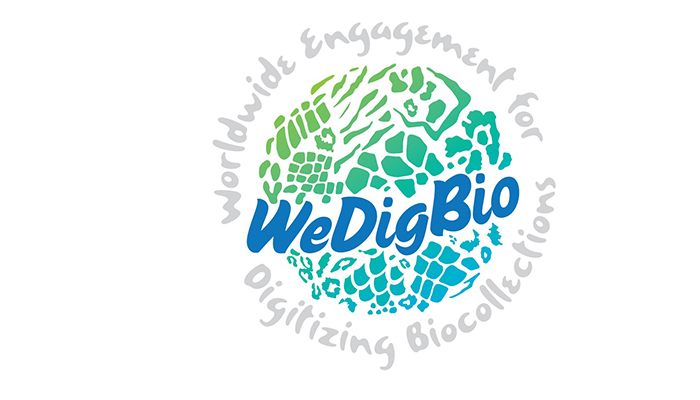
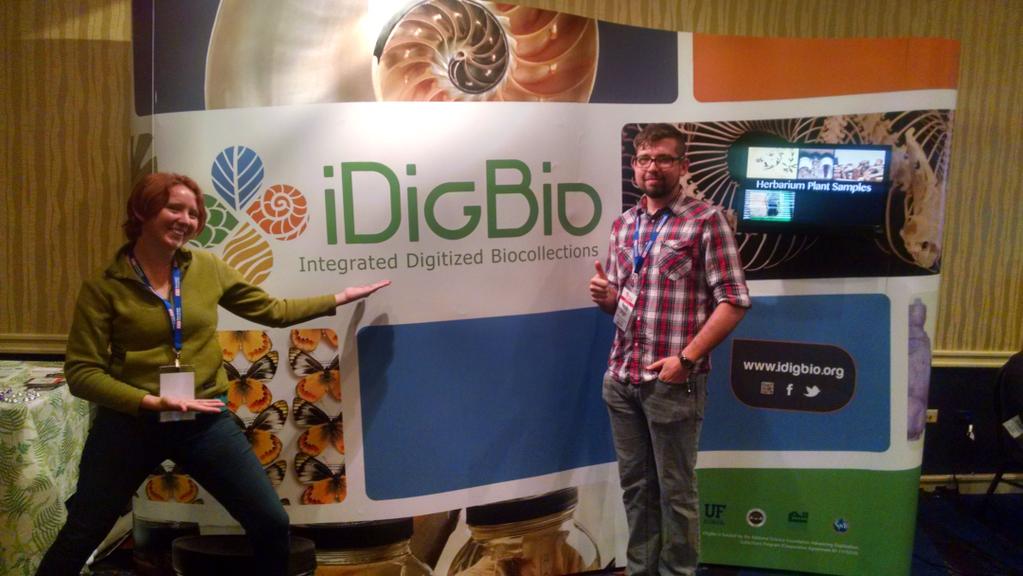 Accessible Through New and Innovative Approaches and Partnerships”.
Accessible Through New and Innovative Approaches and Partnerships”.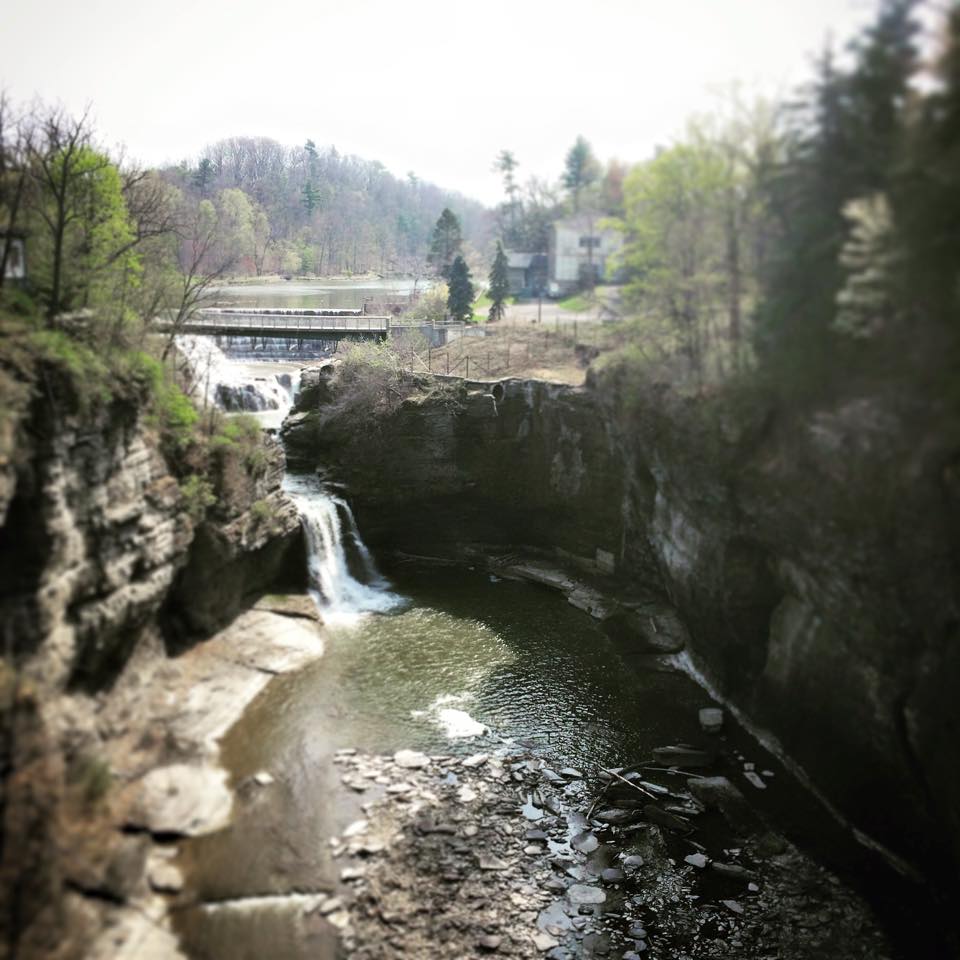

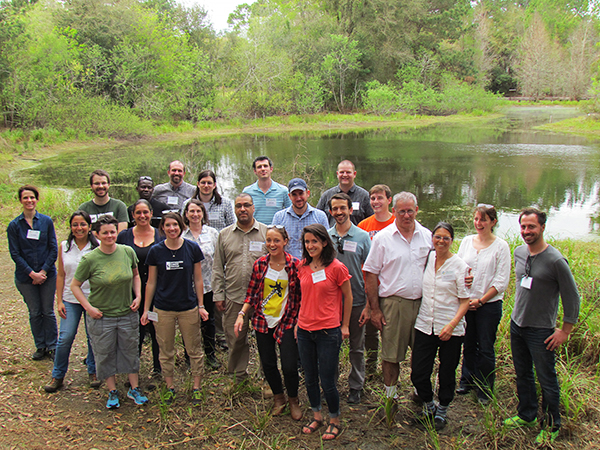
 -Guest blog enthusiastically provided by course participant
-Guest blog enthusiastically provided by course participant 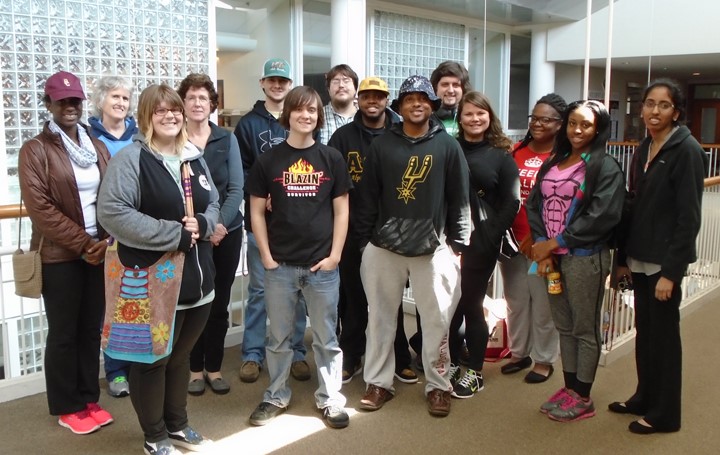
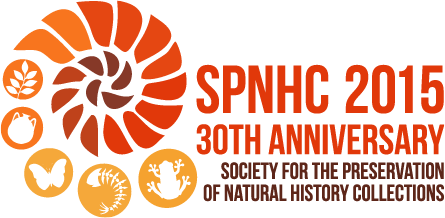
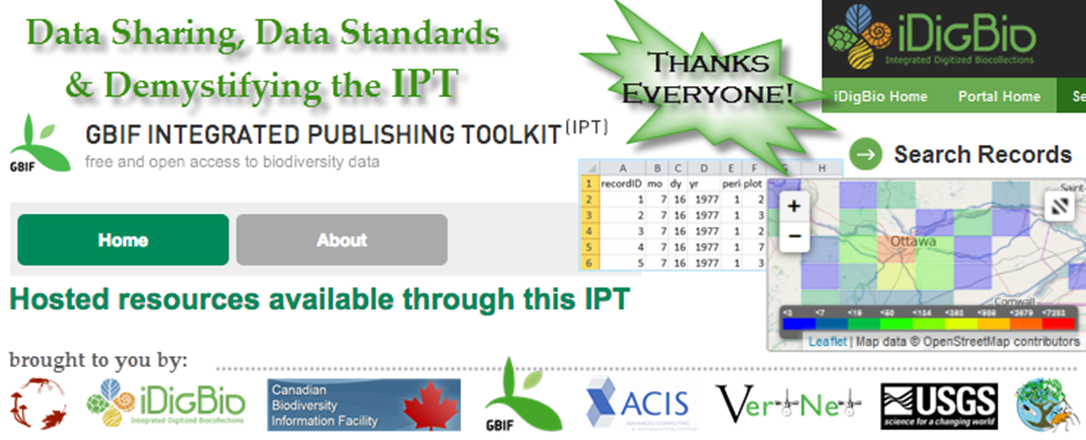
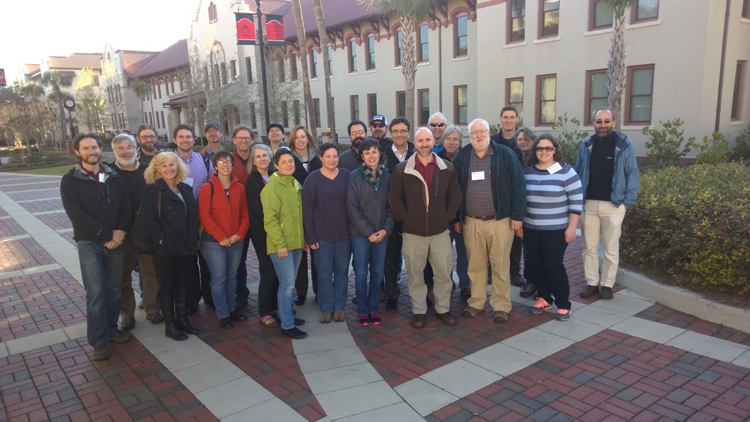
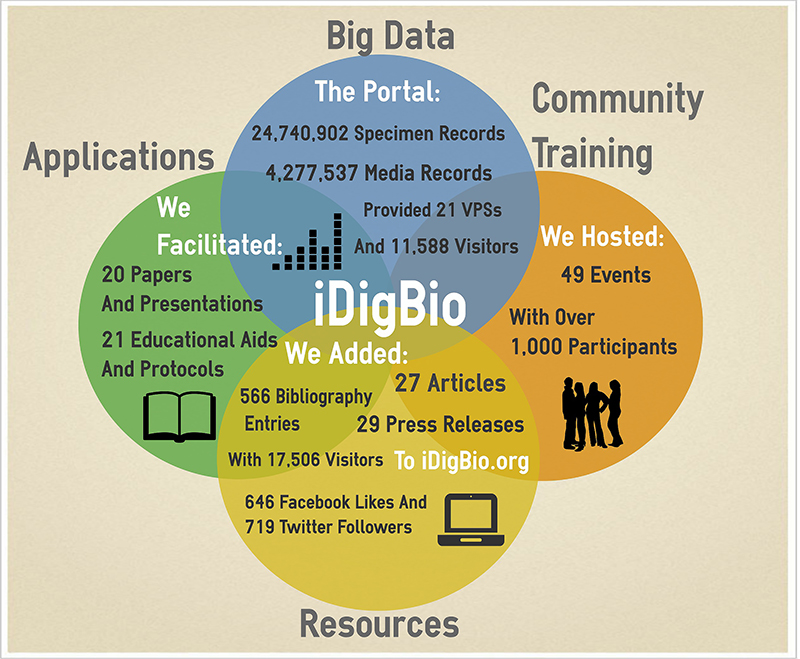
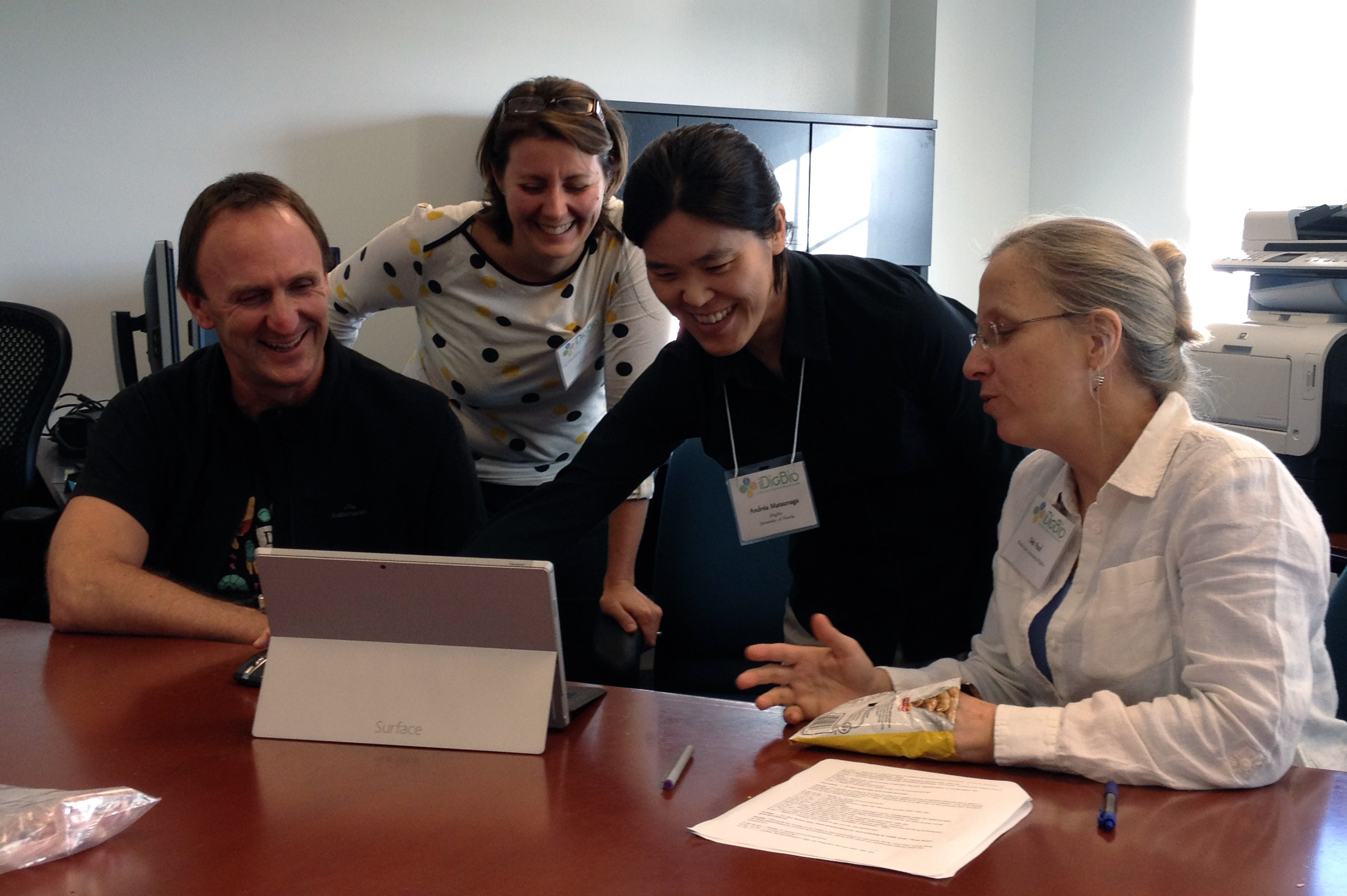
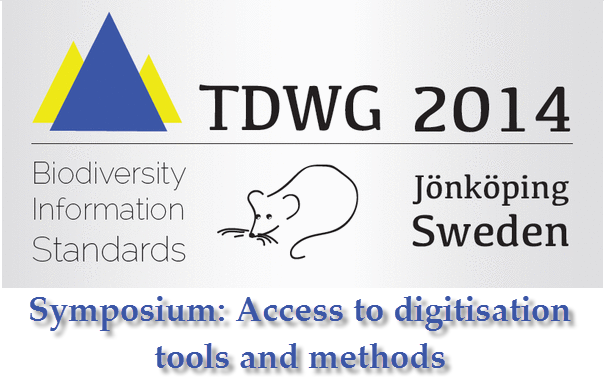
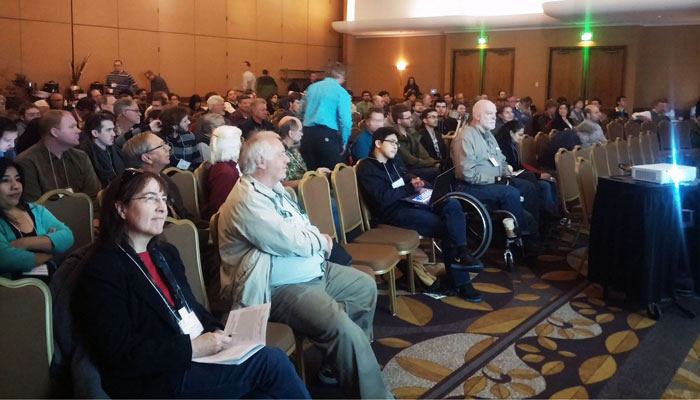 Nearly 200 collections professionals attended this year’s
Nearly 200 collections professionals attended this year’s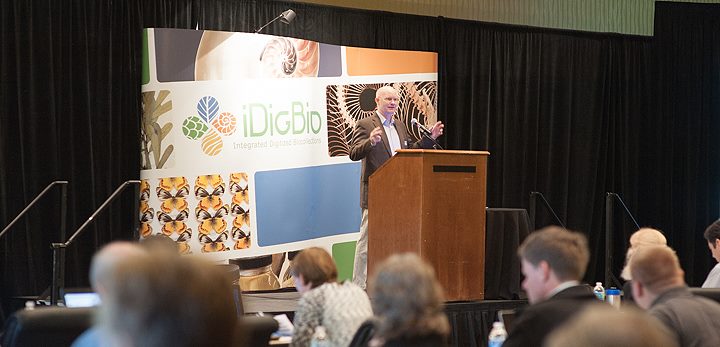
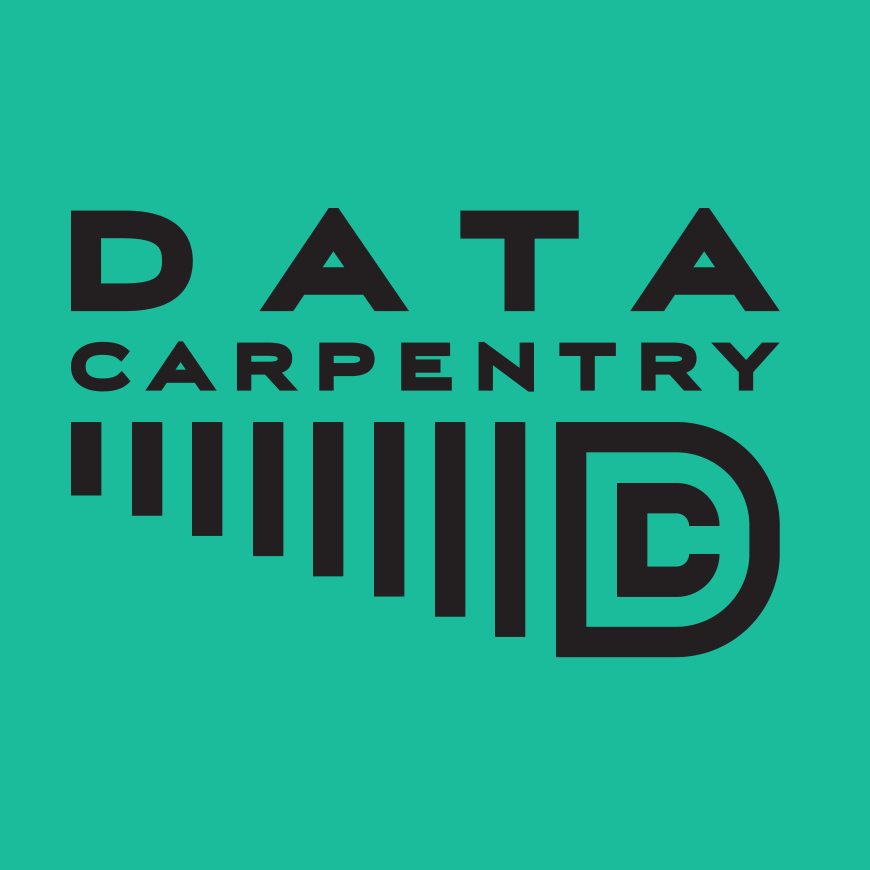
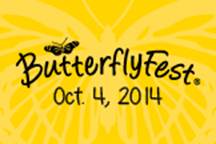
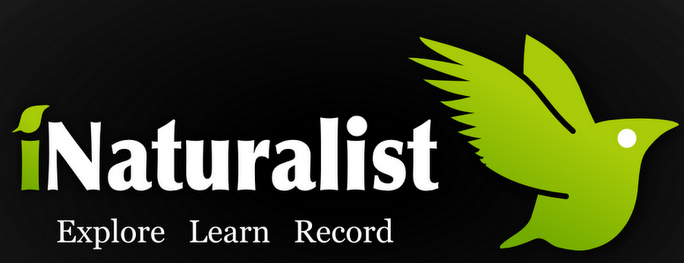

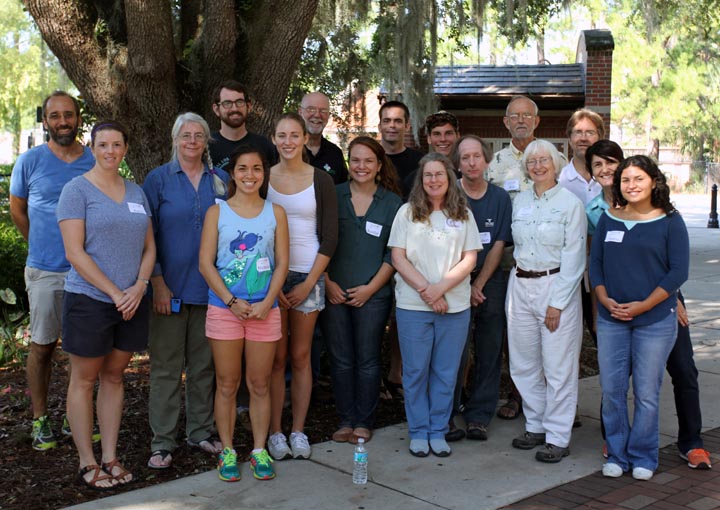
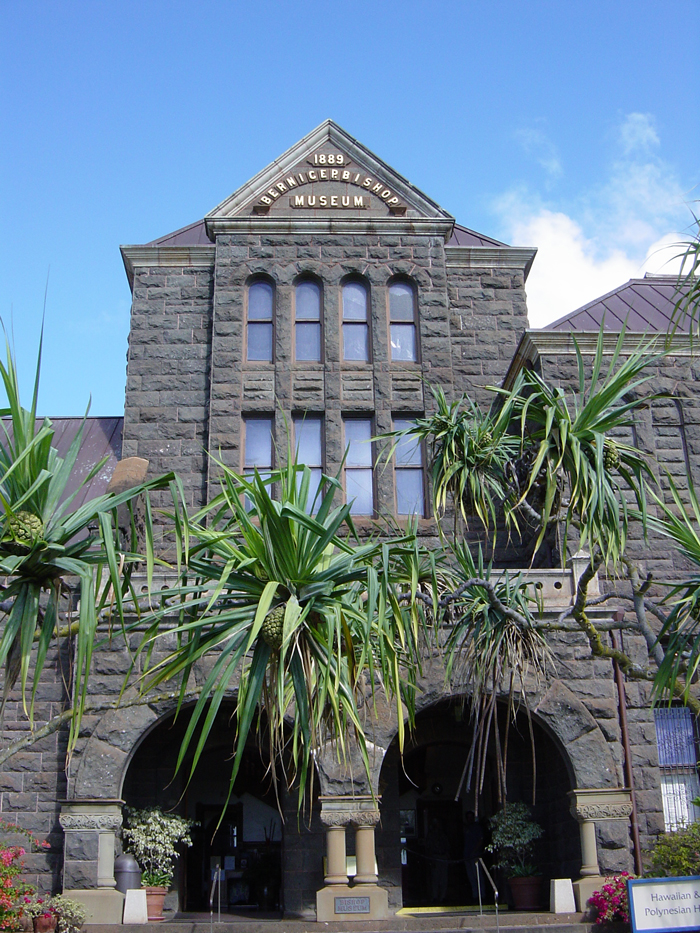
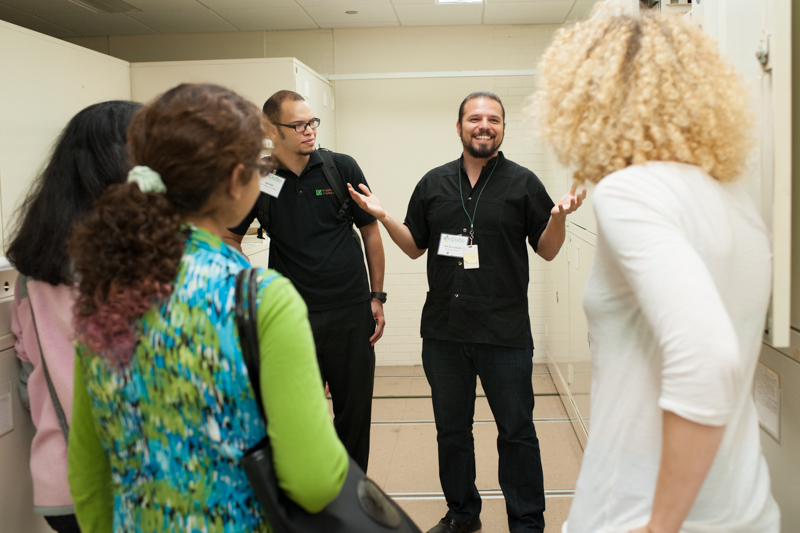 About 50 undergraduates and recent graduates attended the
About 50 undergraduates and recent graduates attended the 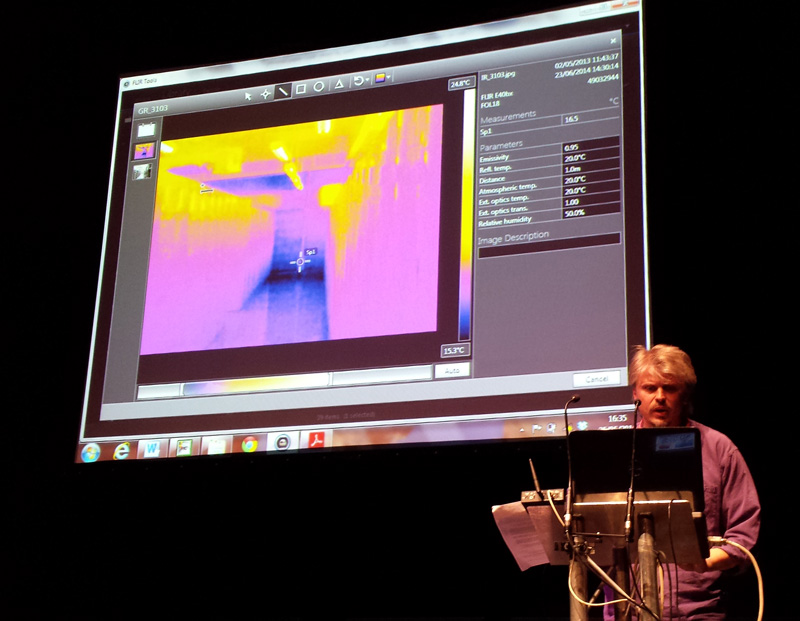

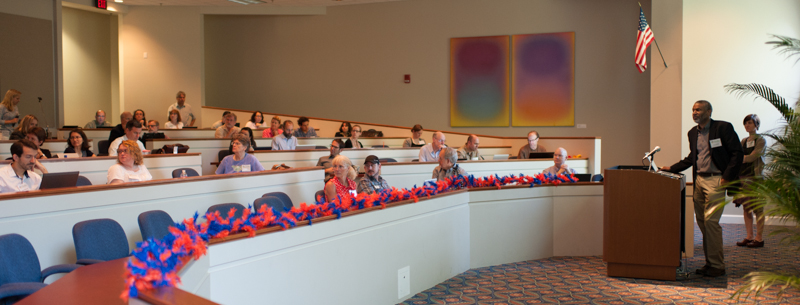
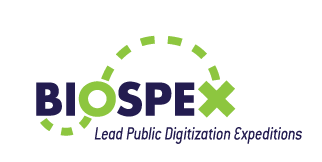
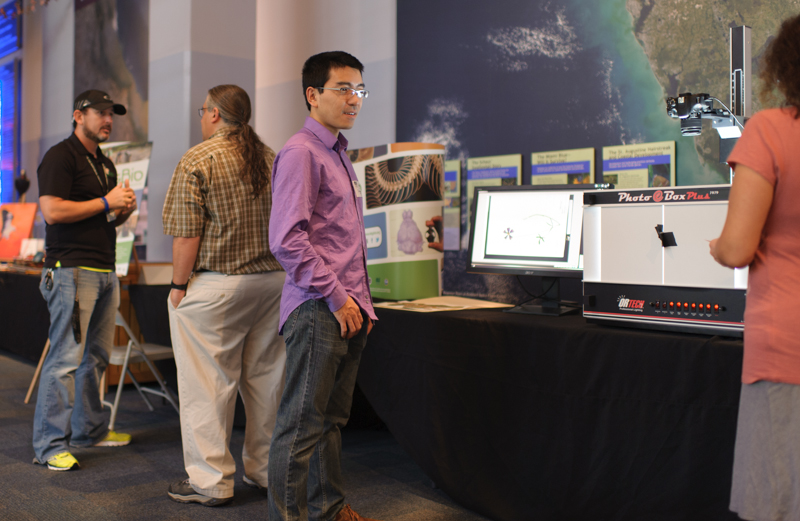
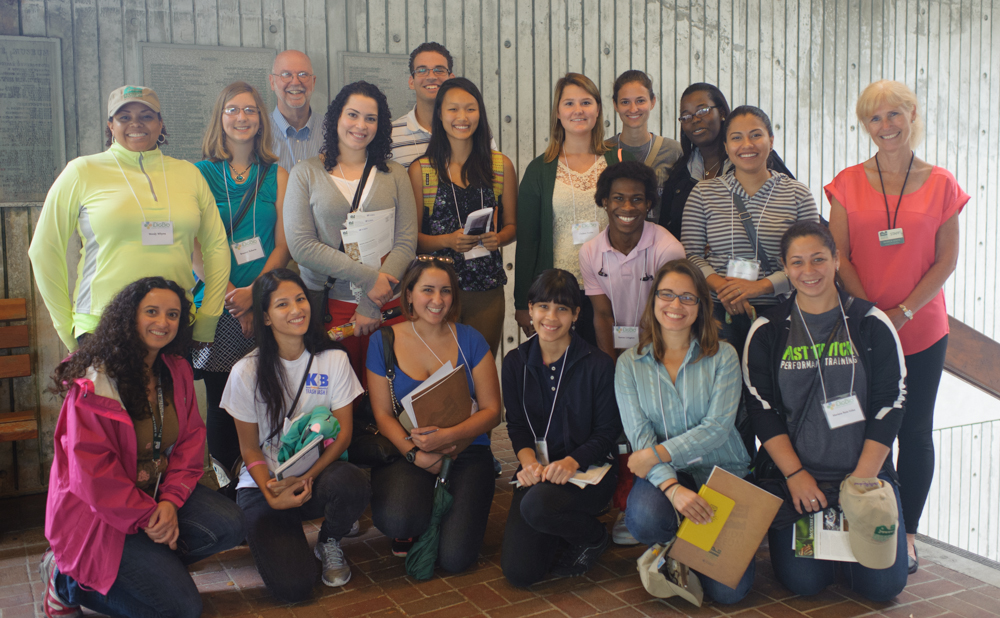 Fifteen undergraduate students from seven Florida colleges and universities converged on the Florida Museum of Natural History April 17-19 for an all-expense-paid opportunity to shadow museum professionals and explore careers in the biological sciences.
Fifteen undergraduate students from seven Florida colleges and universities converged on the Florida Museum of Natural History April 17-19 for an all-expense-paid opportunity to shadow museum professionals and explore careers in the biological sciences.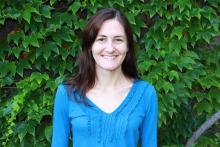
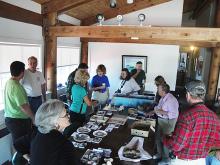
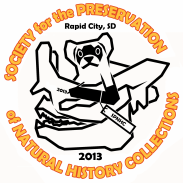 Registration for the 2013 meeting of the
Registration for the 2013 meeting of the 